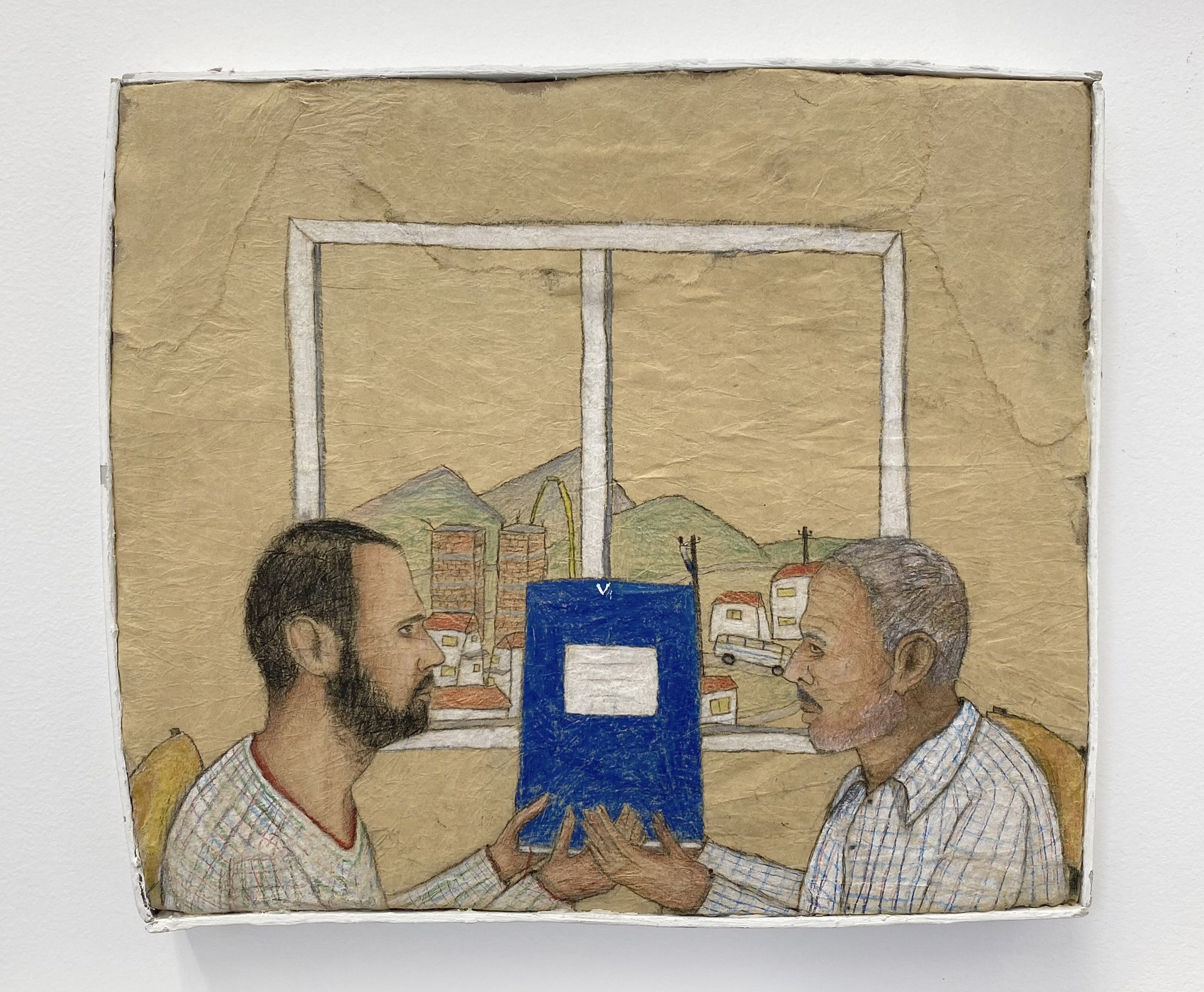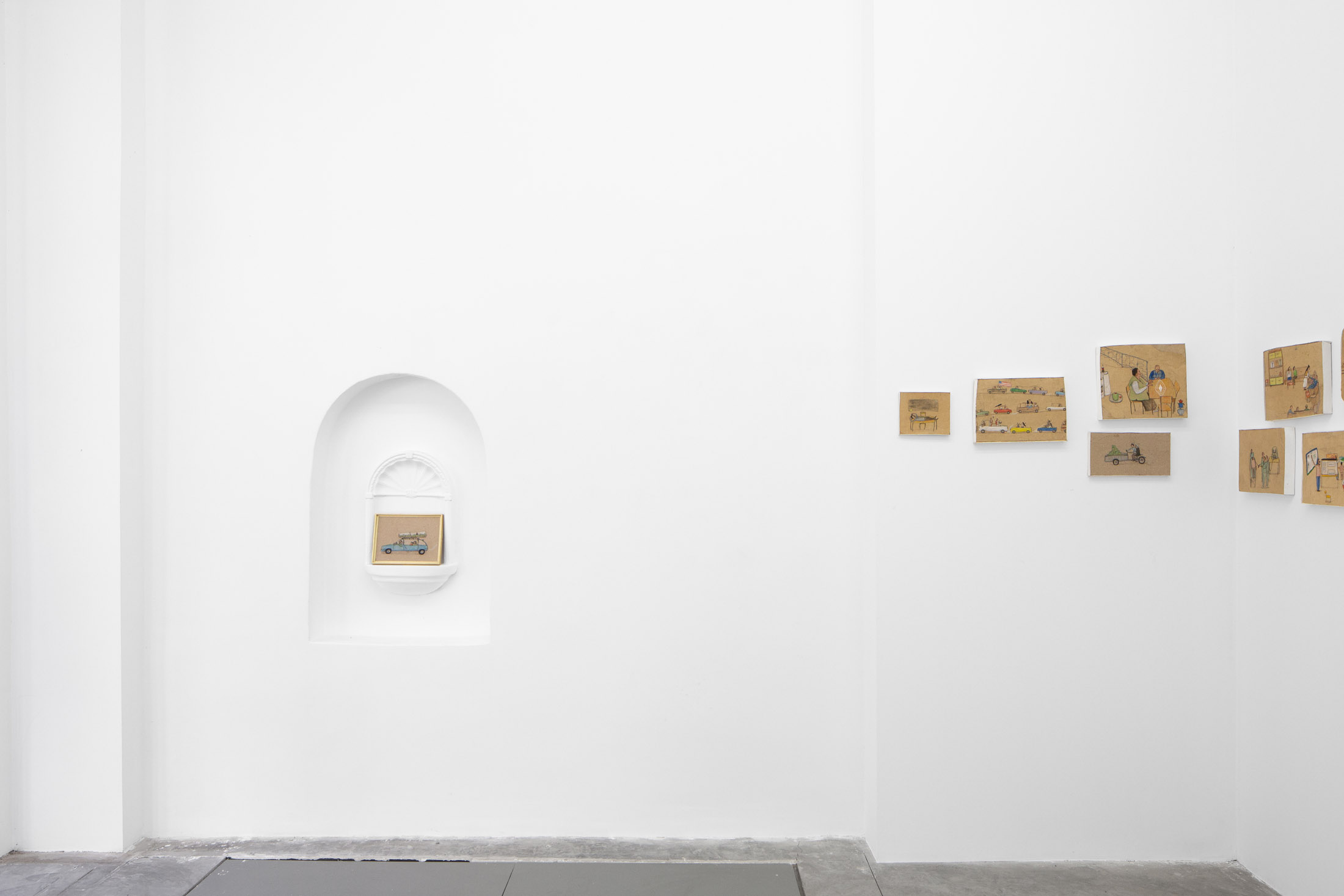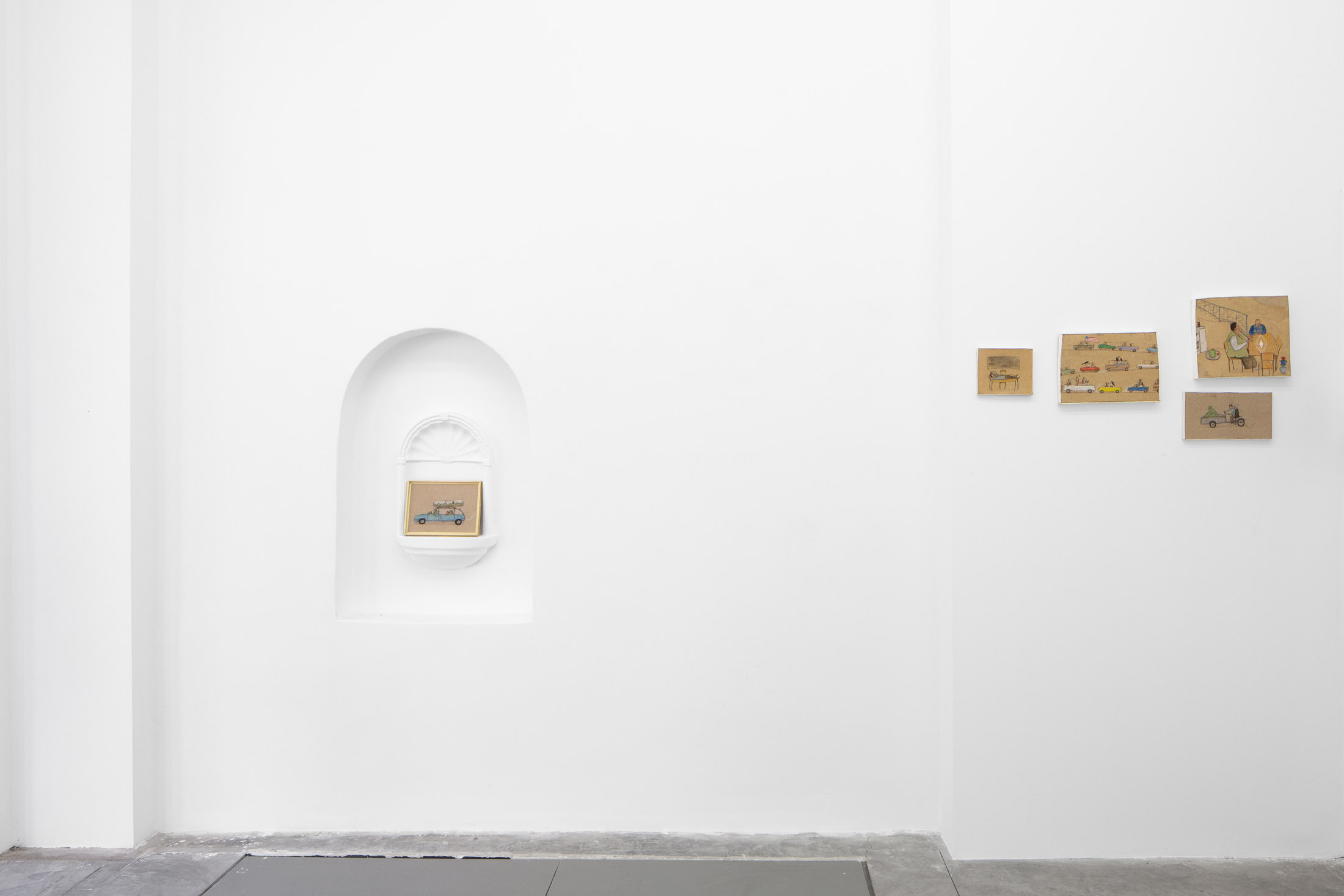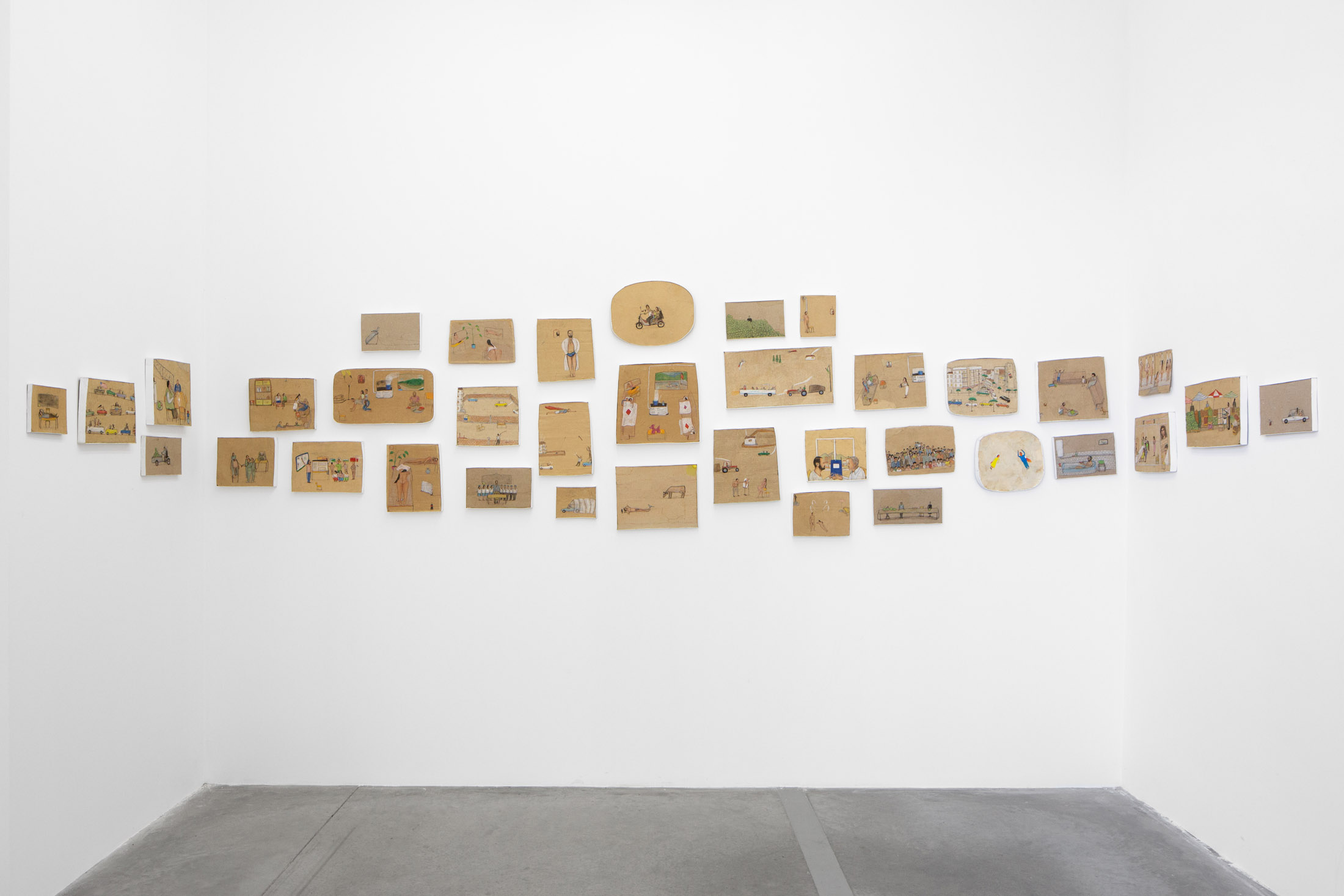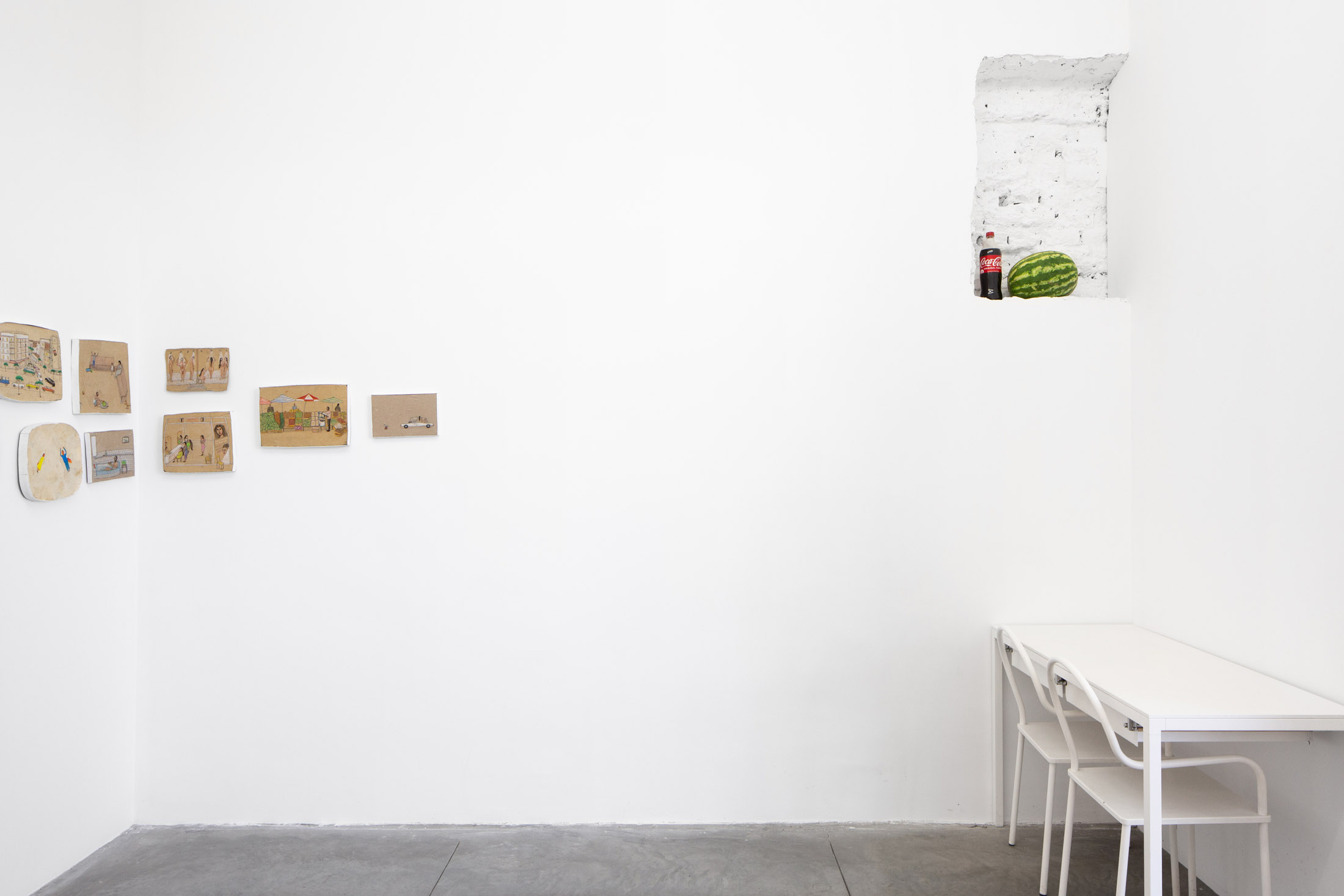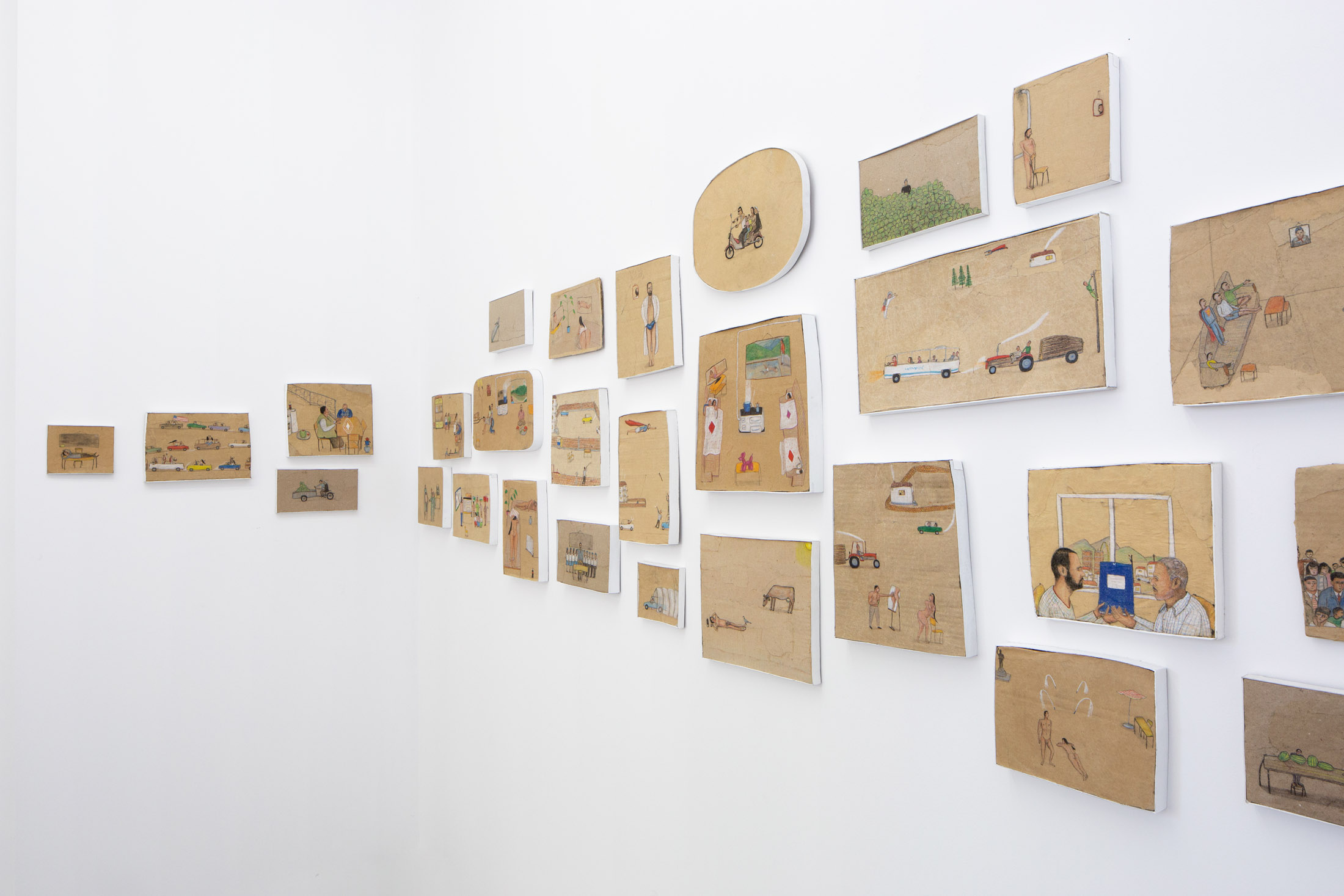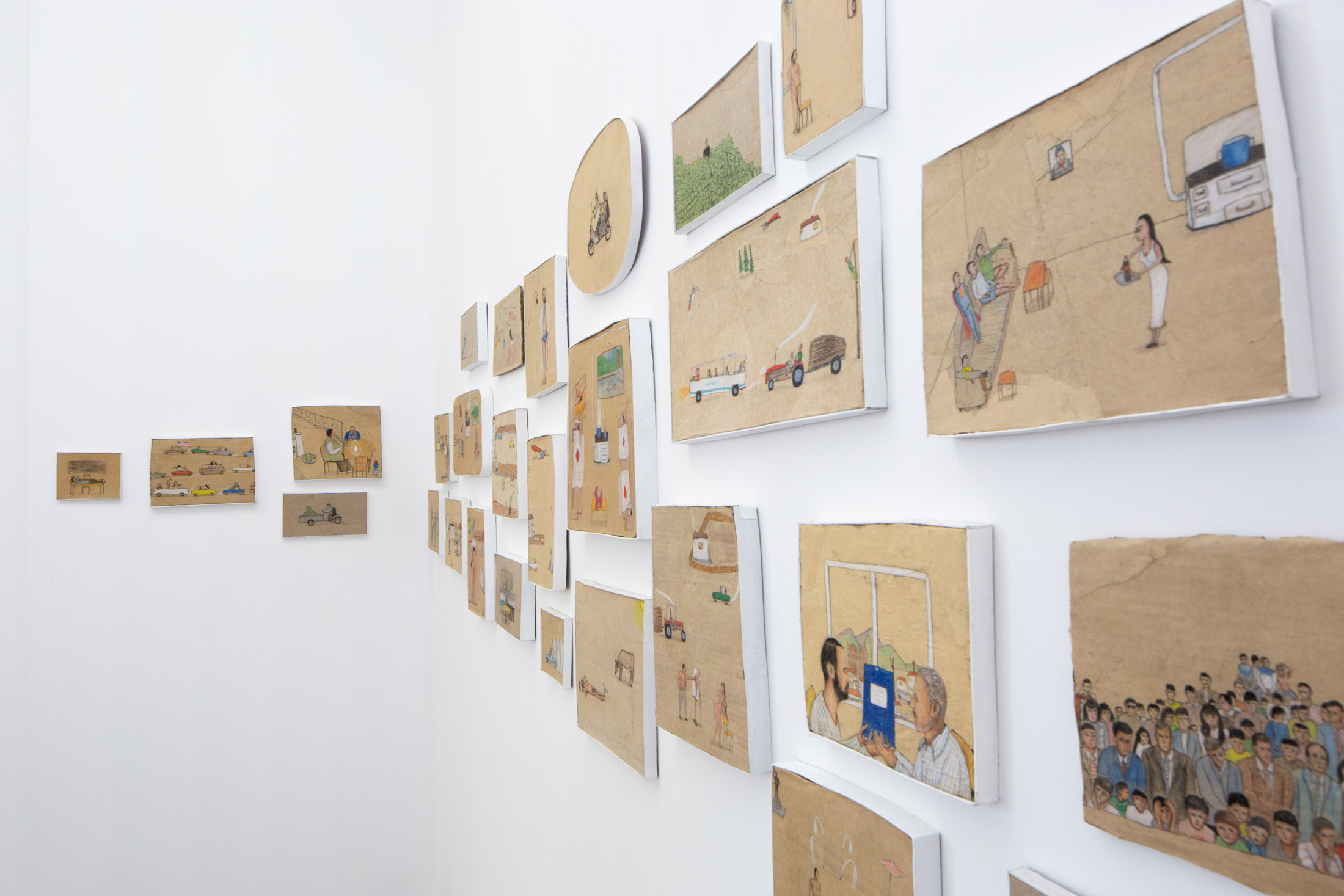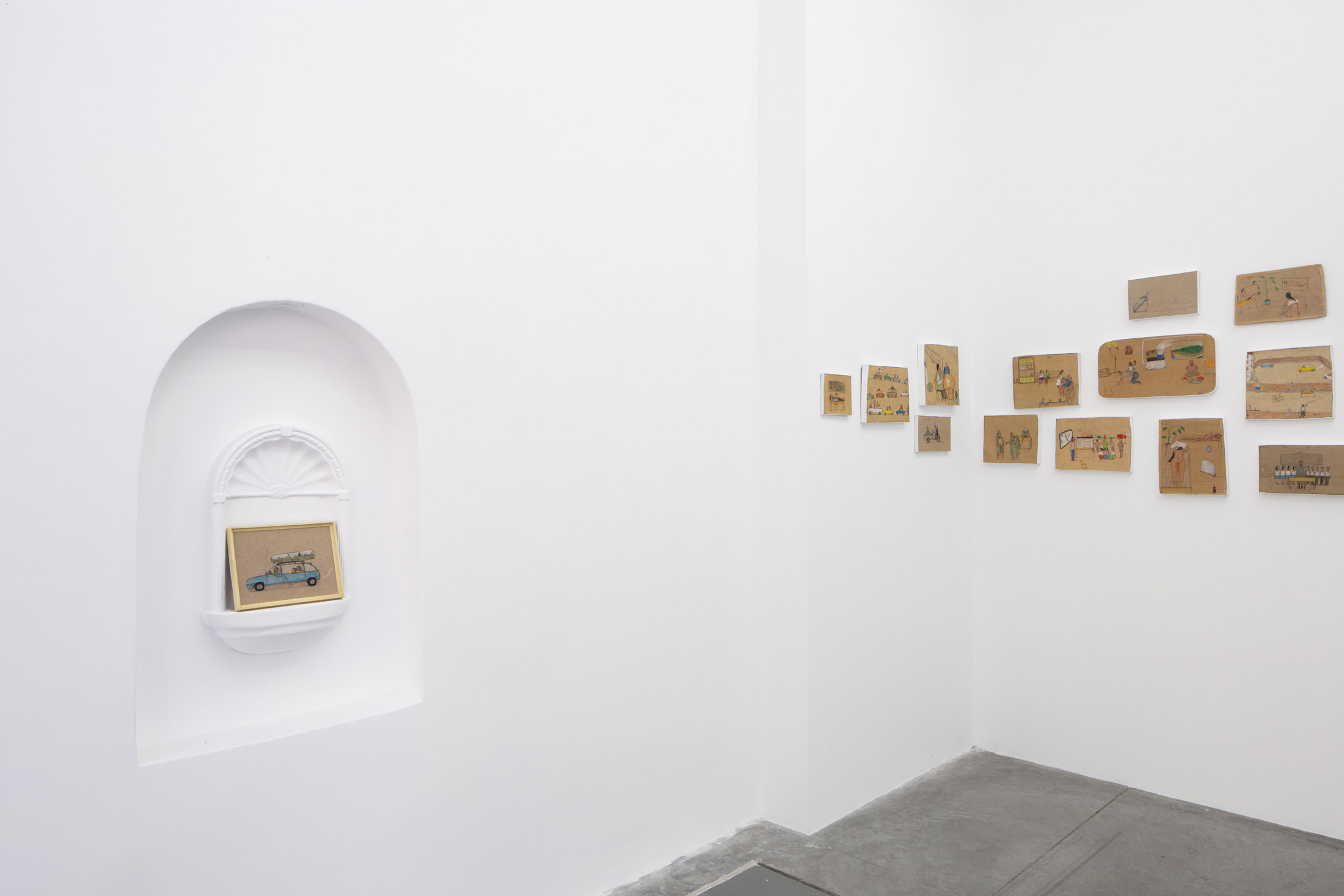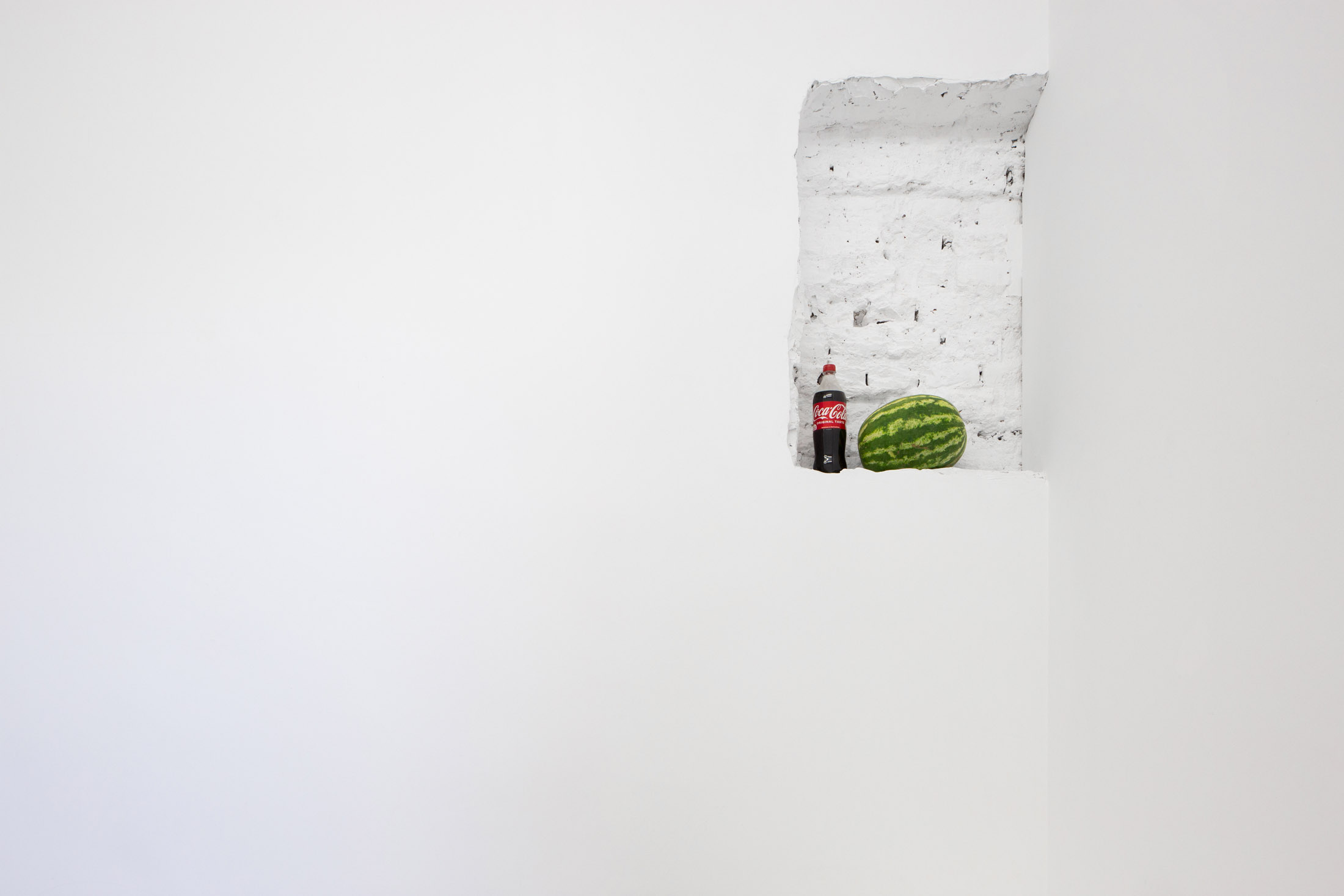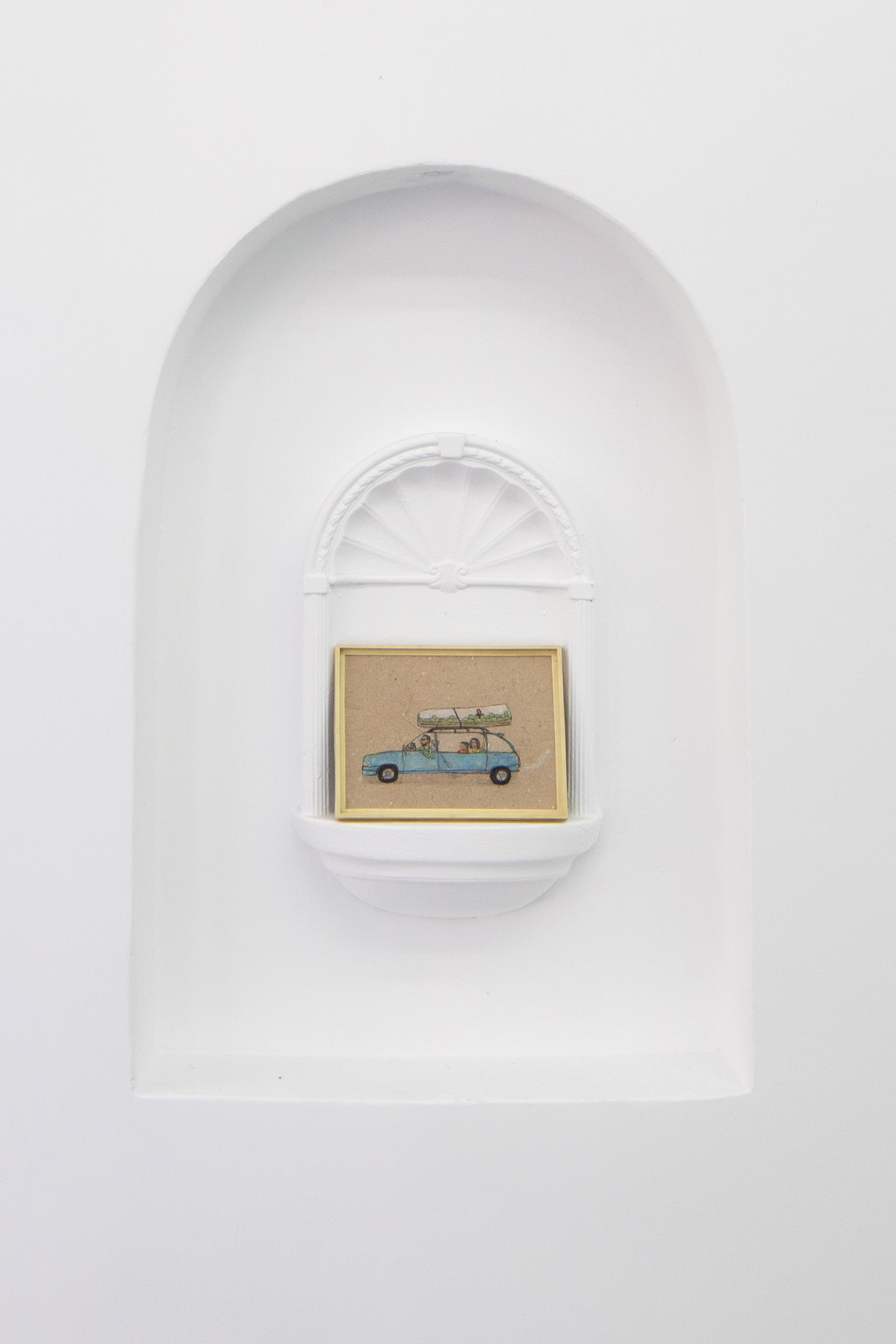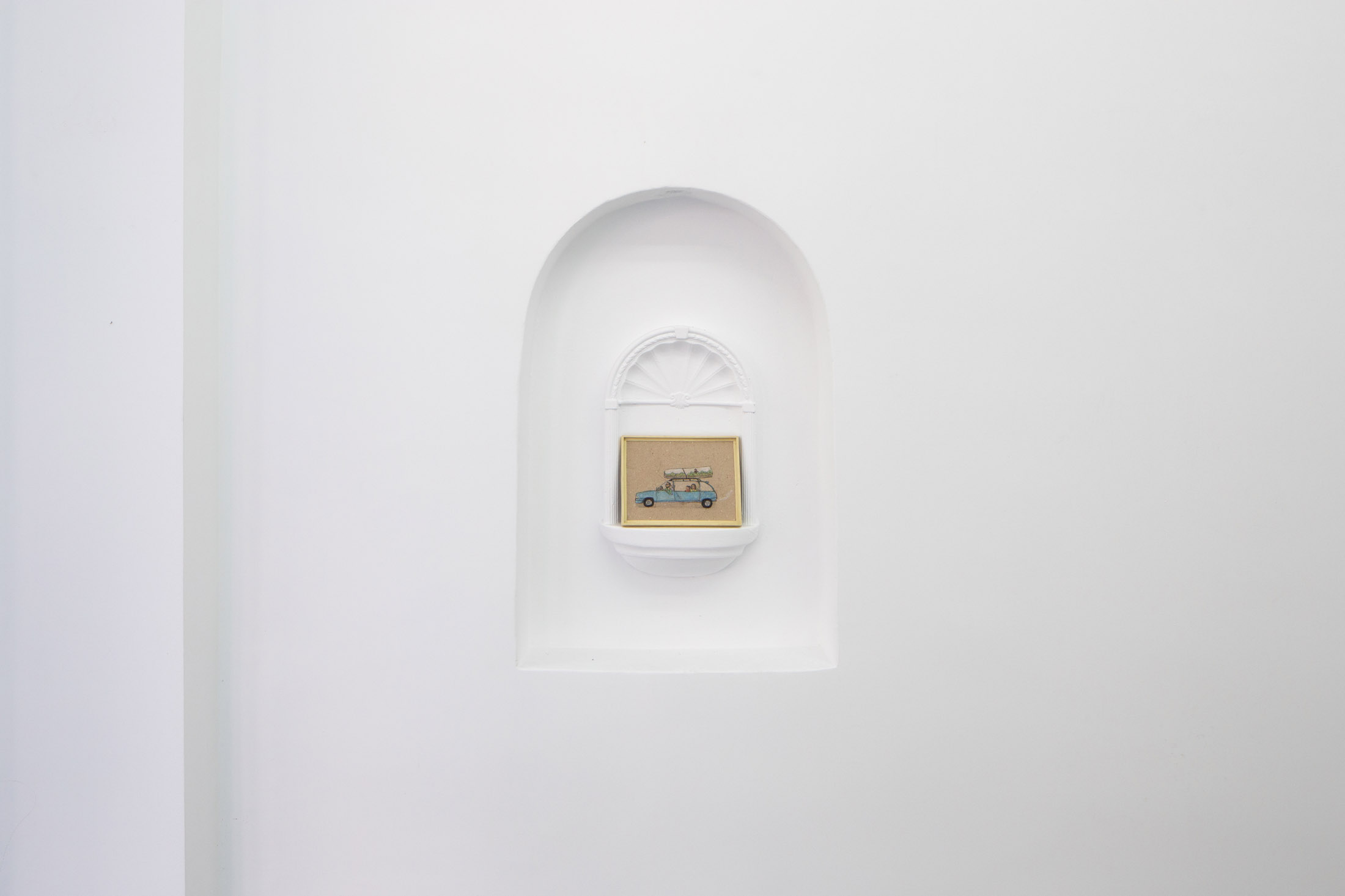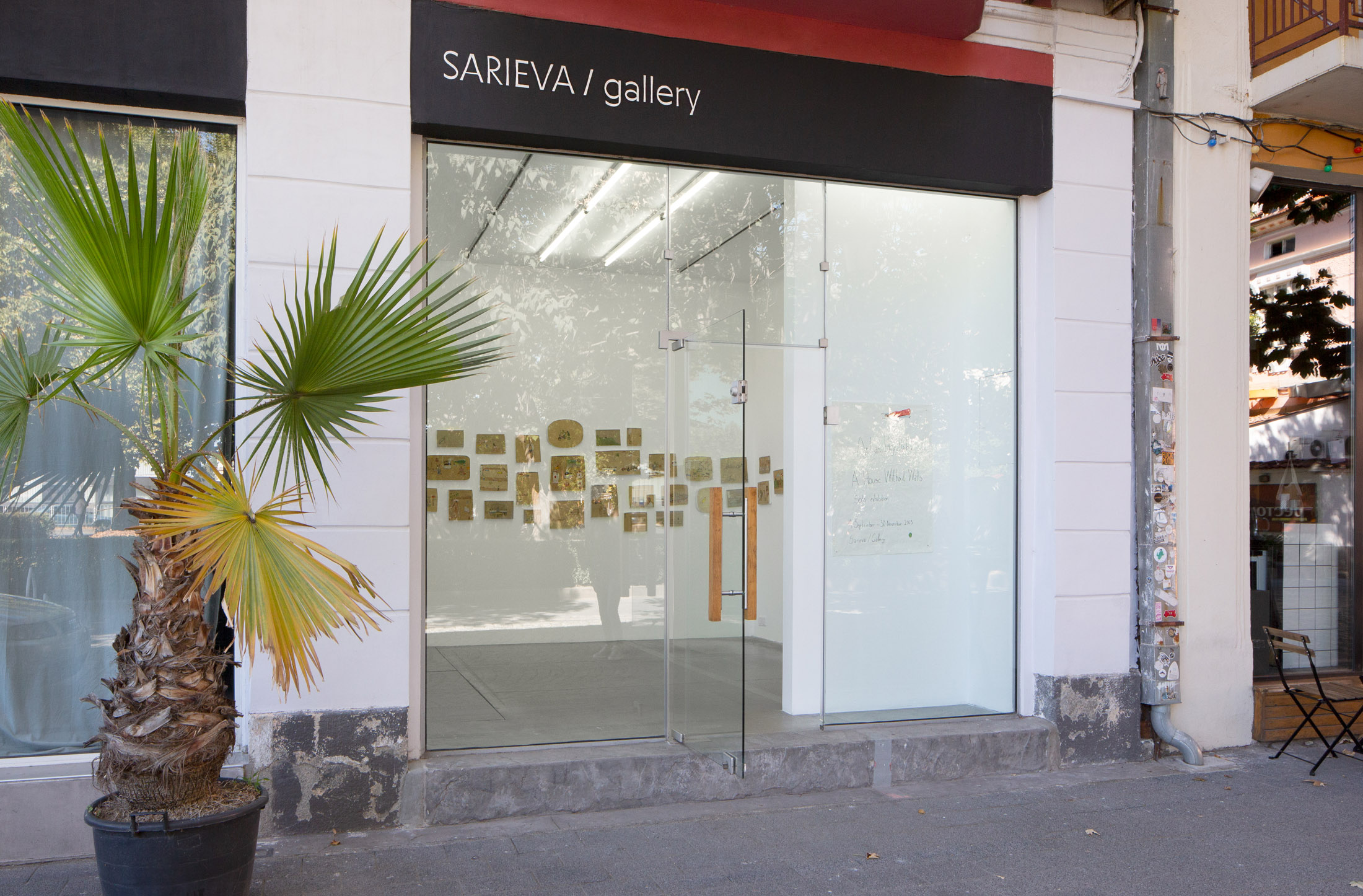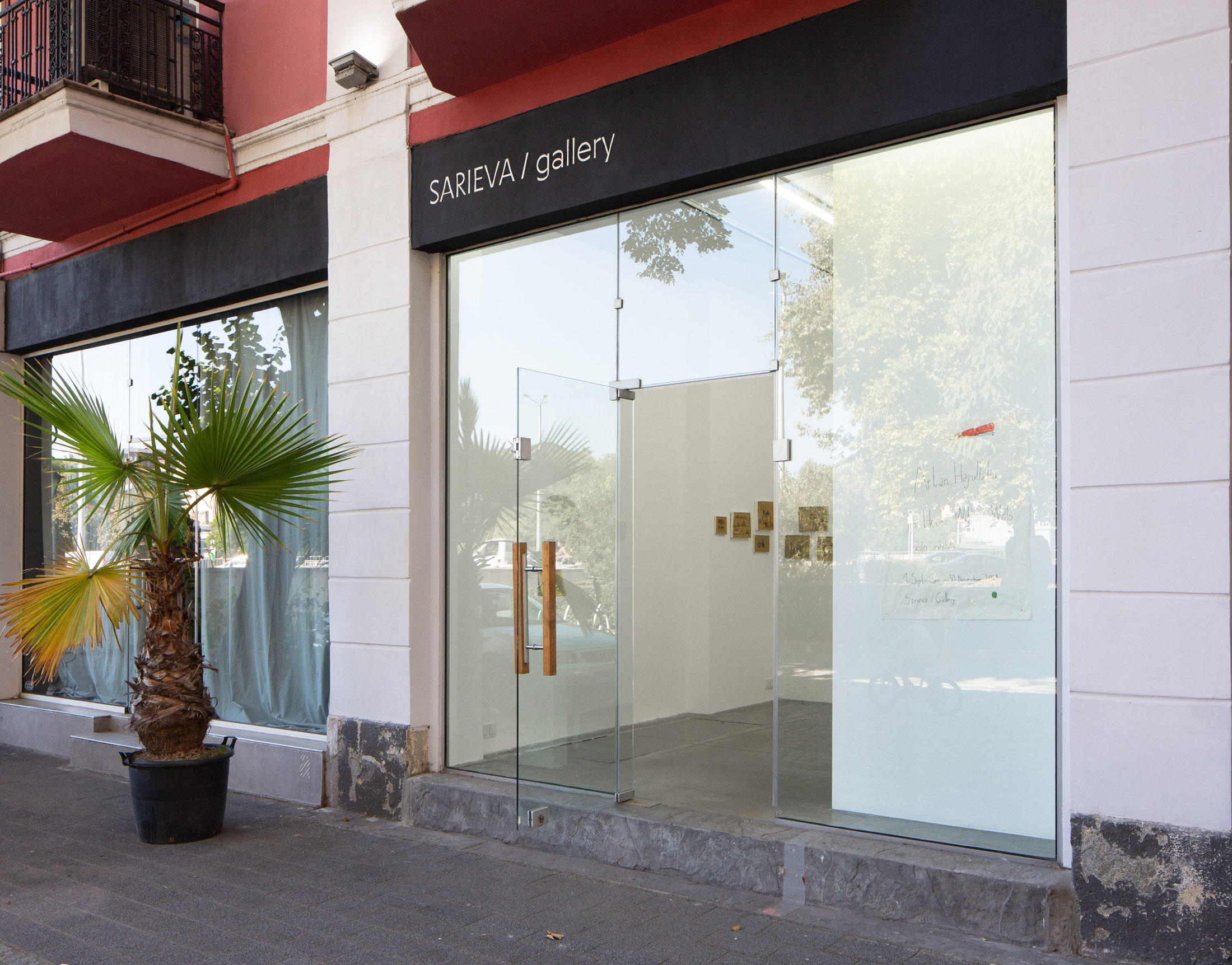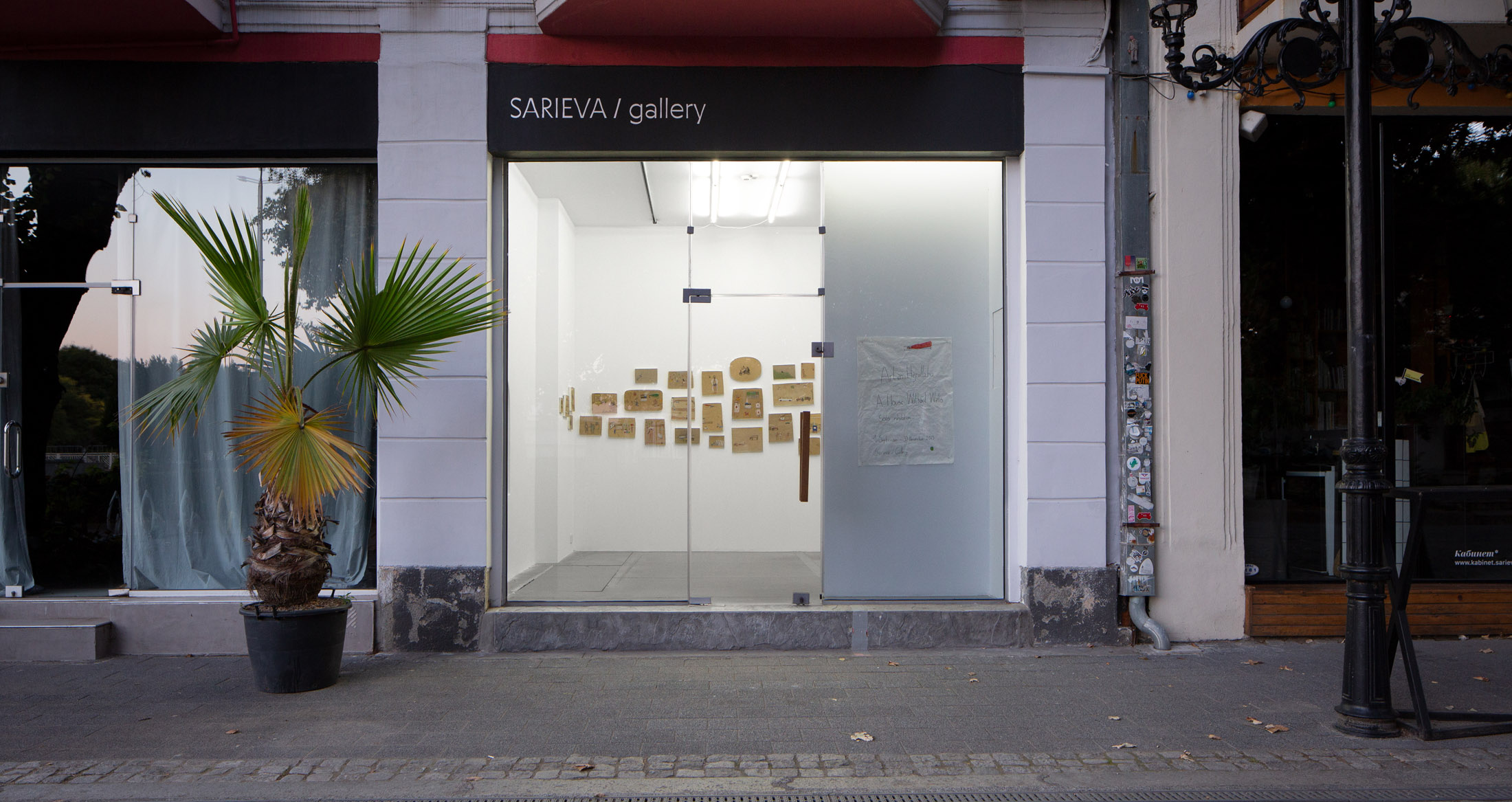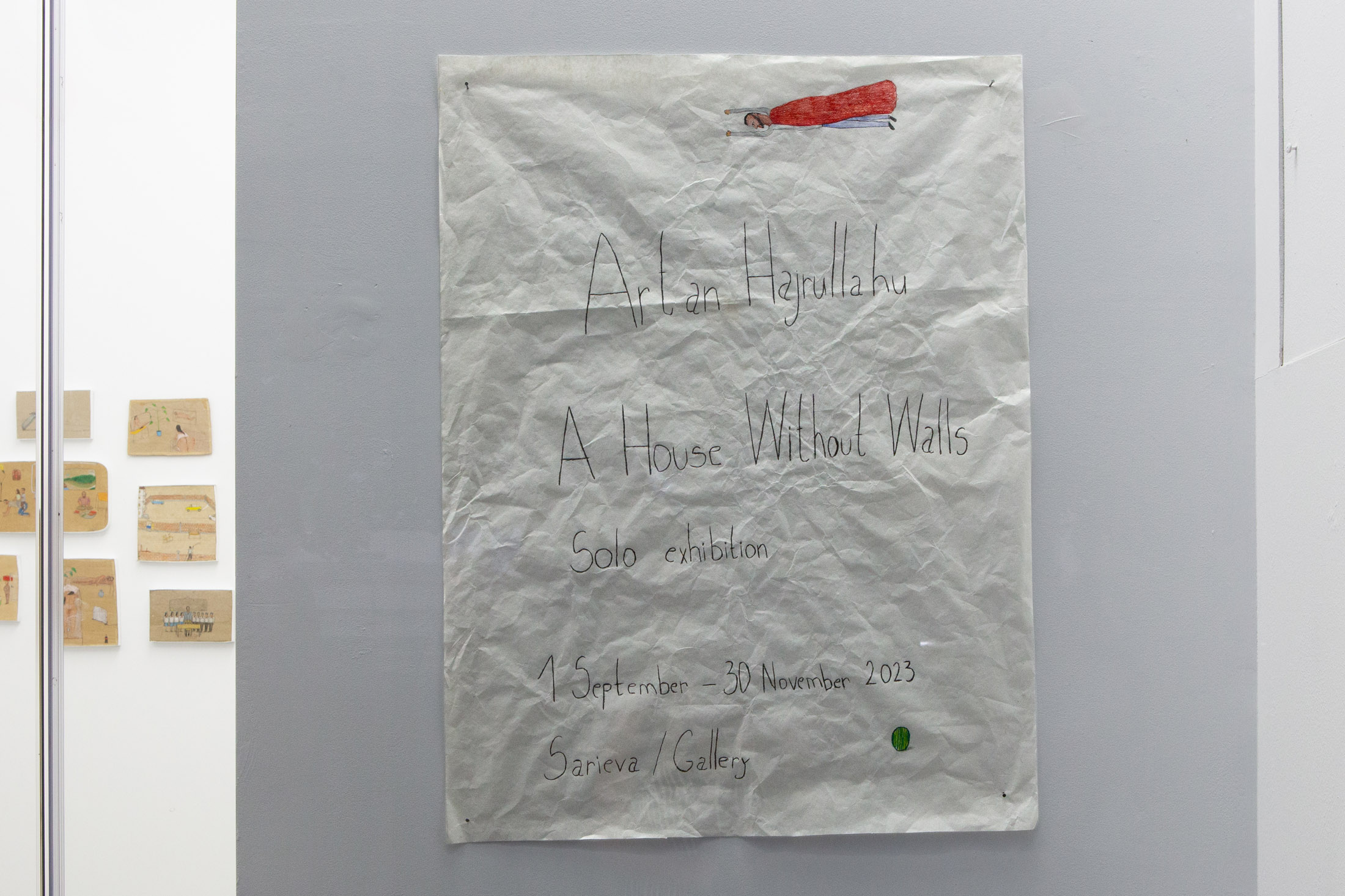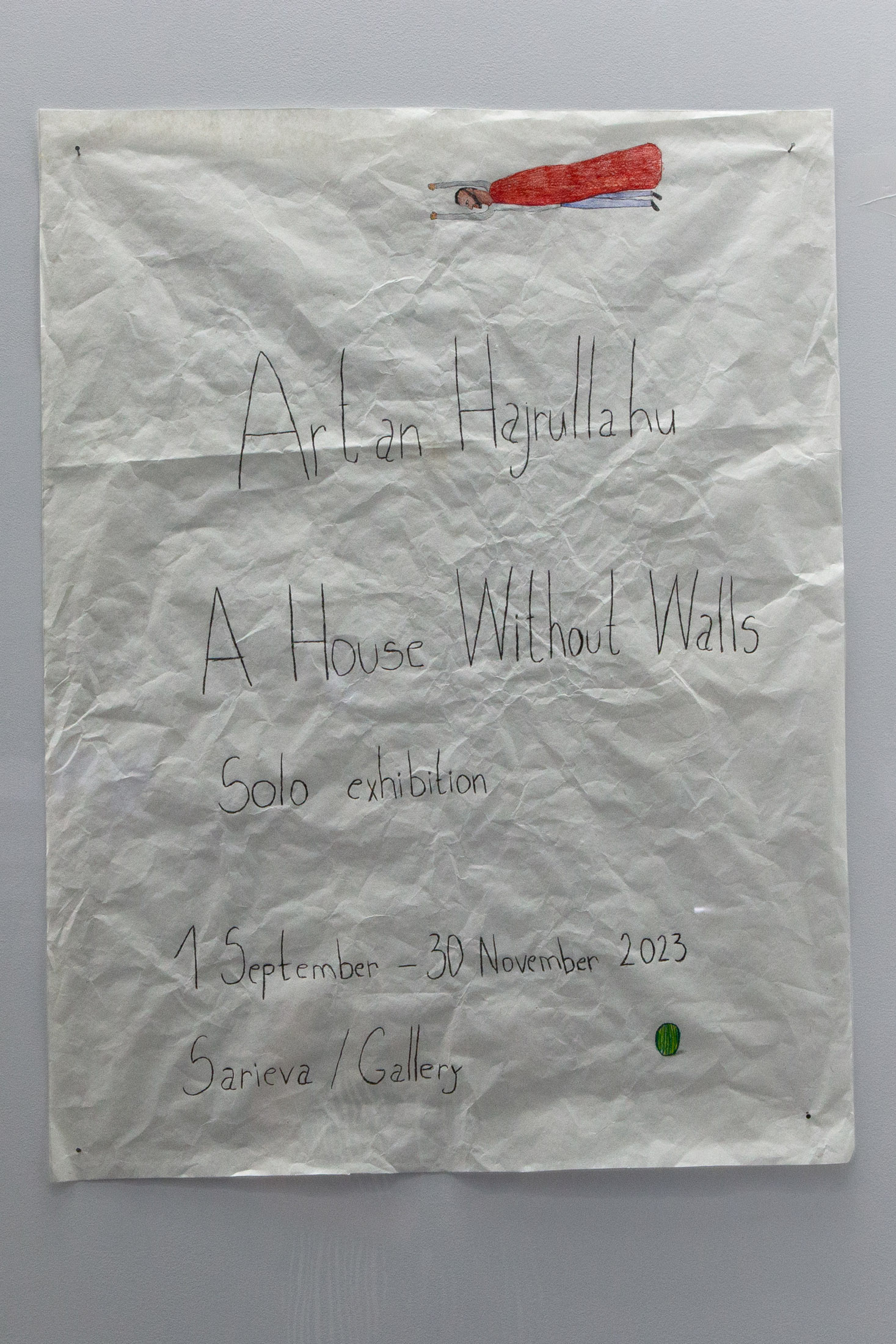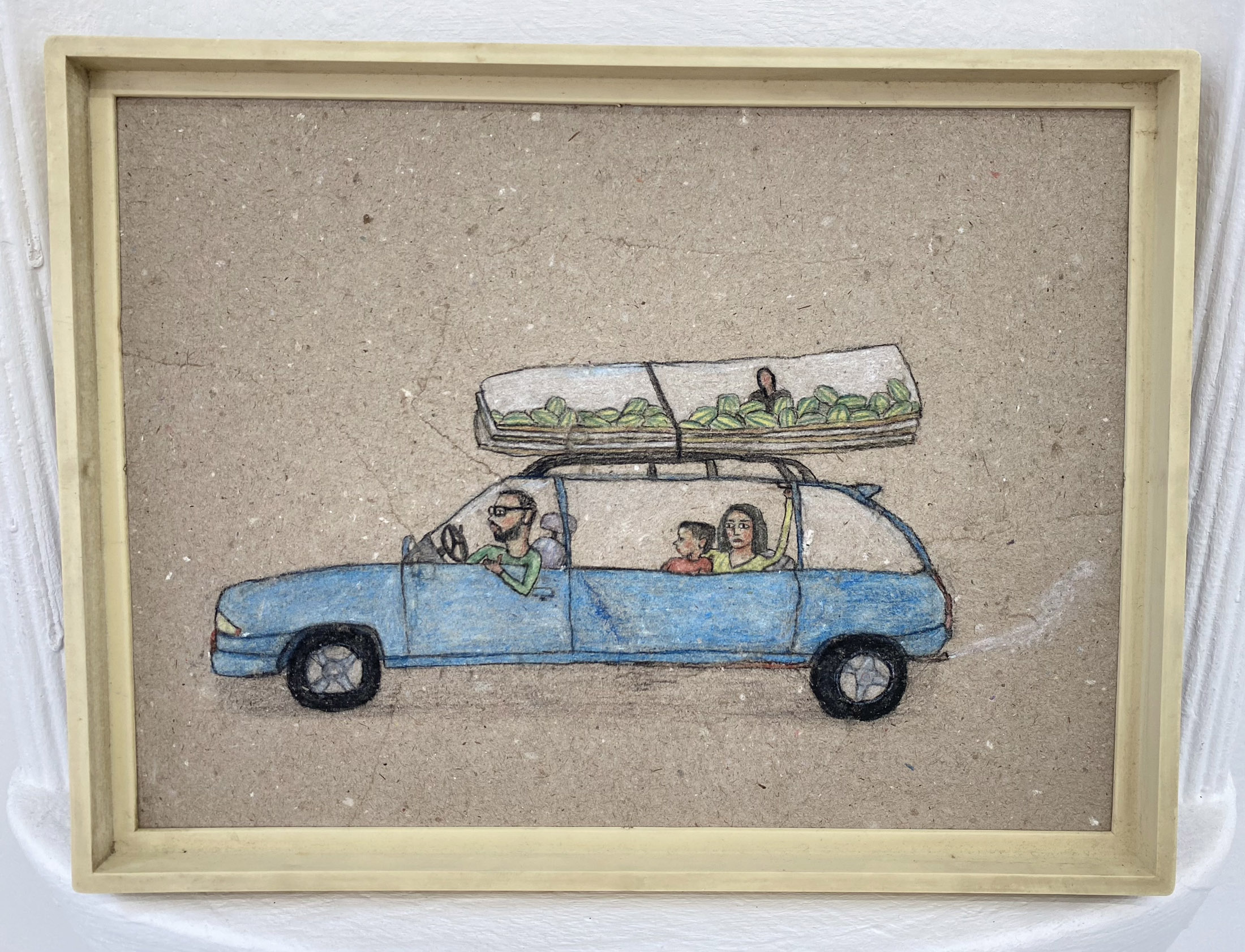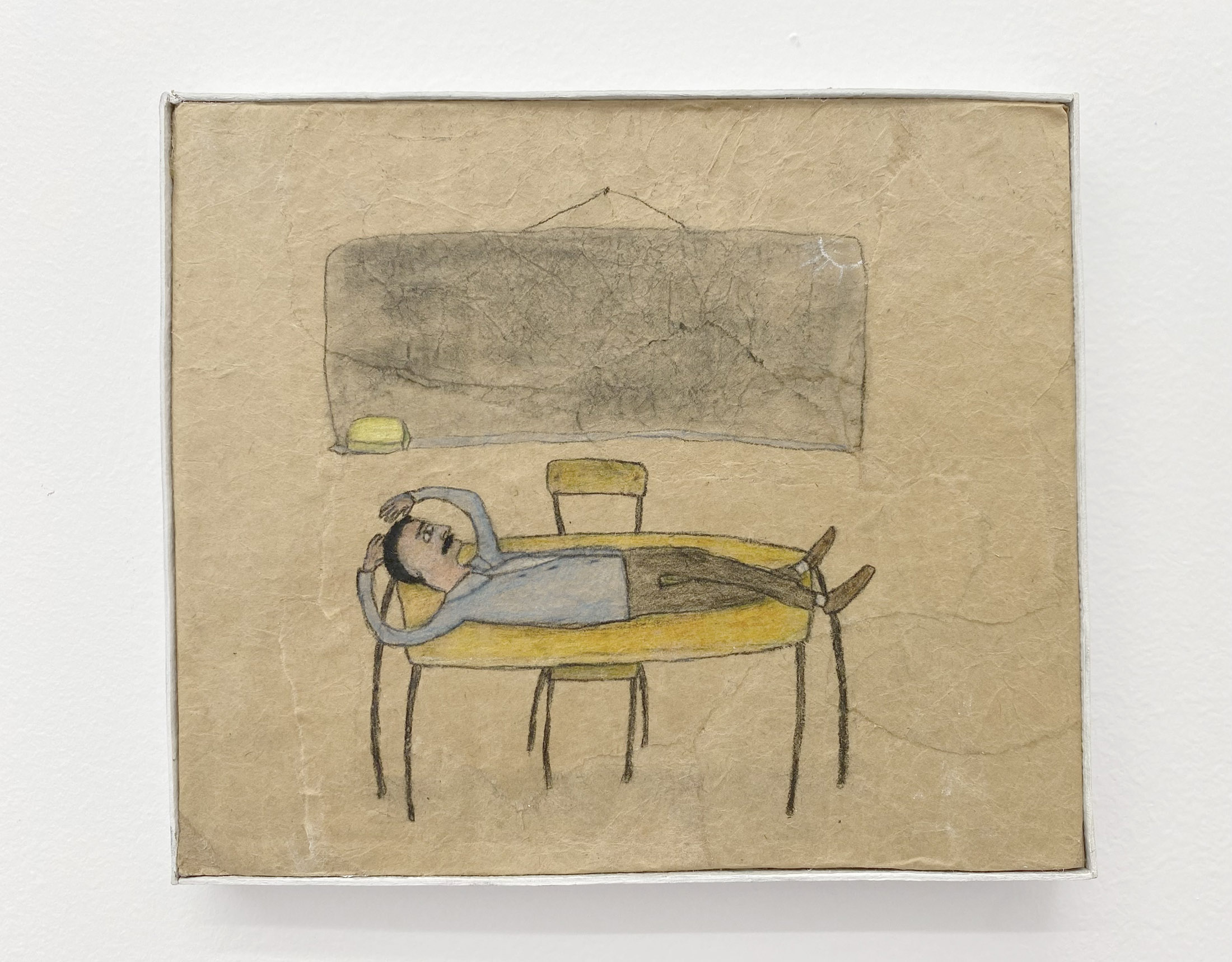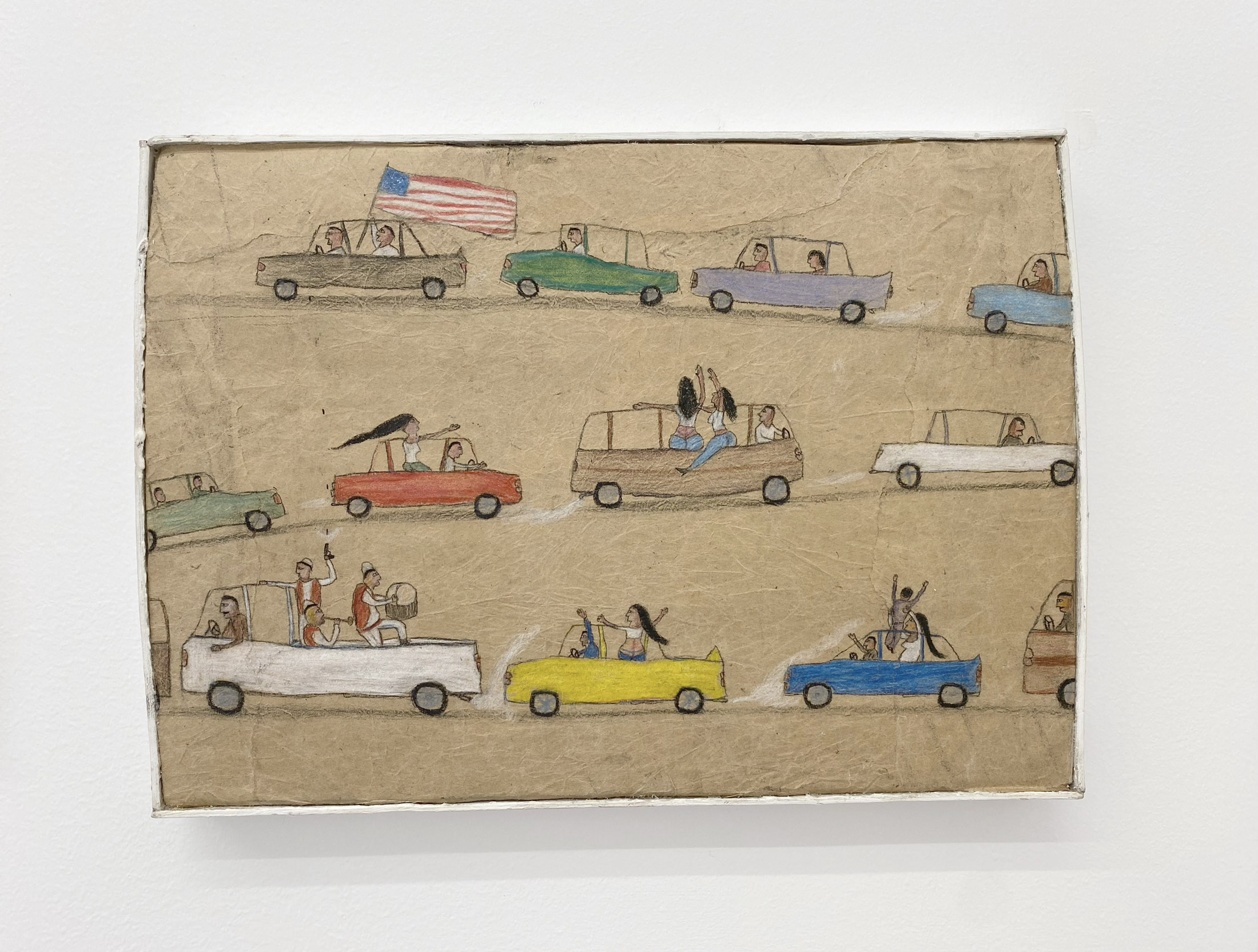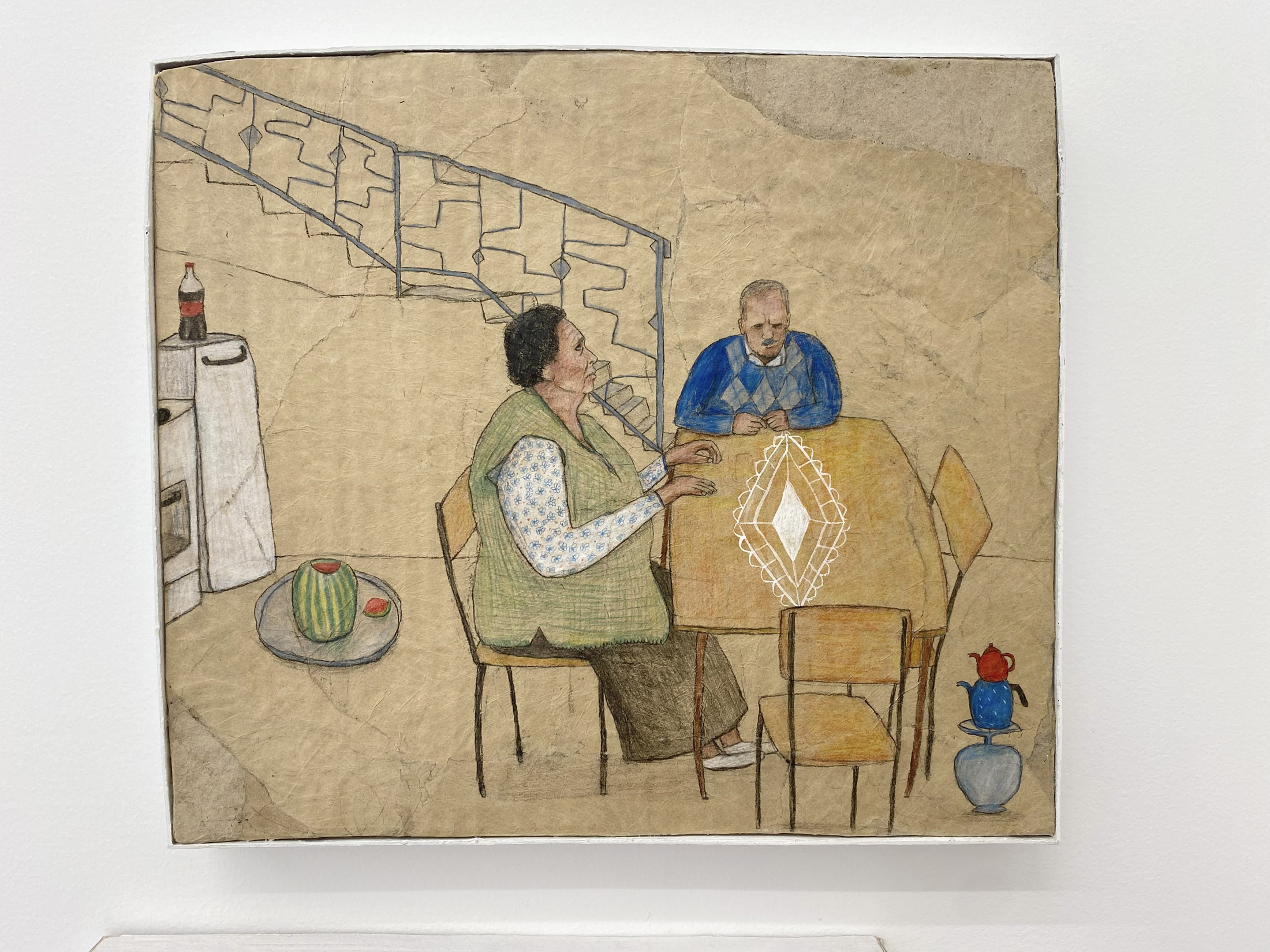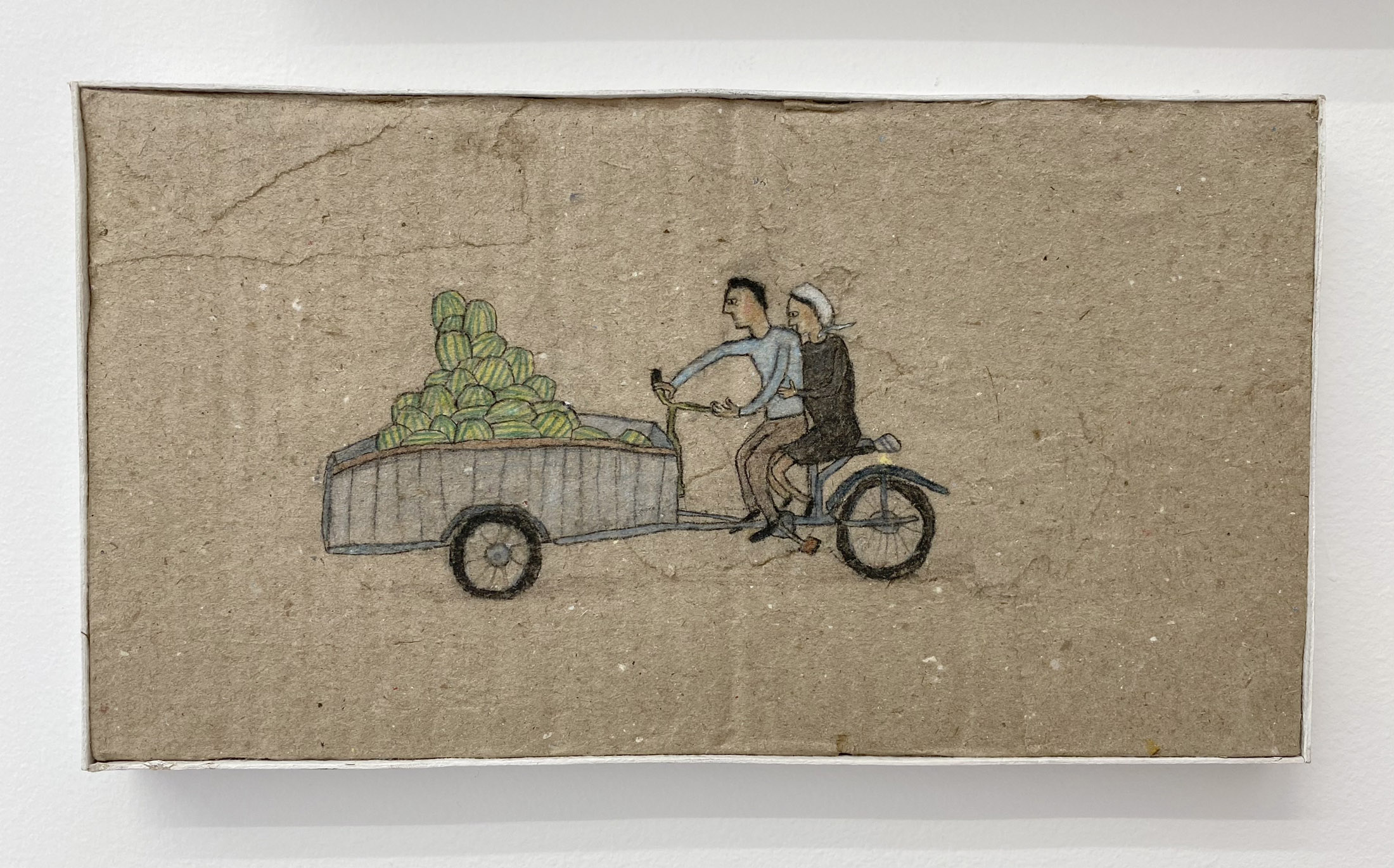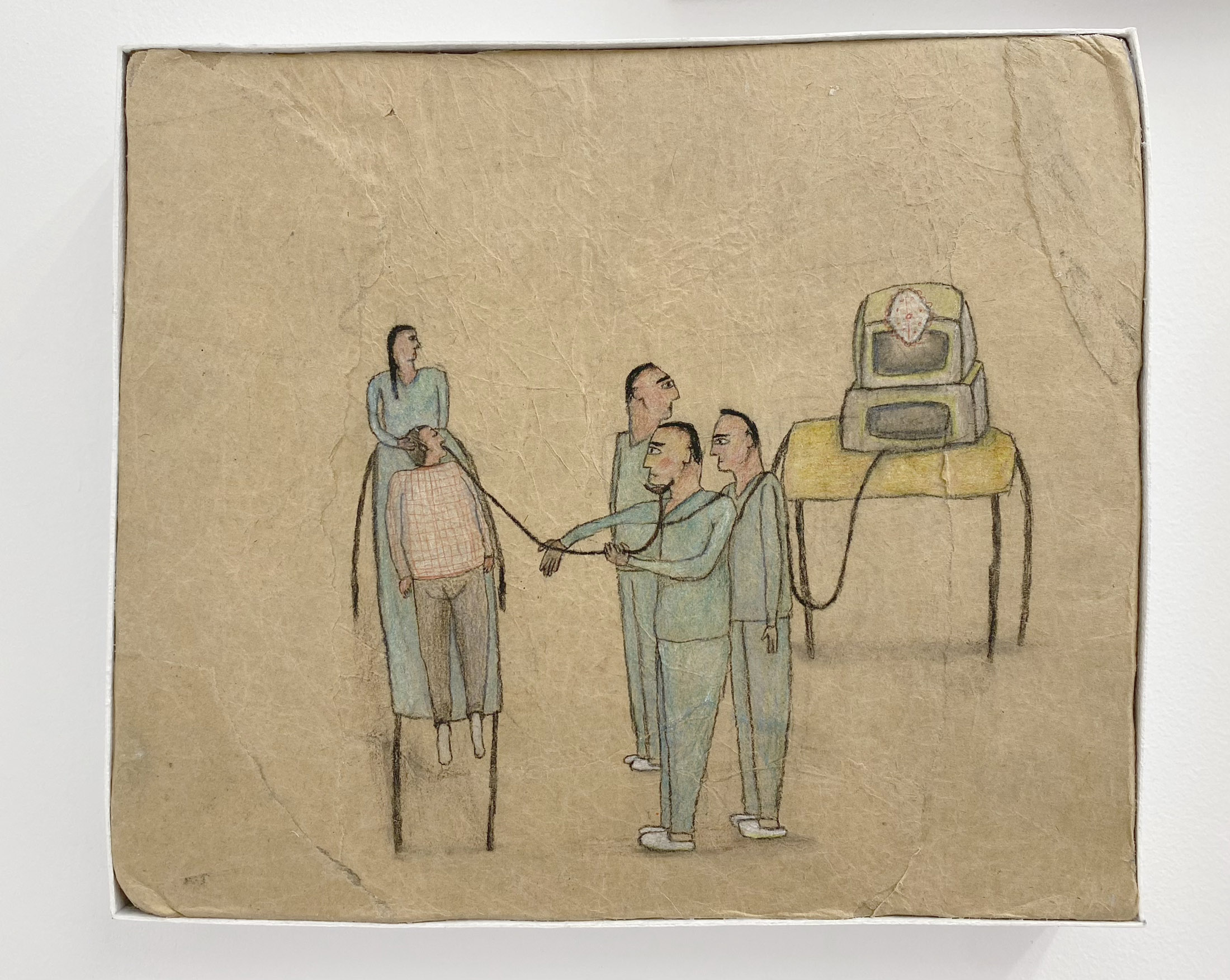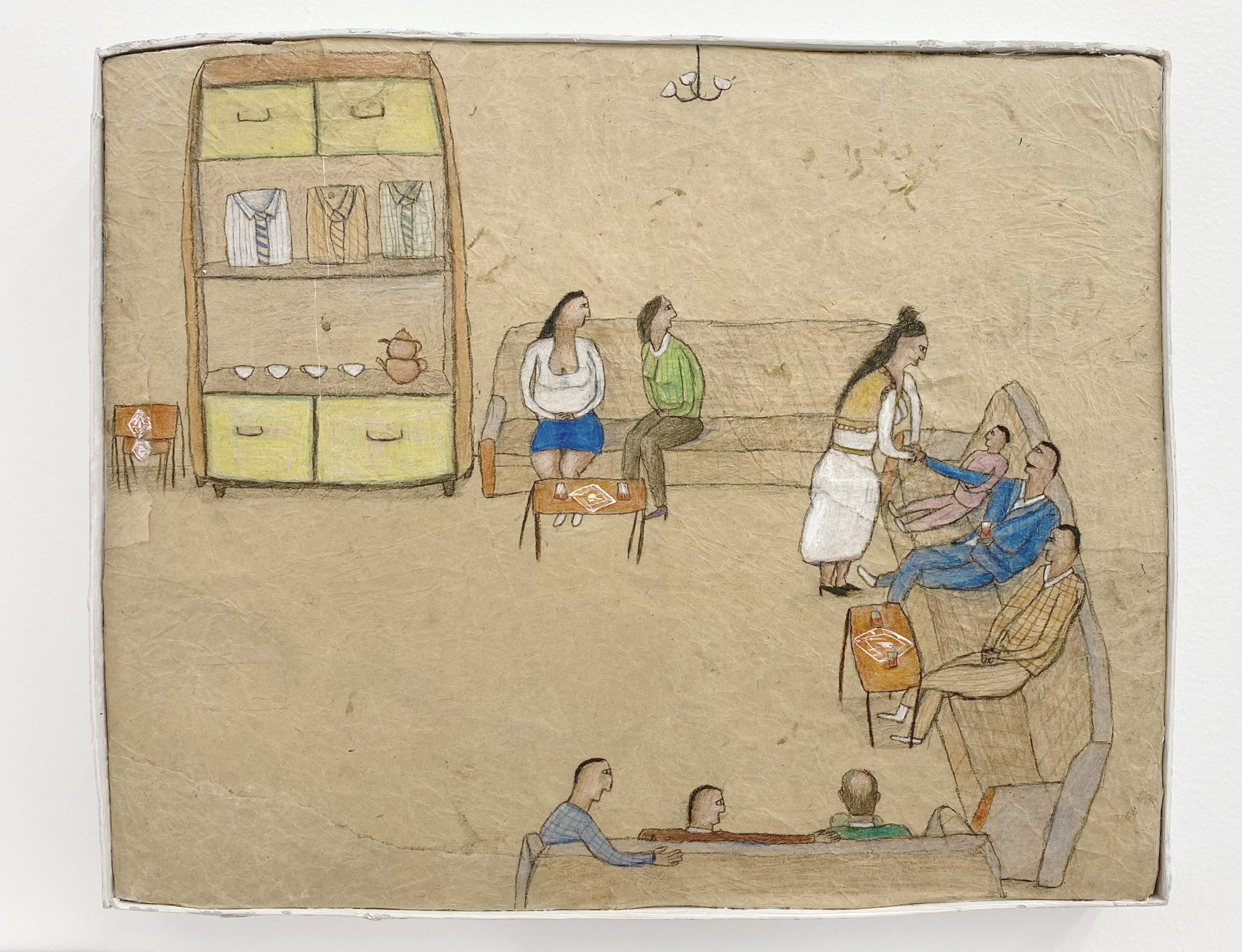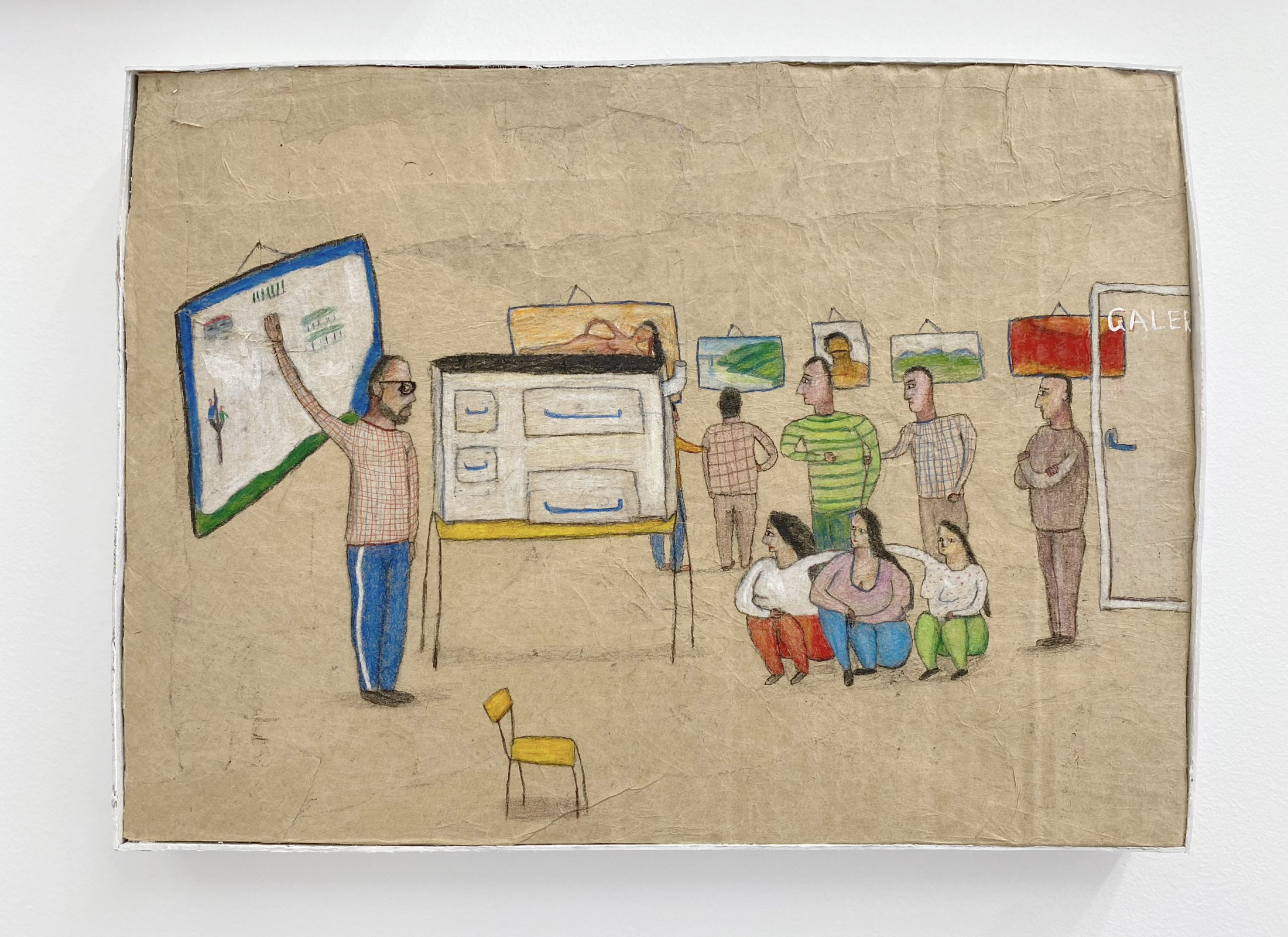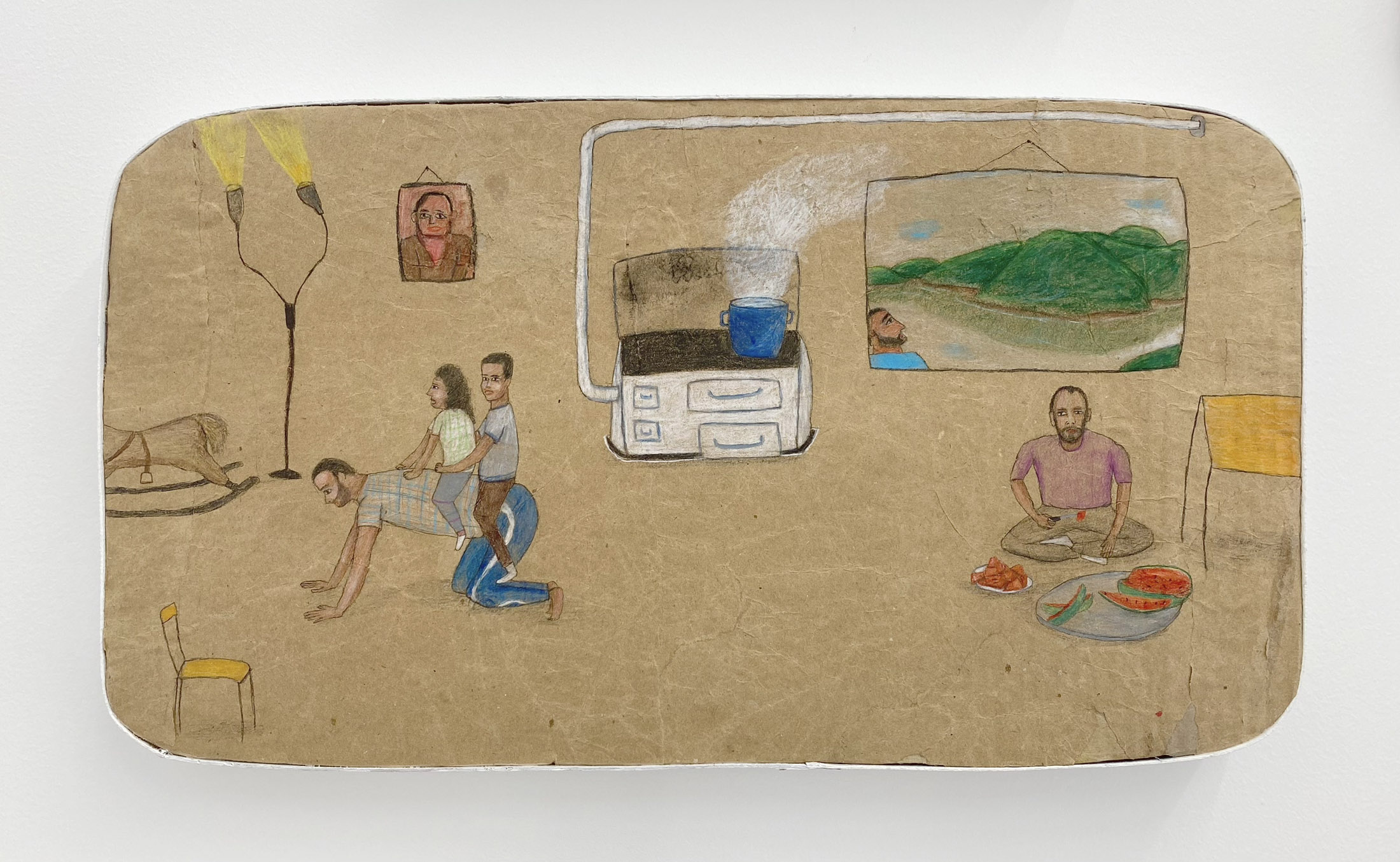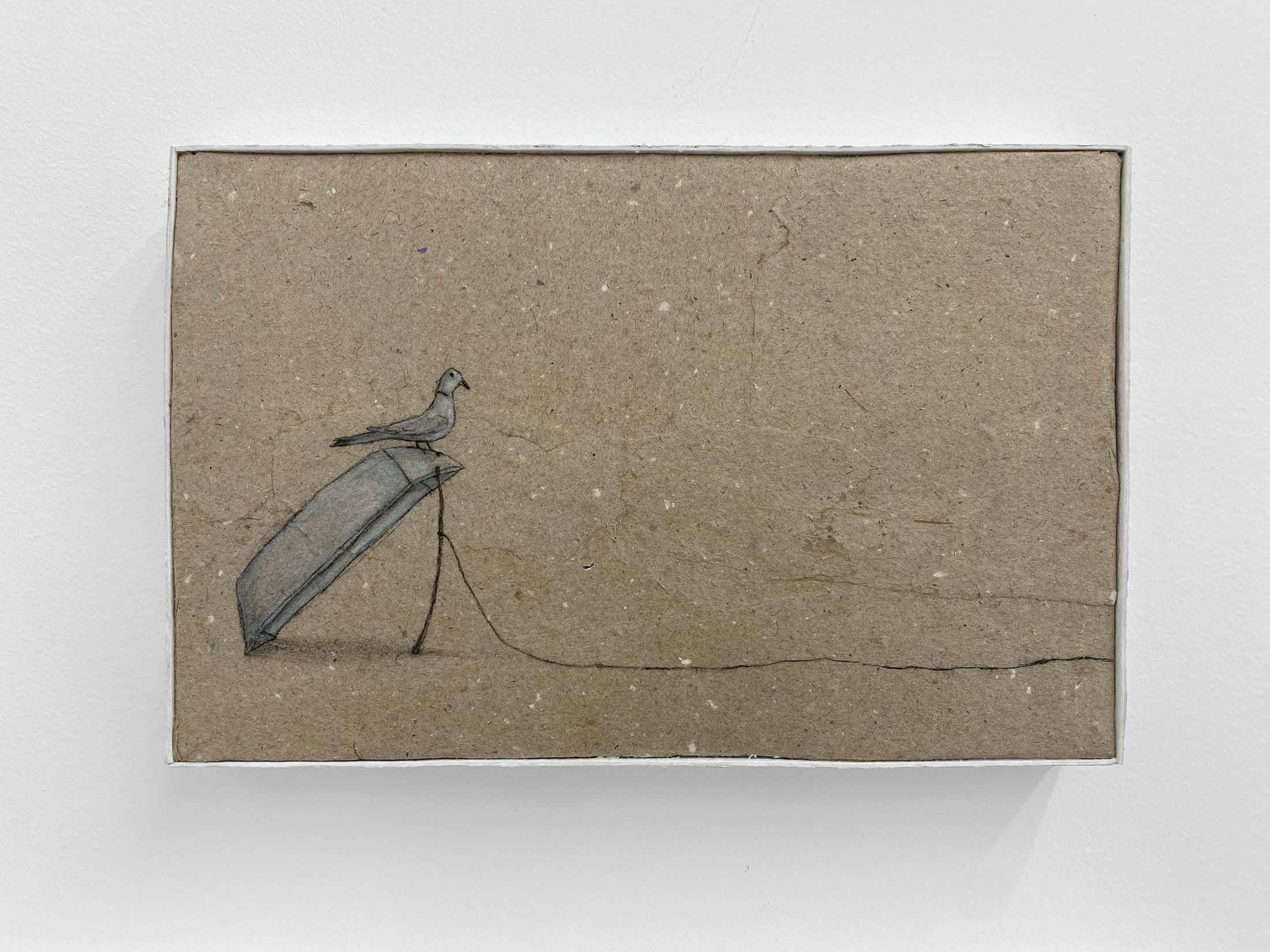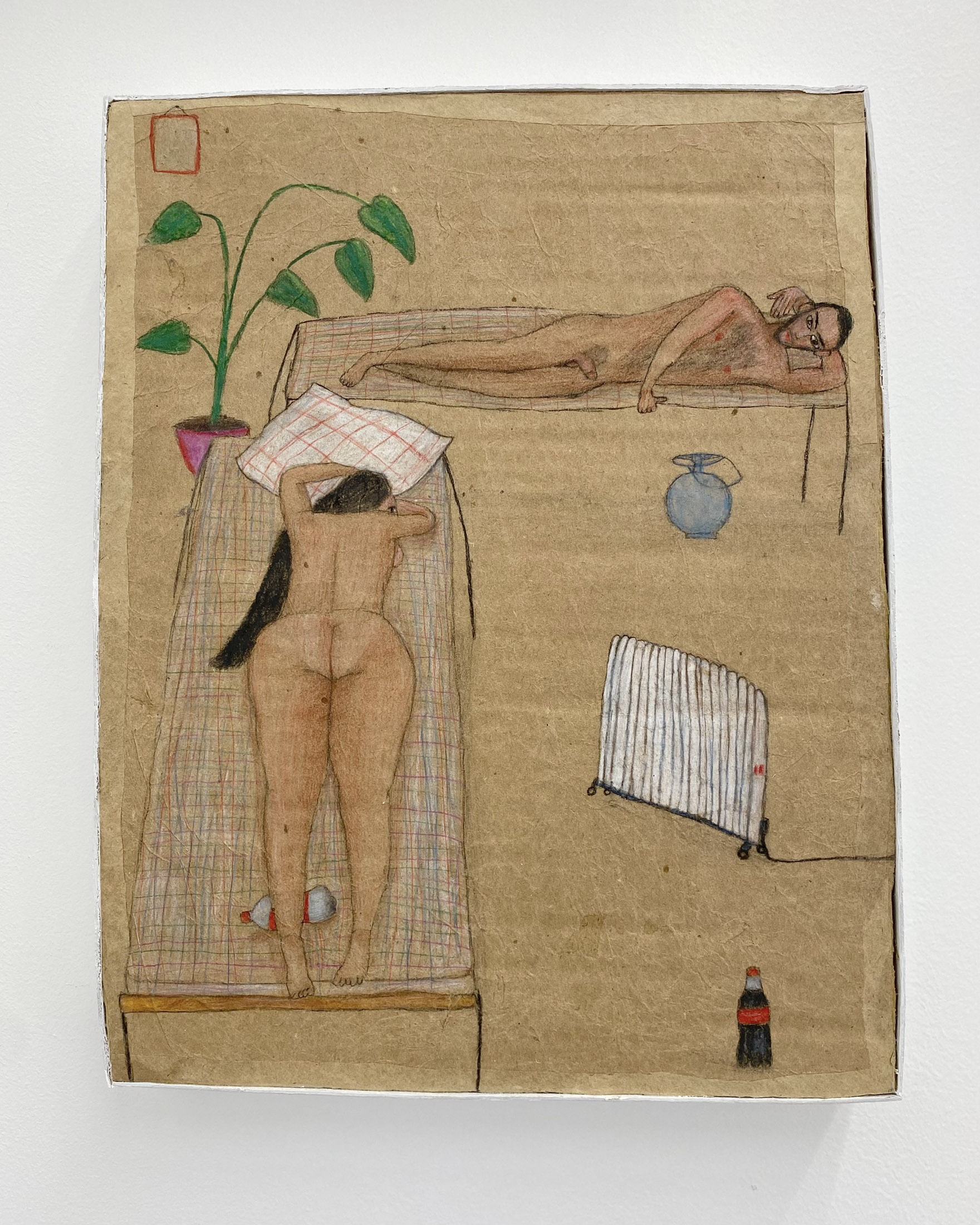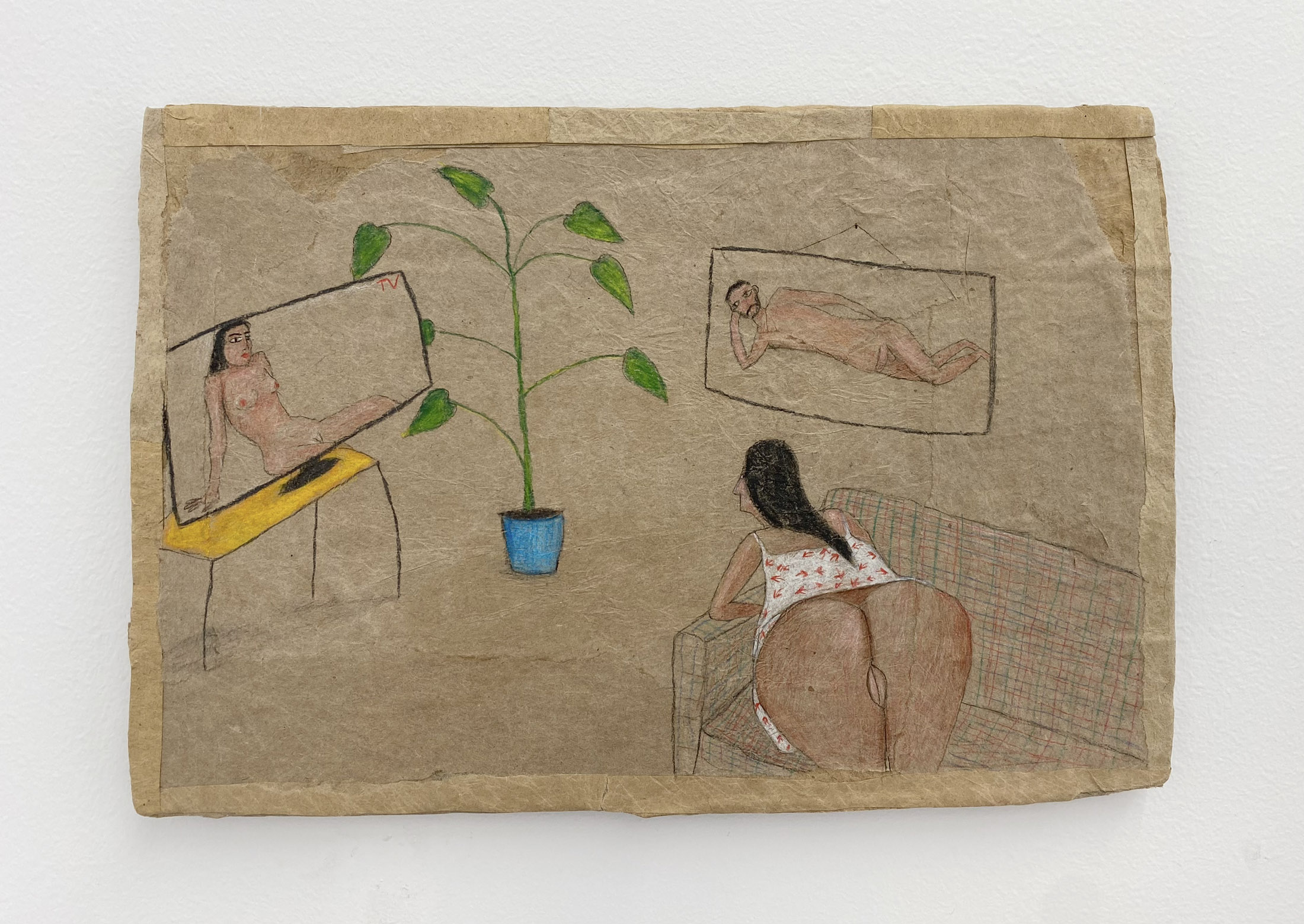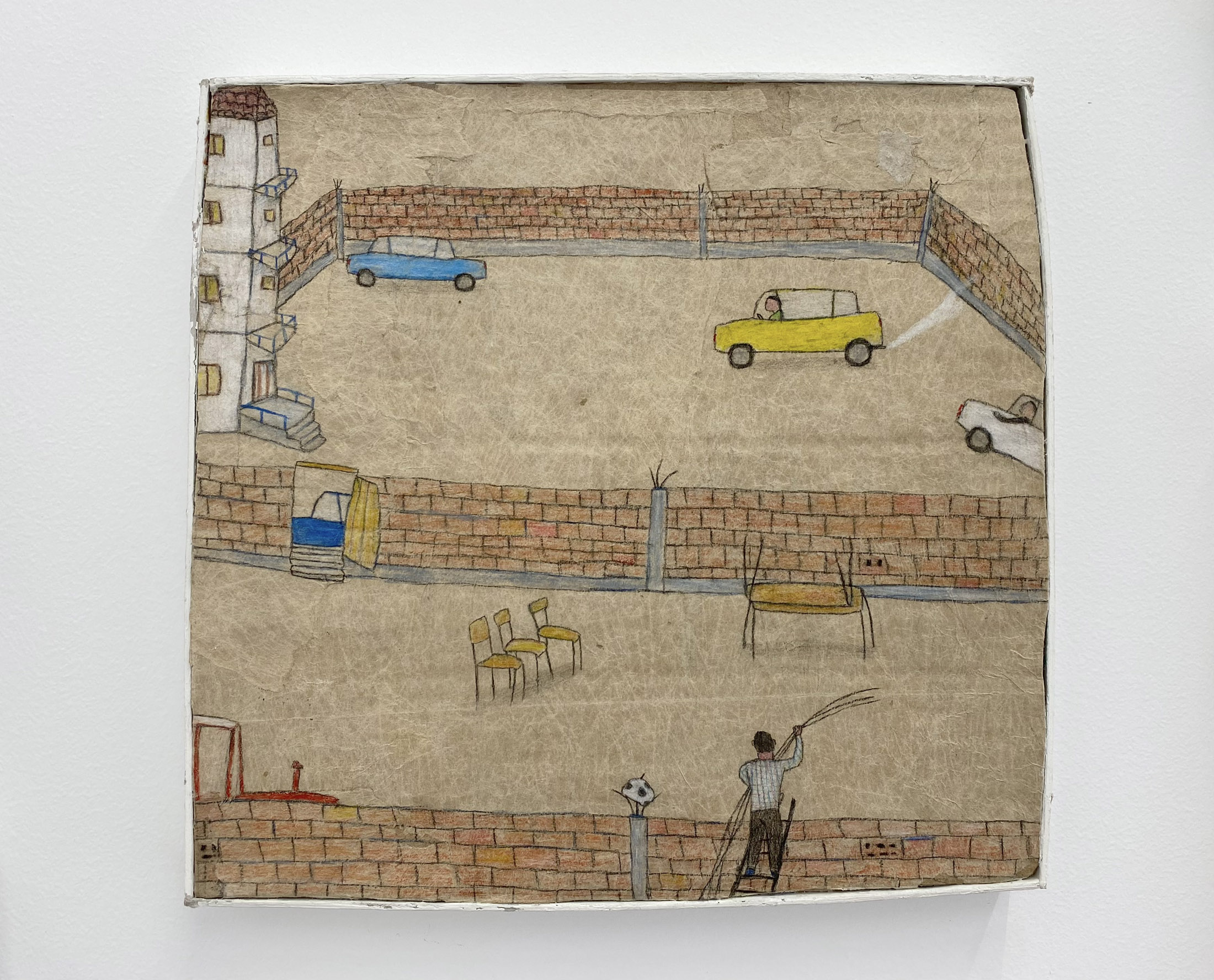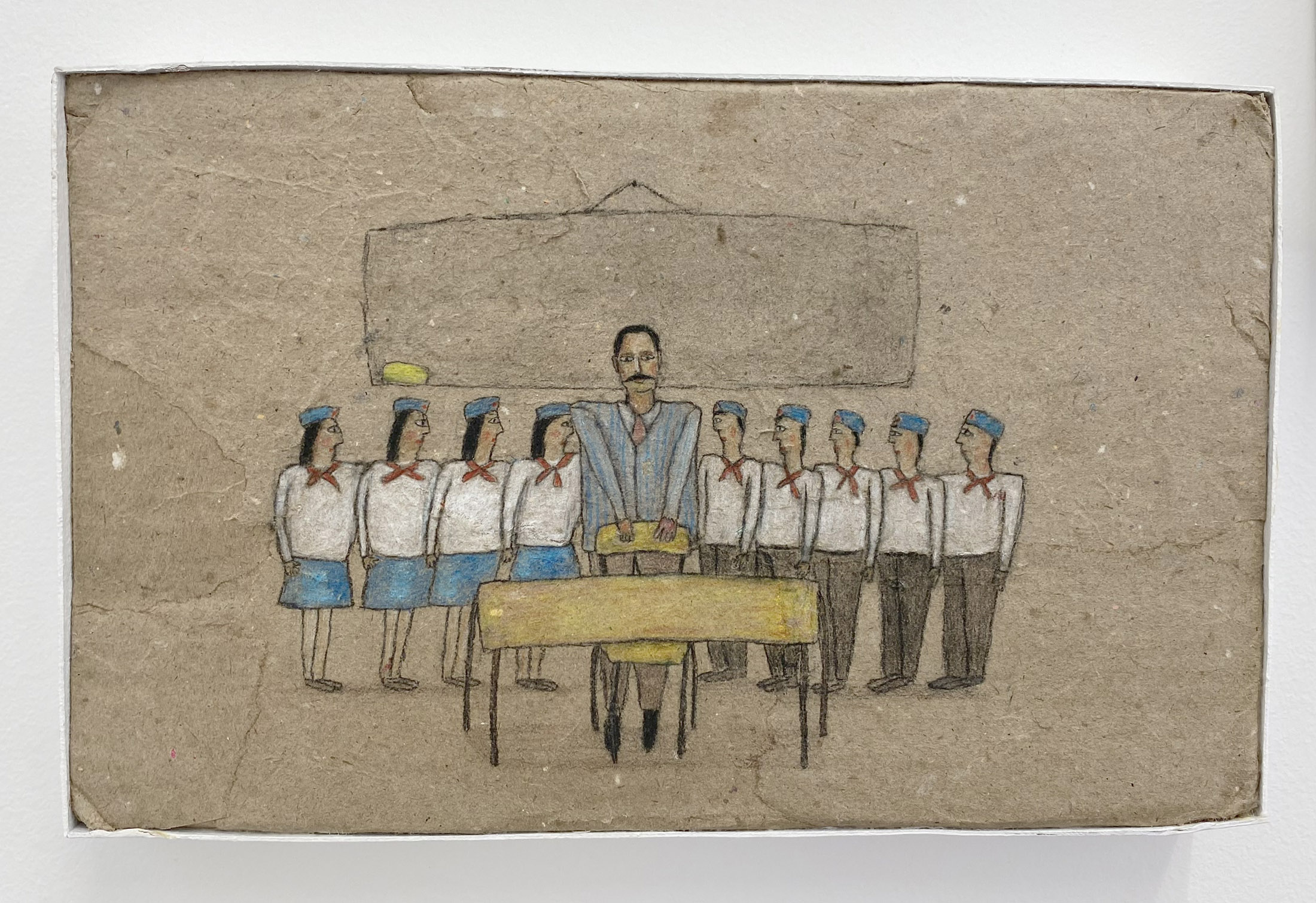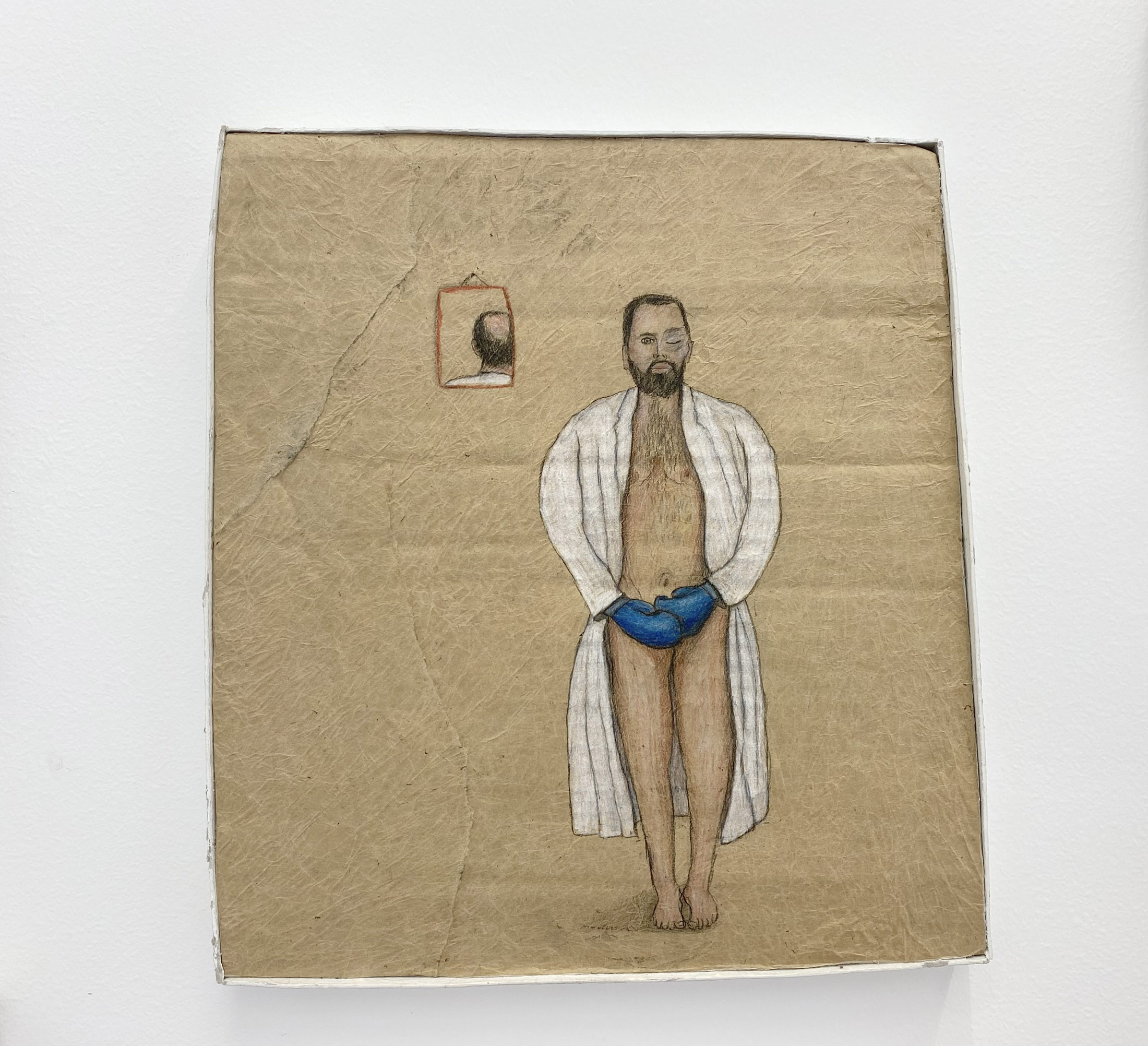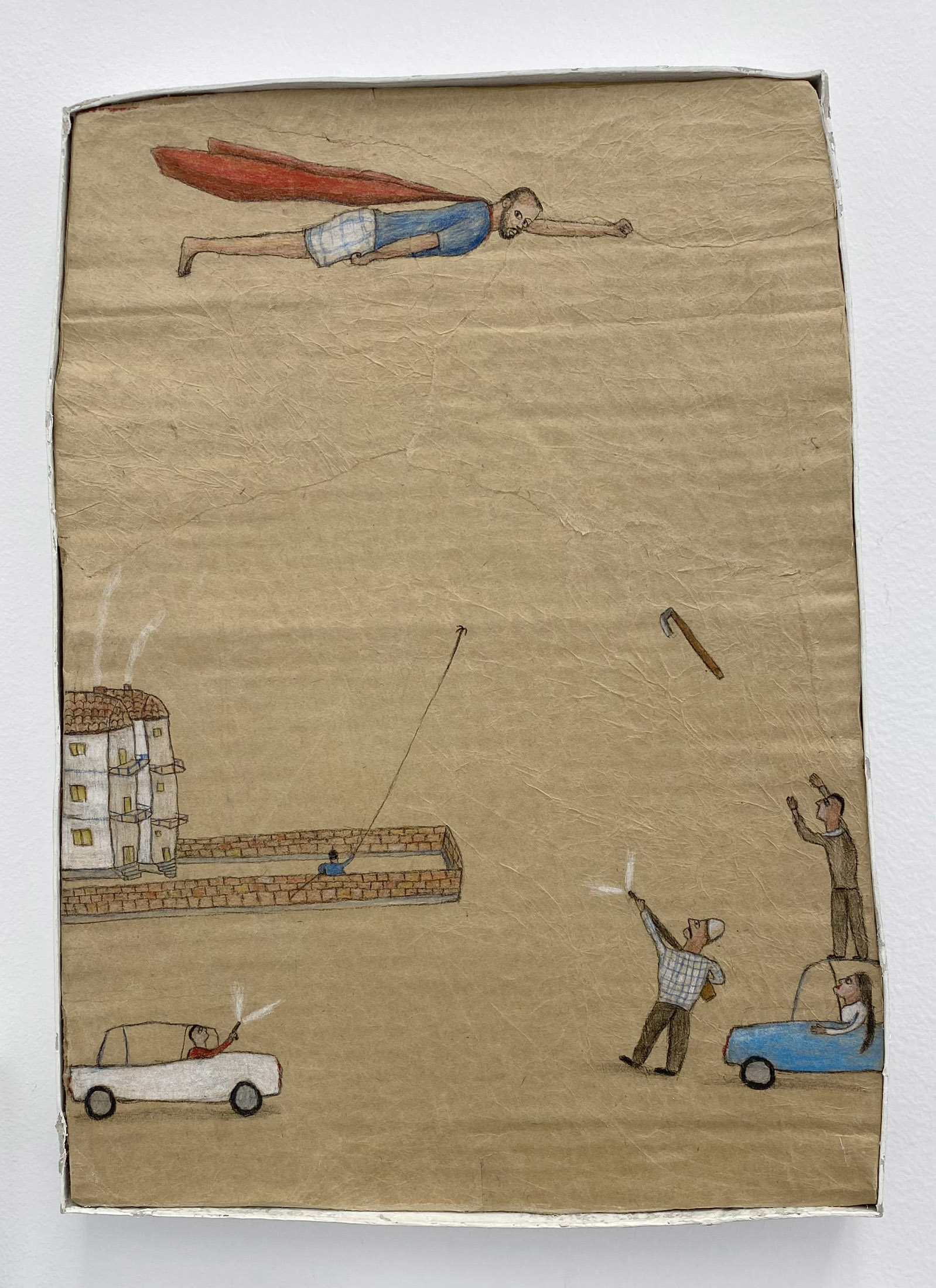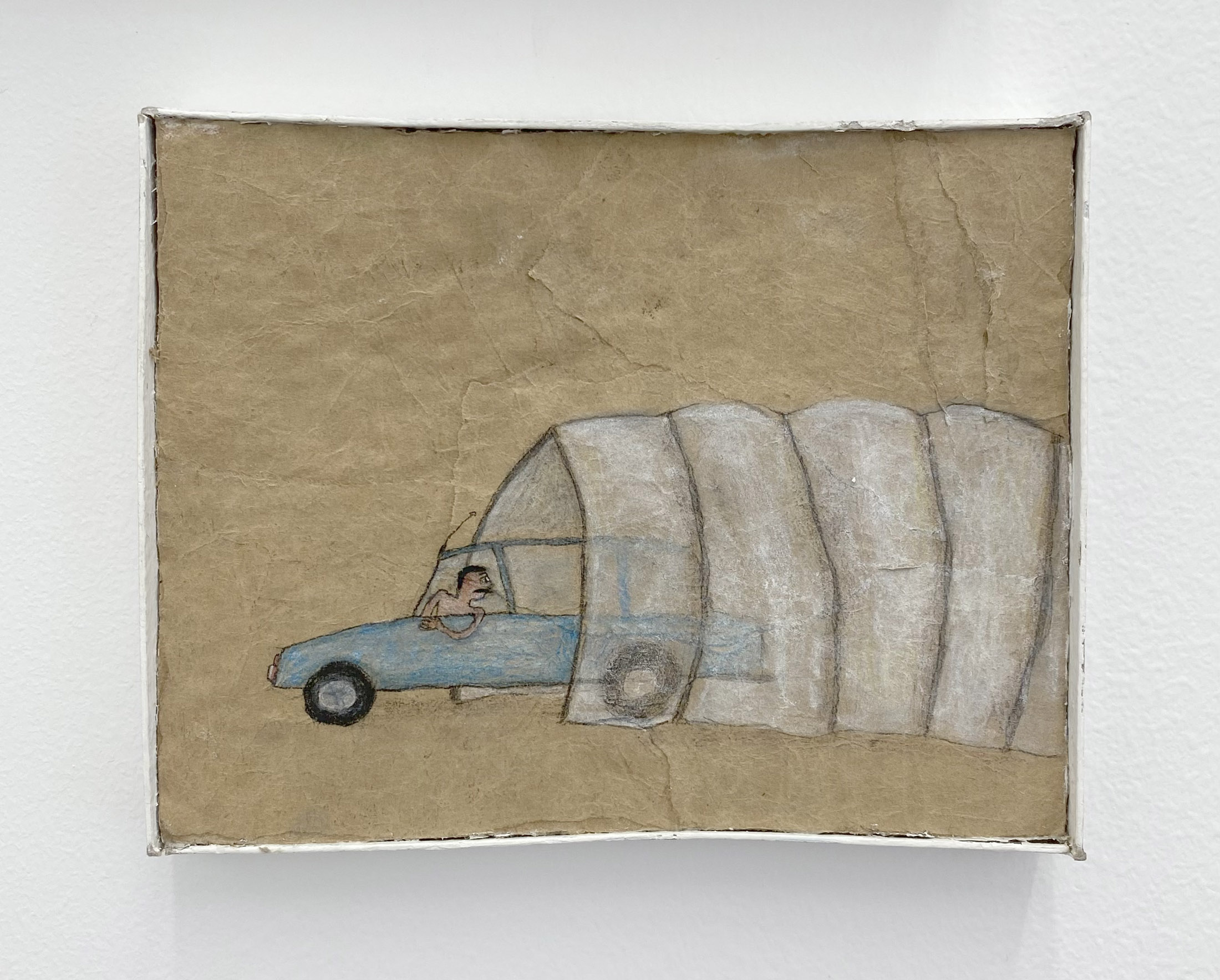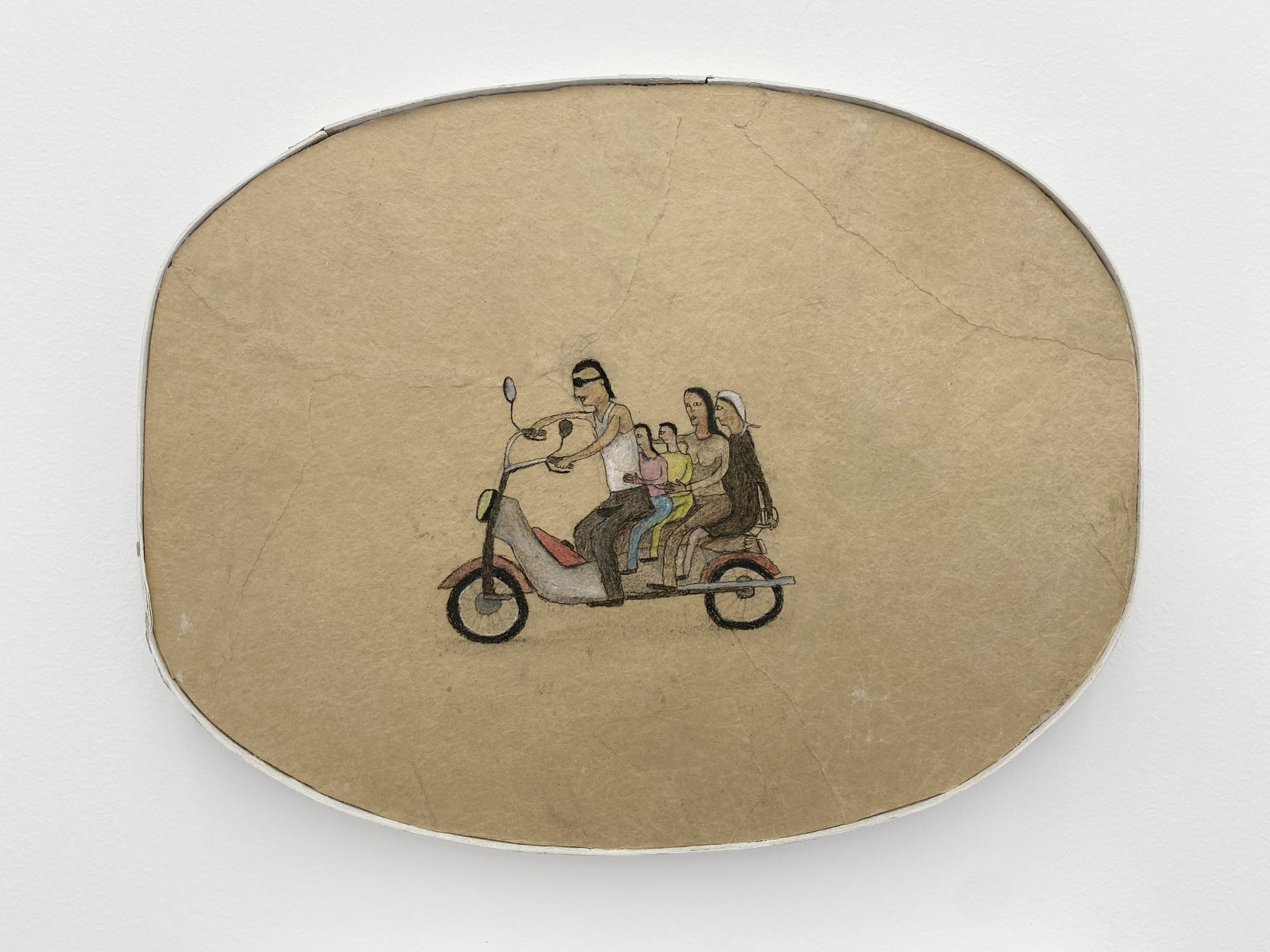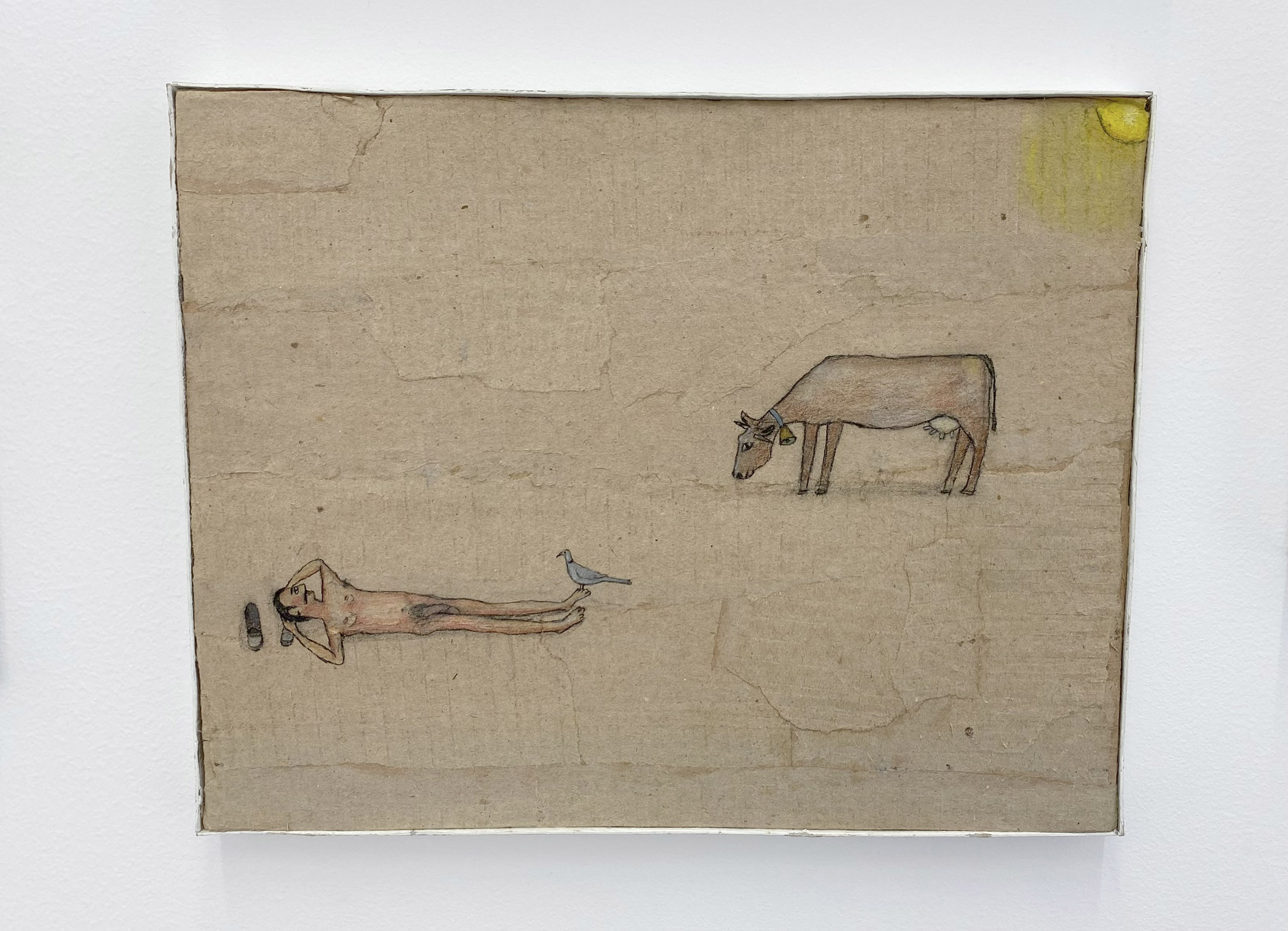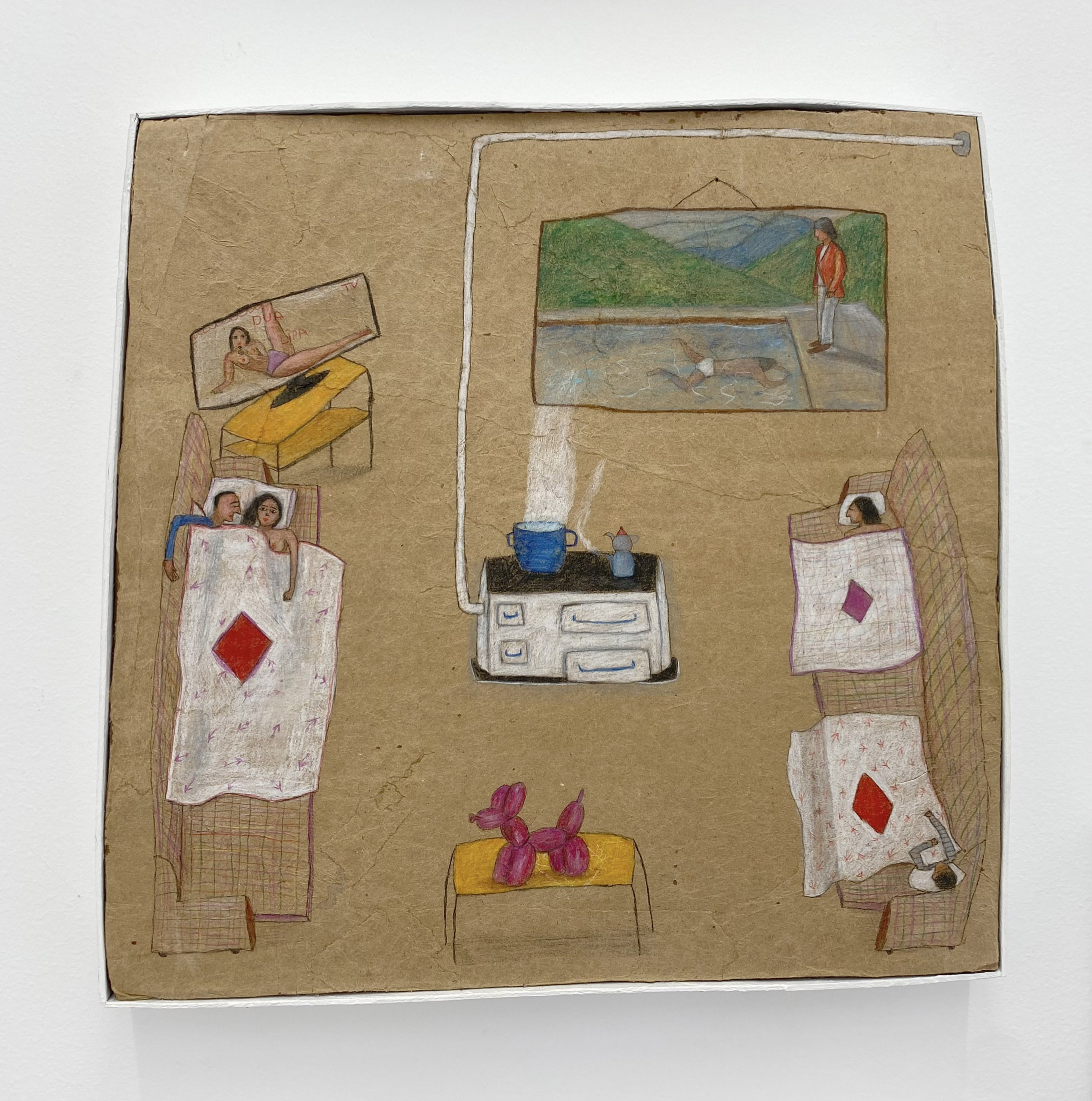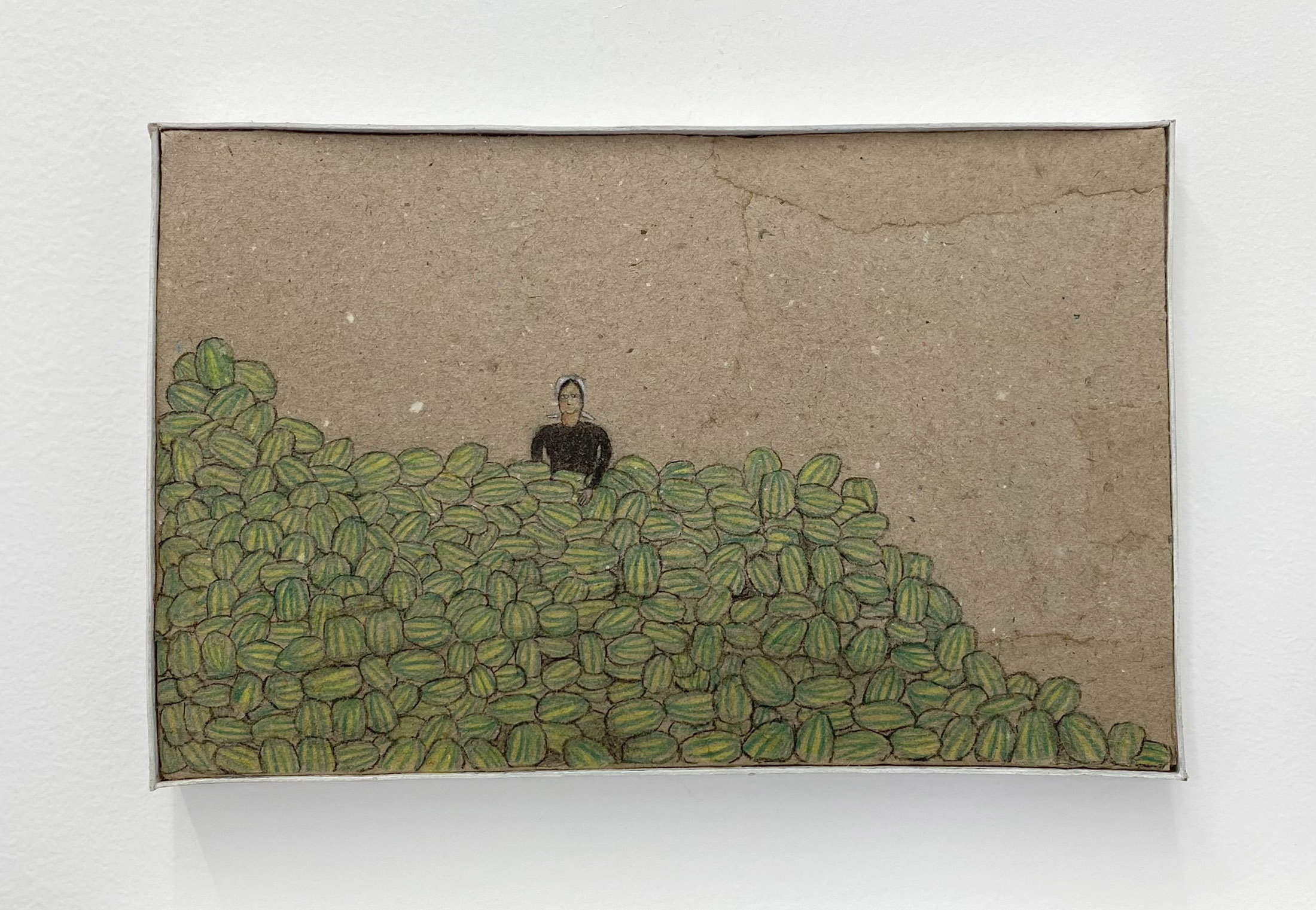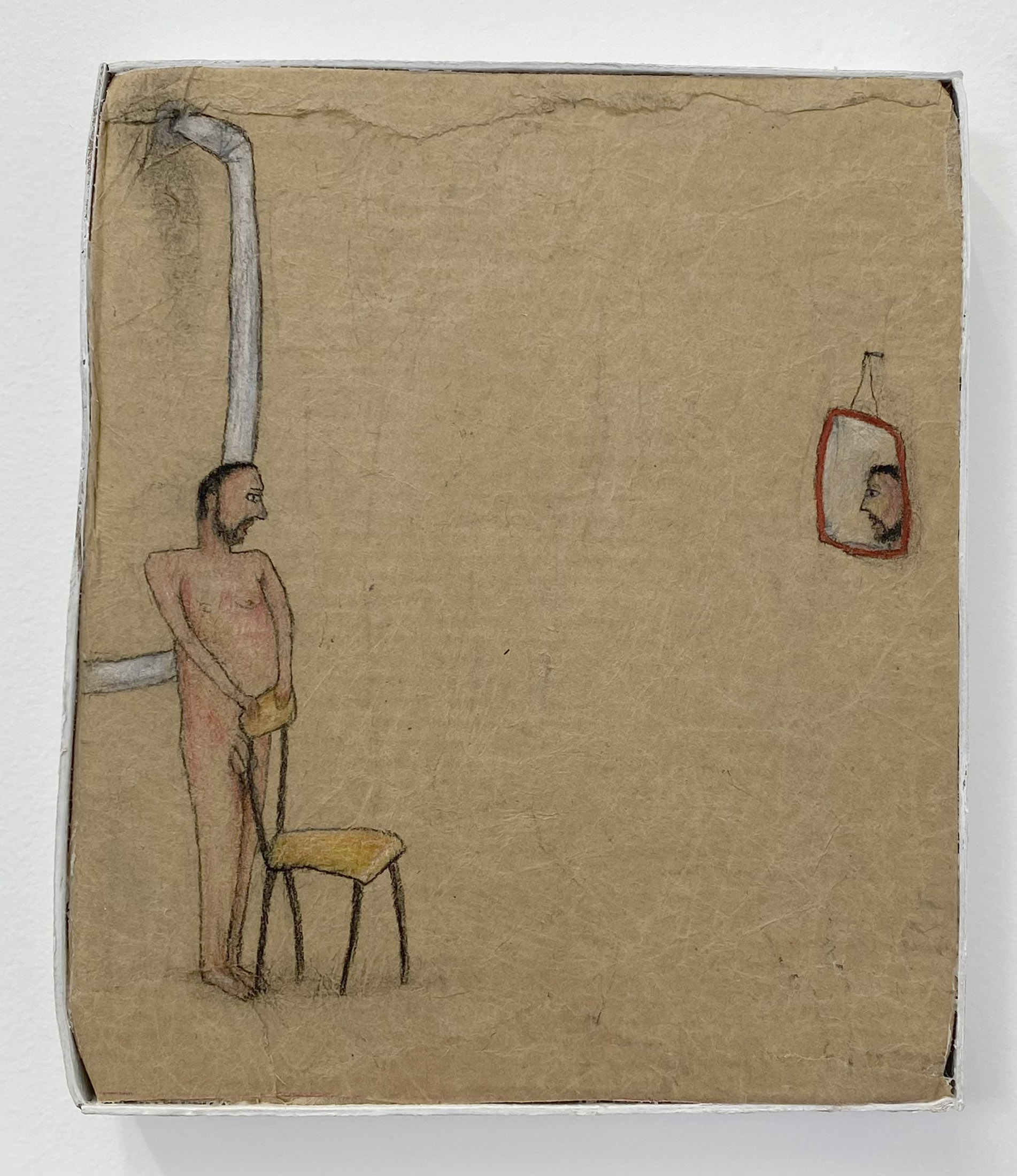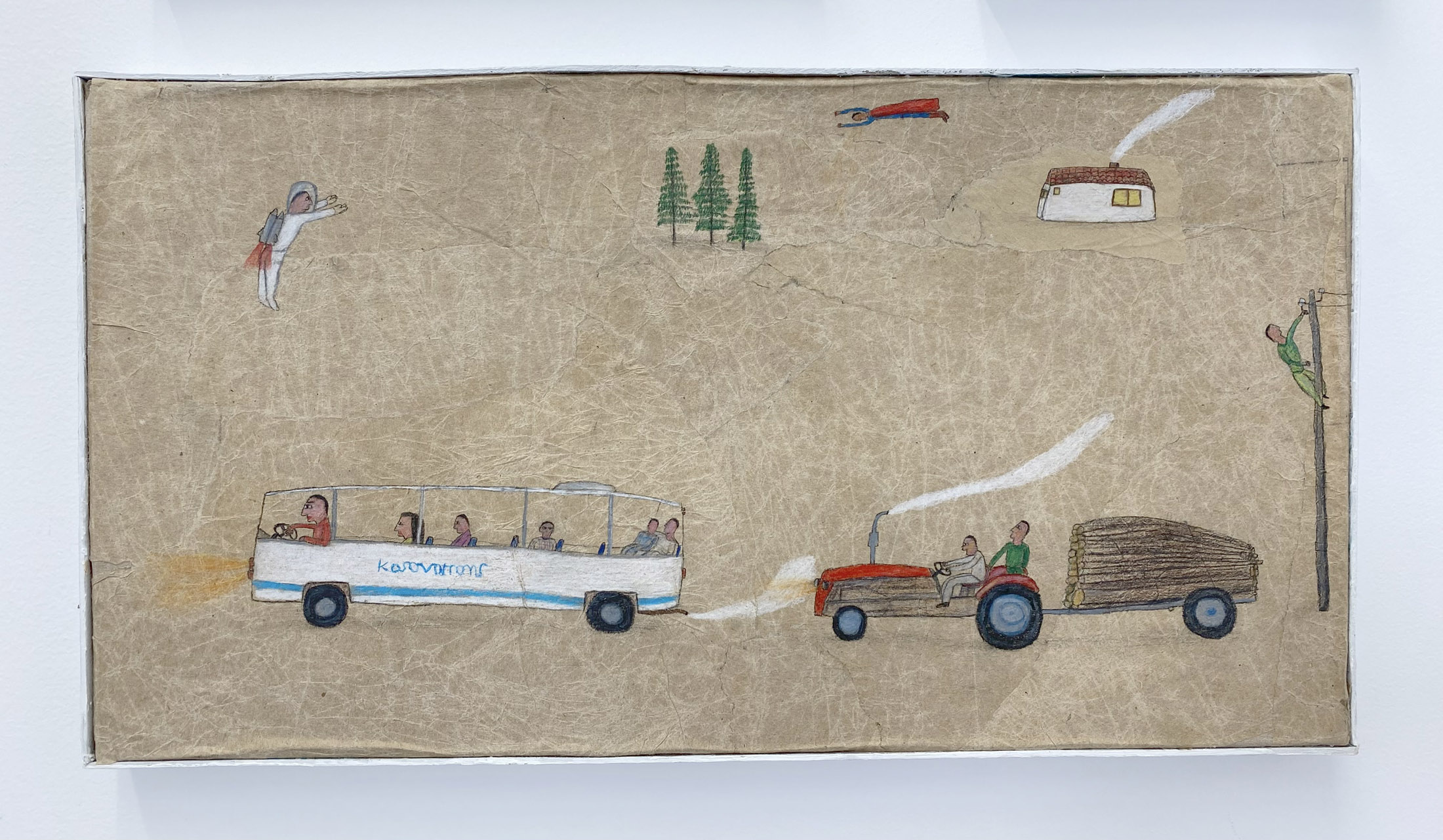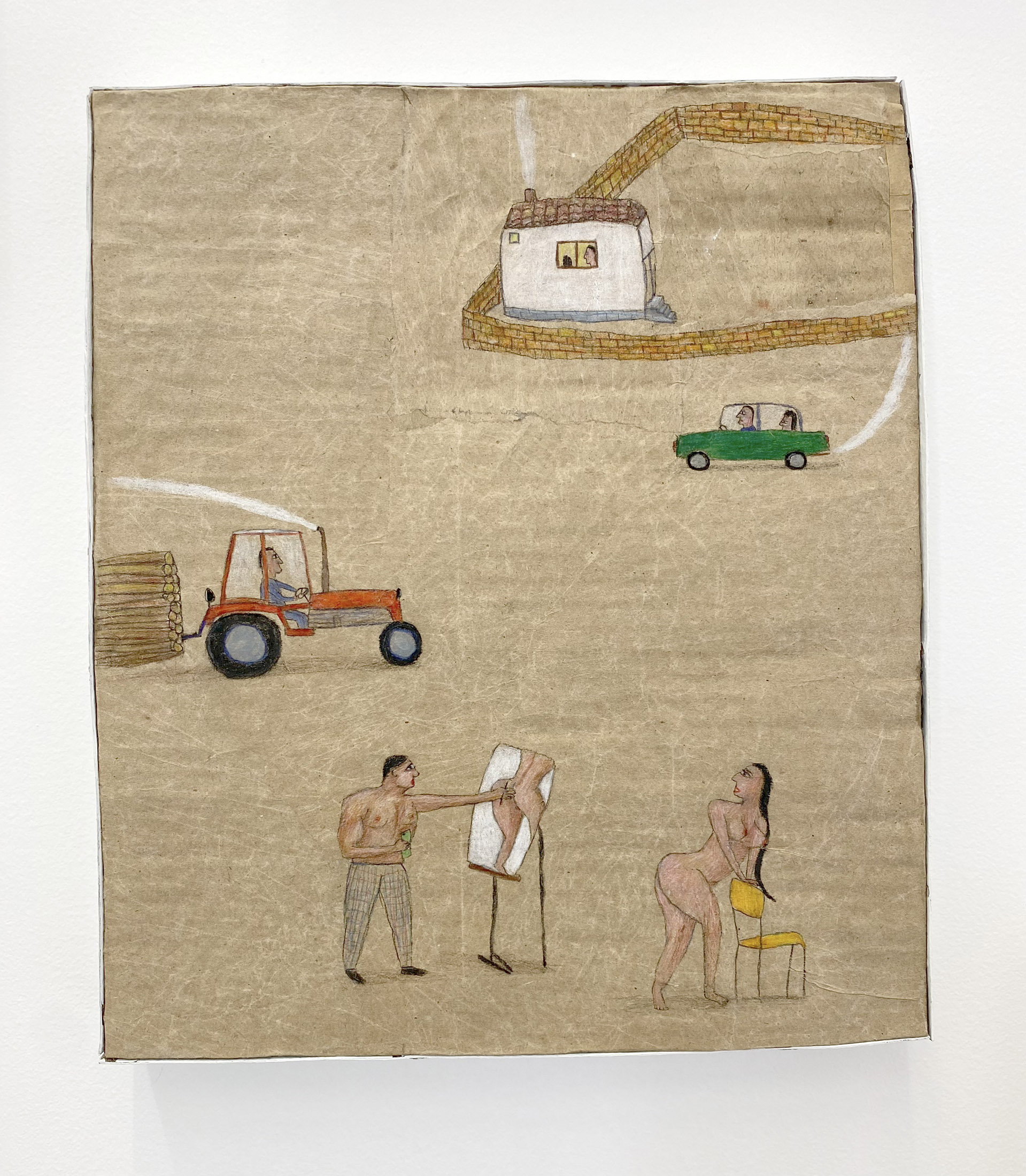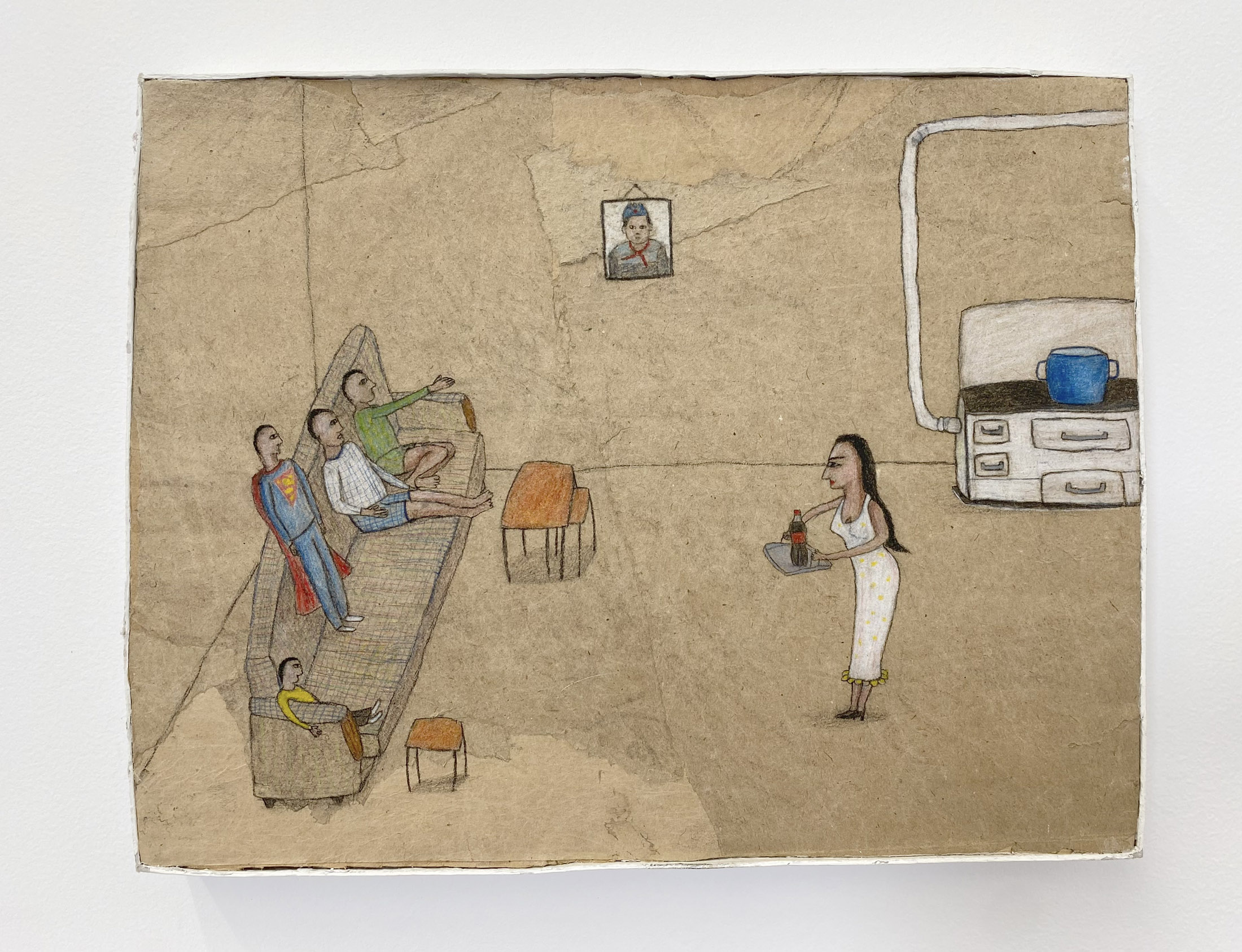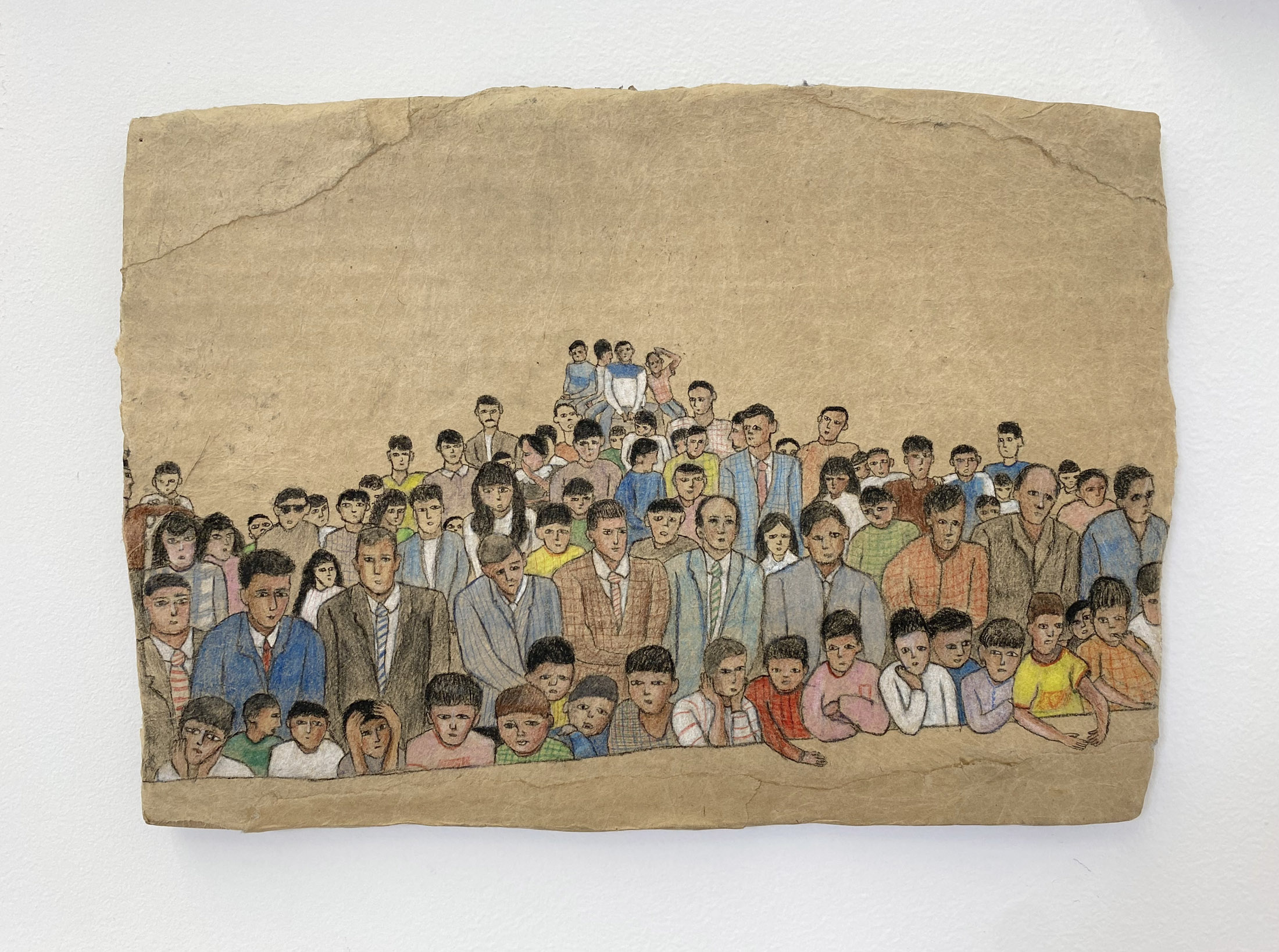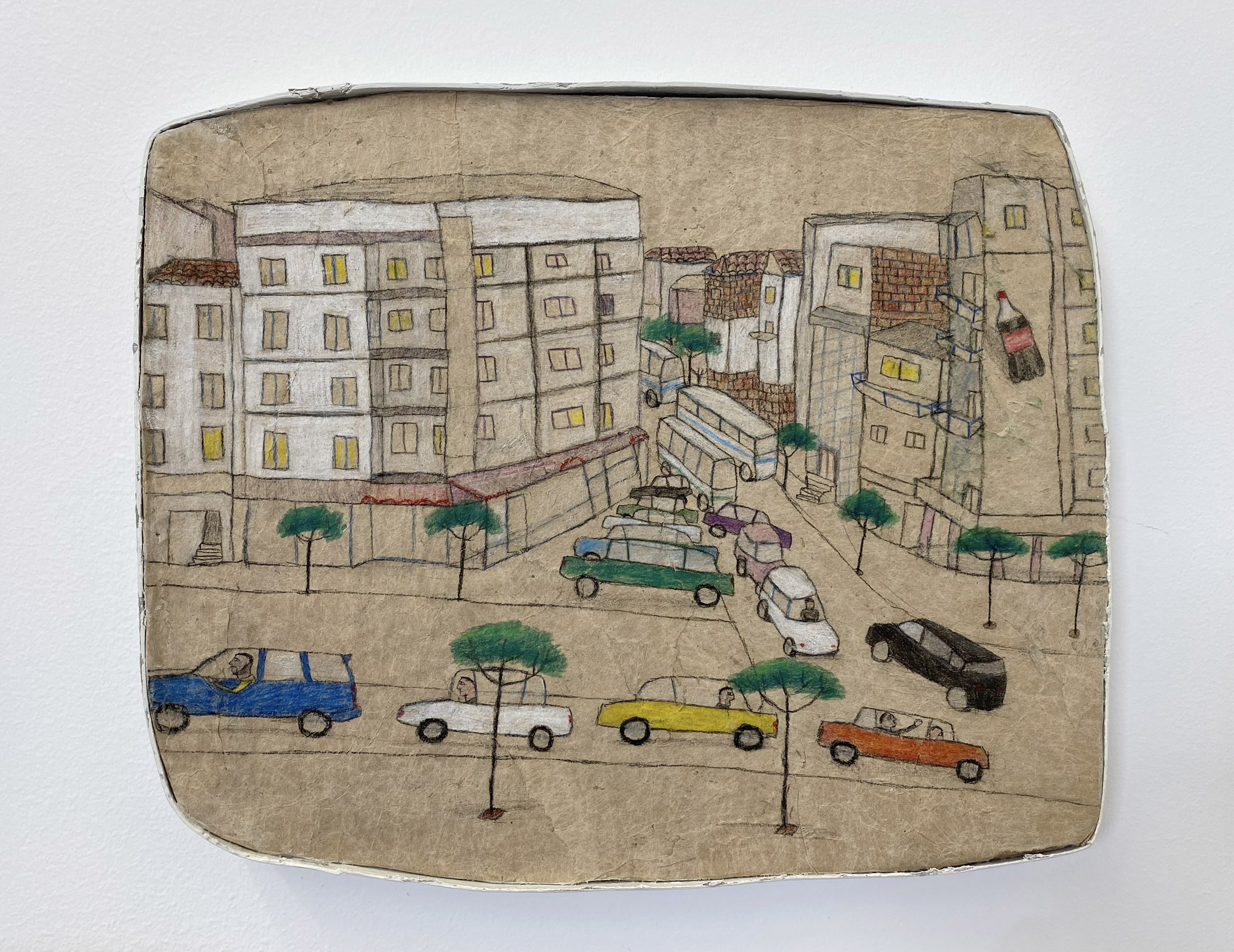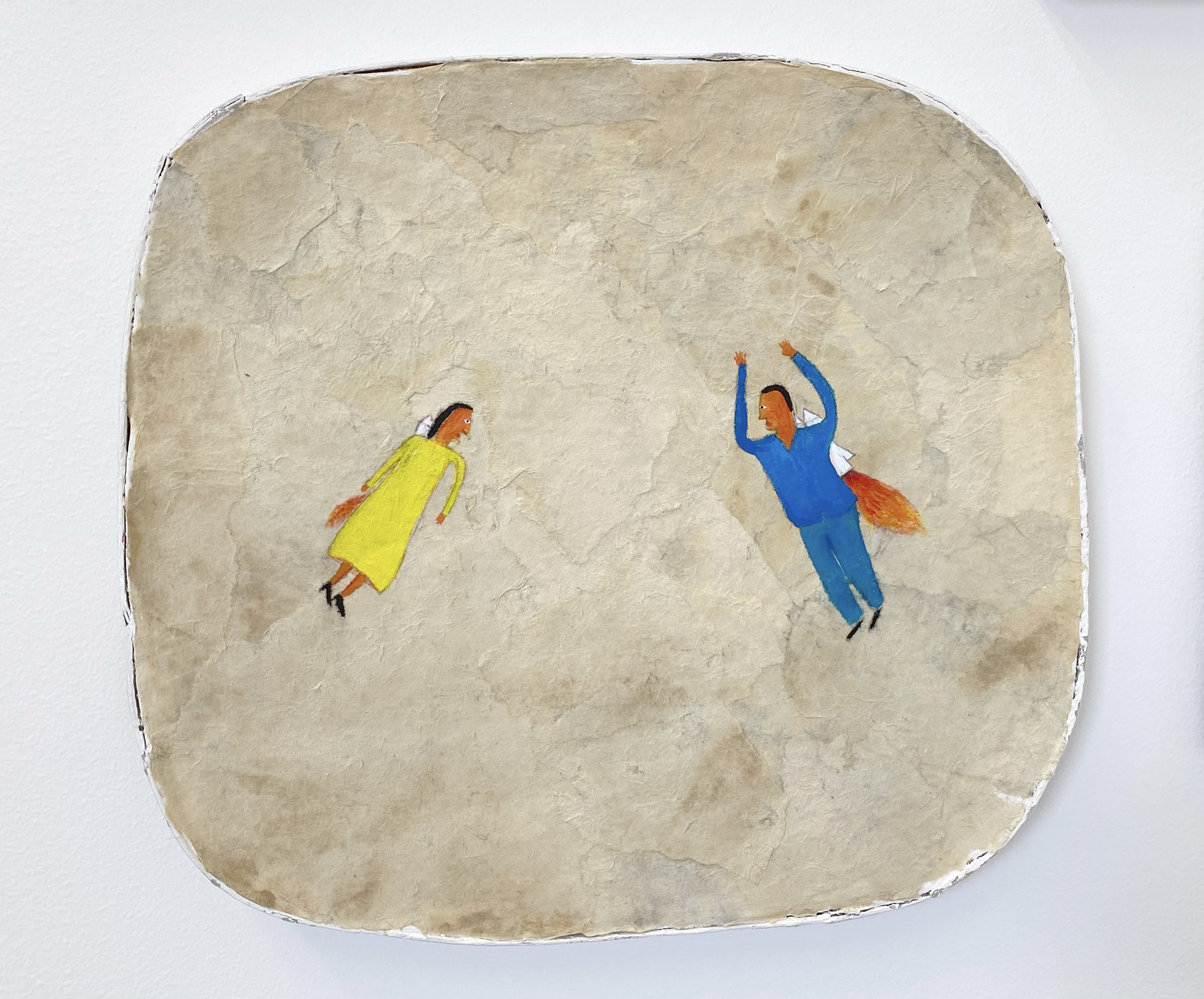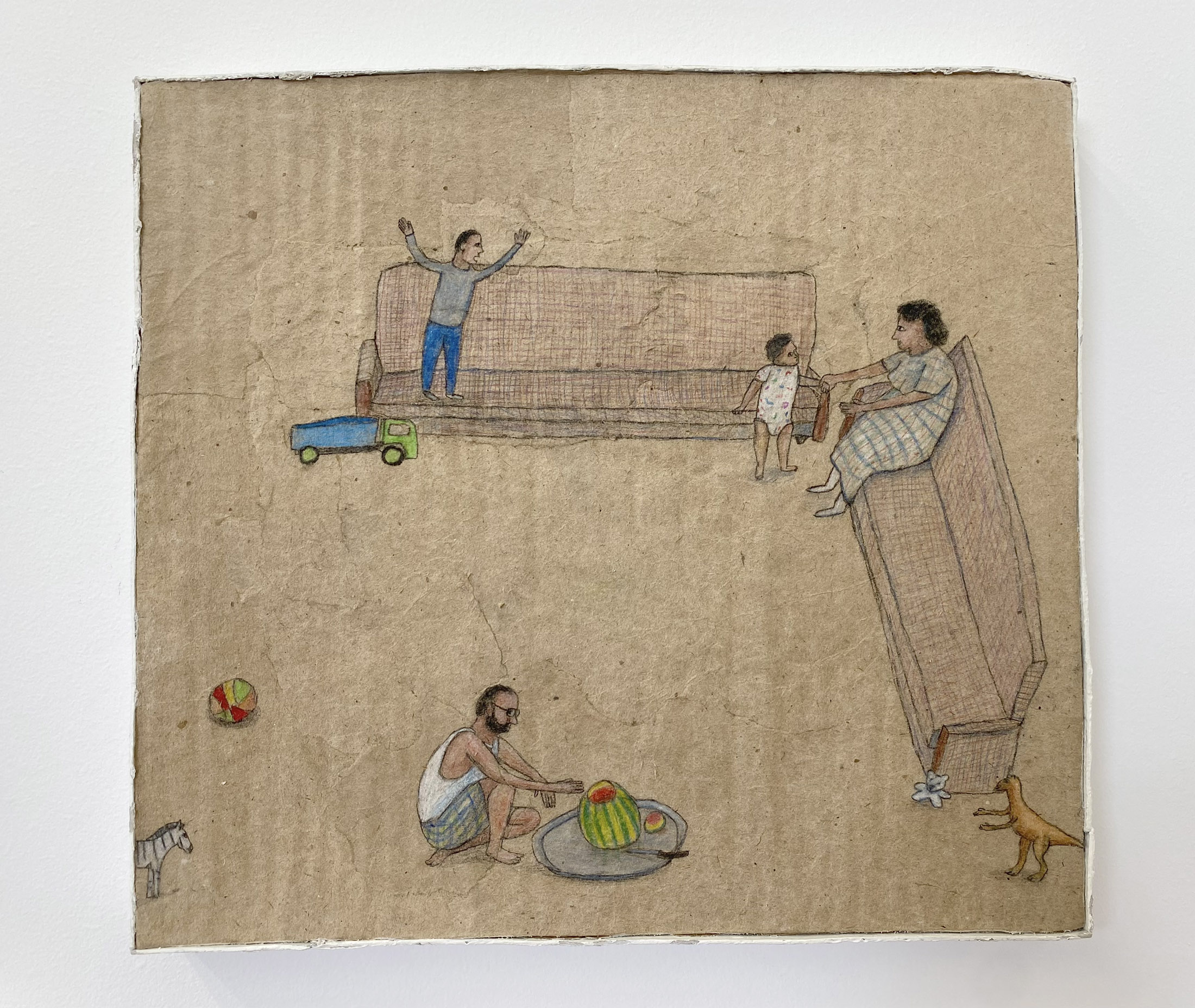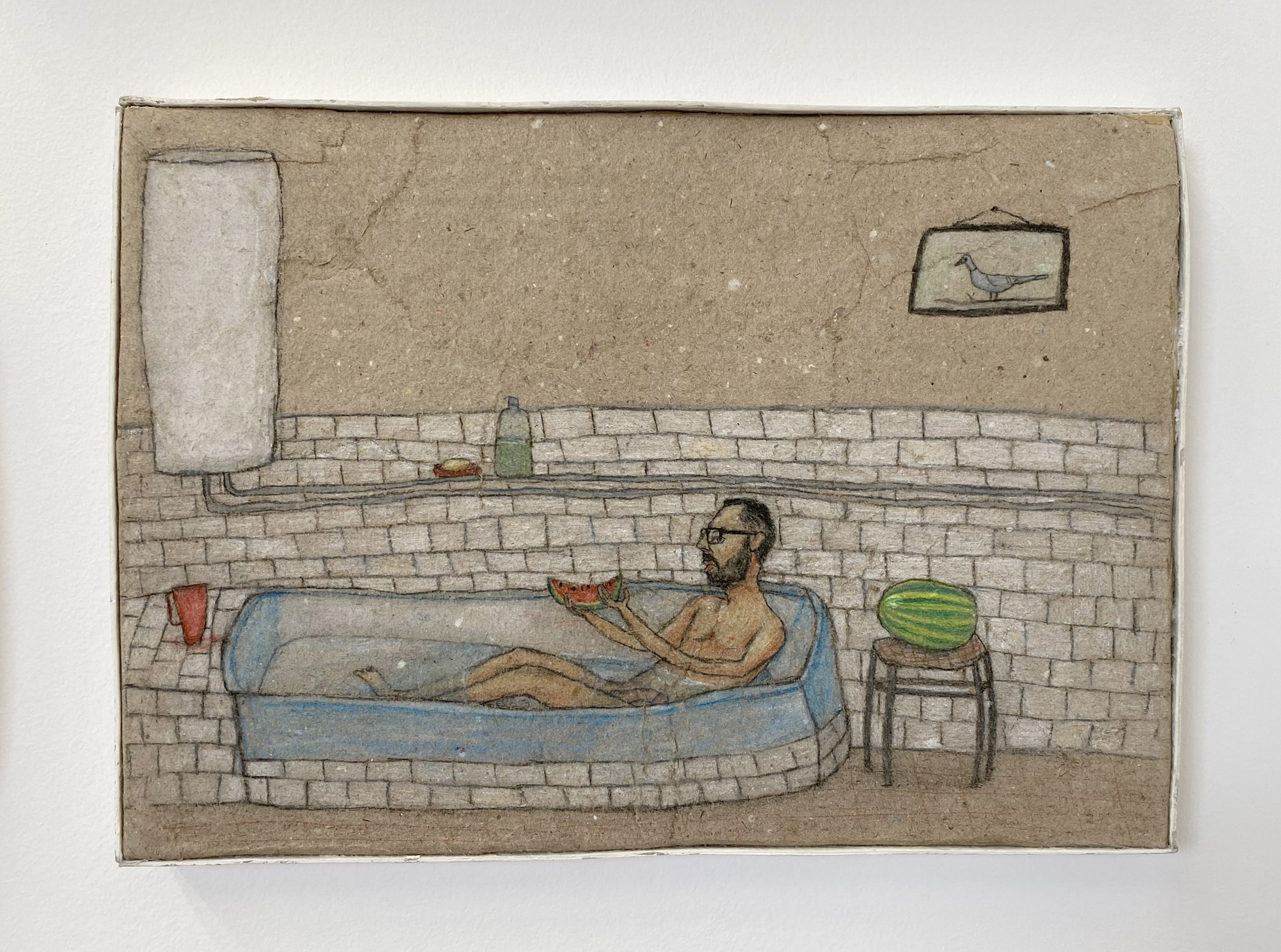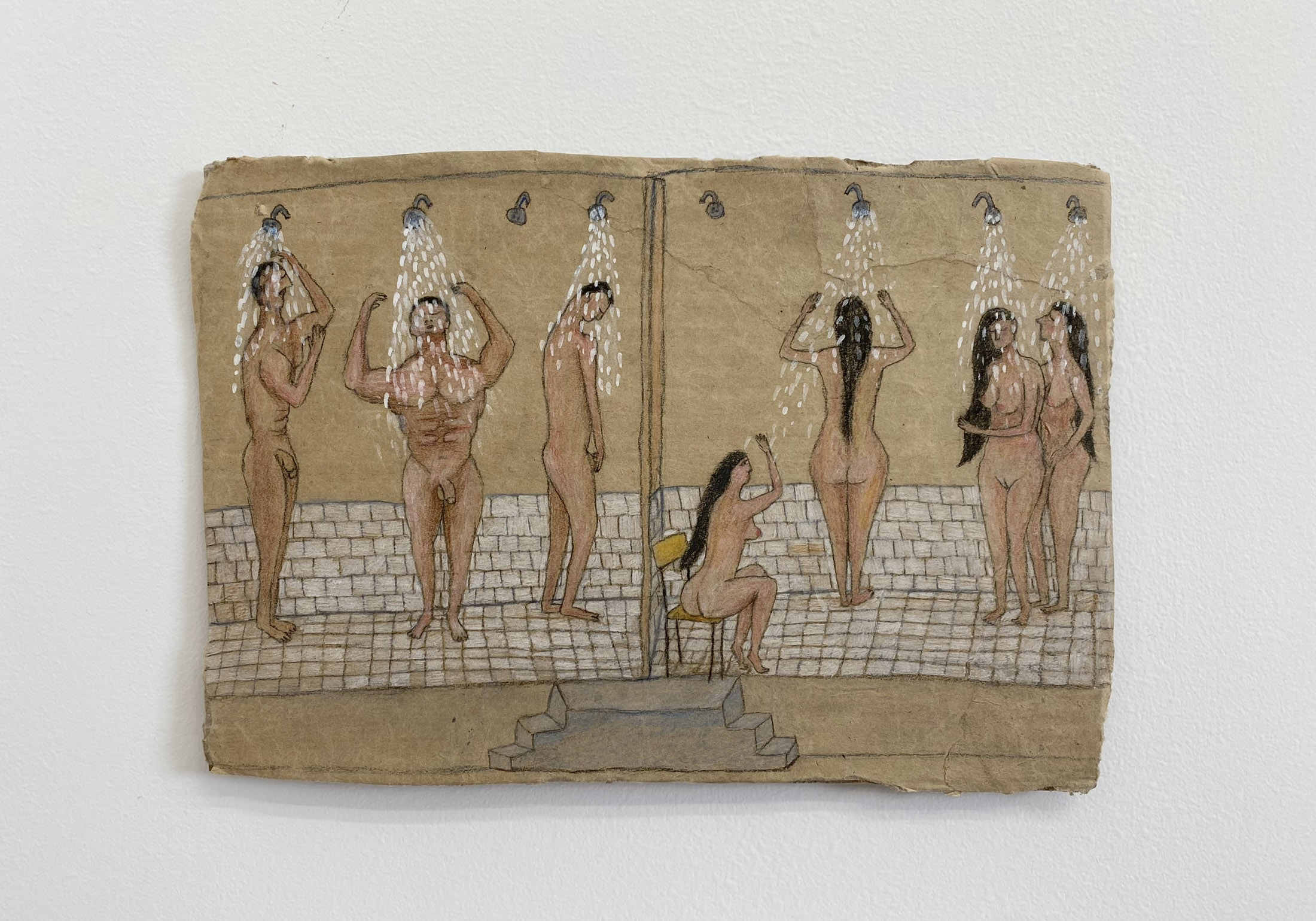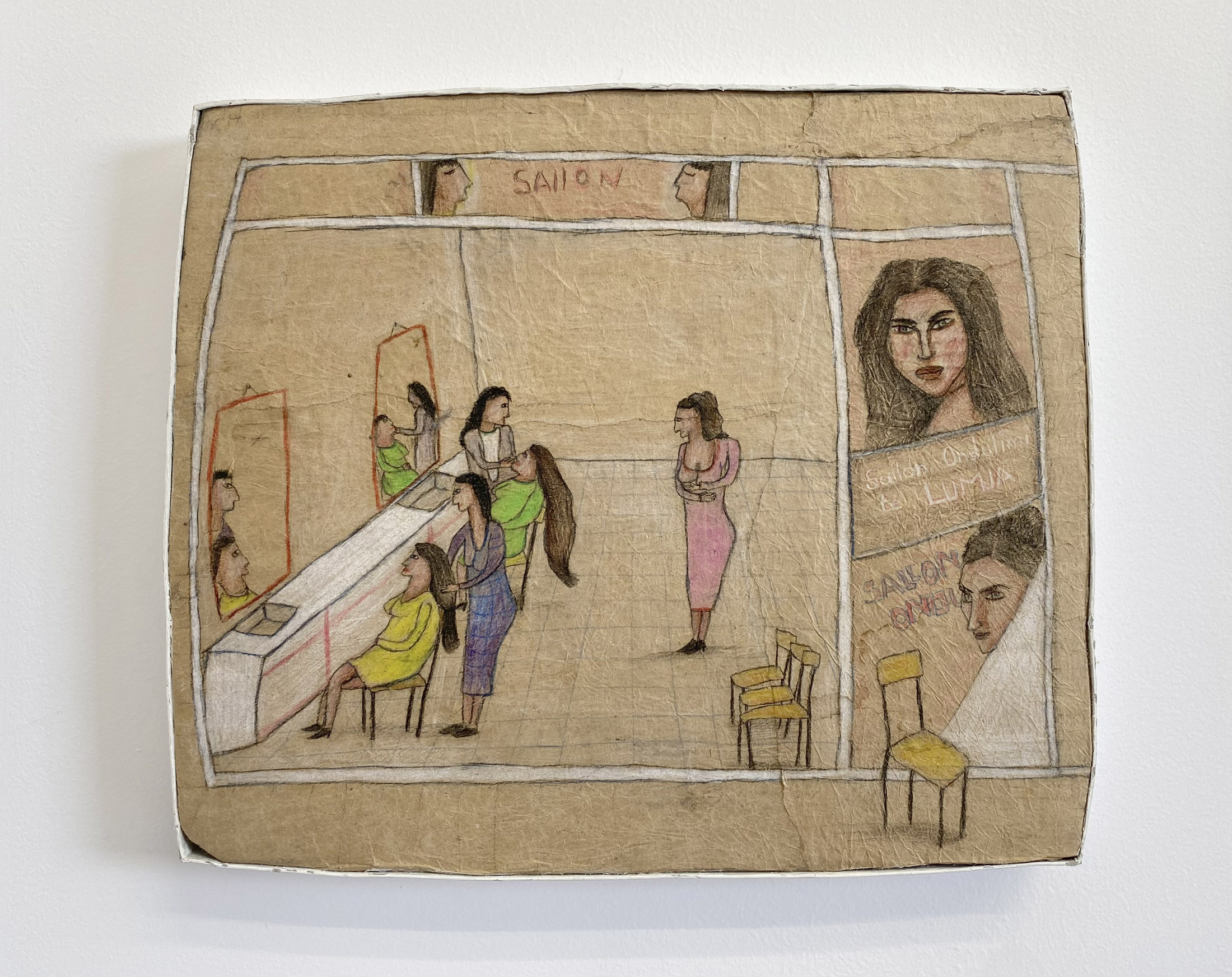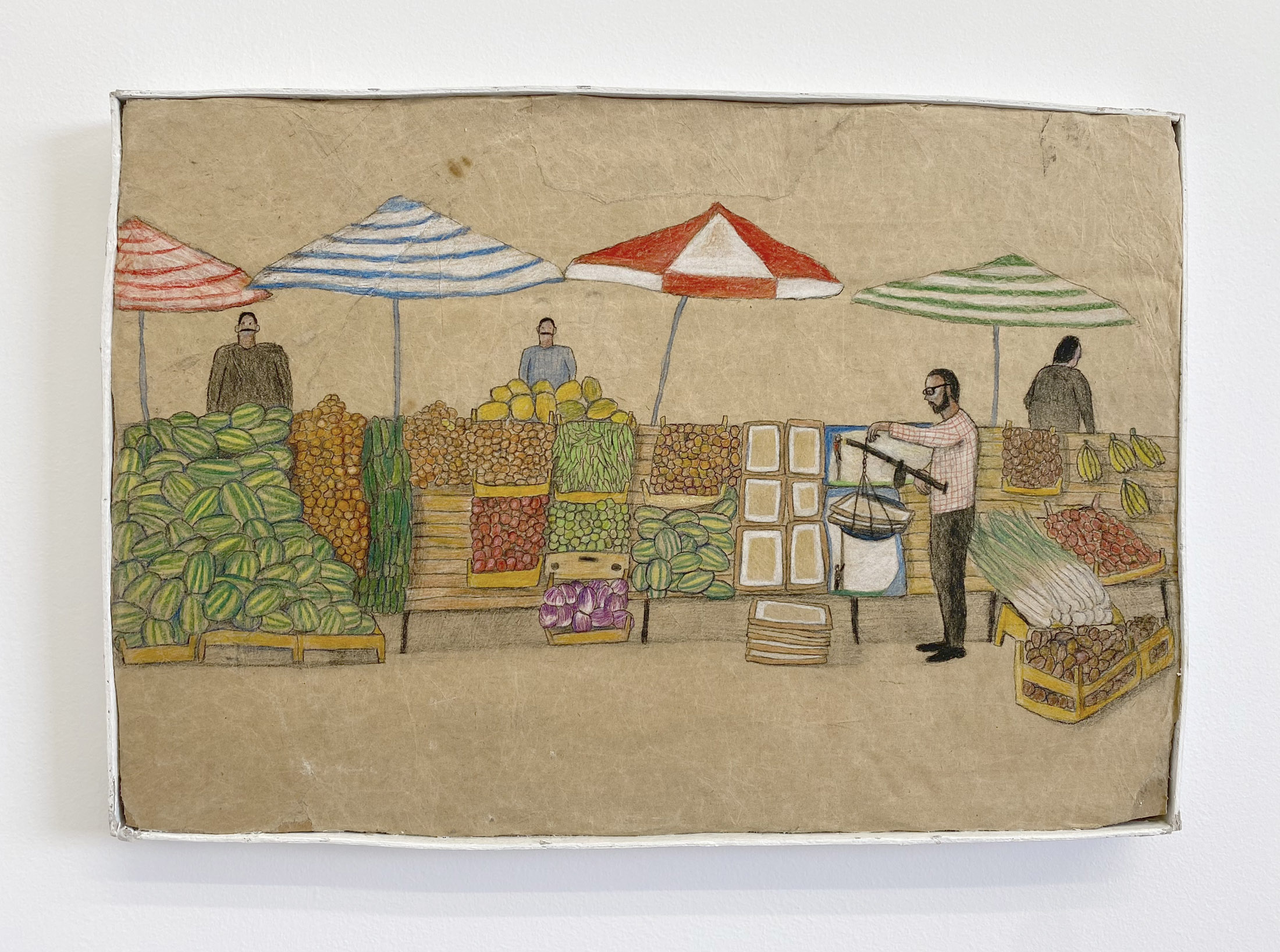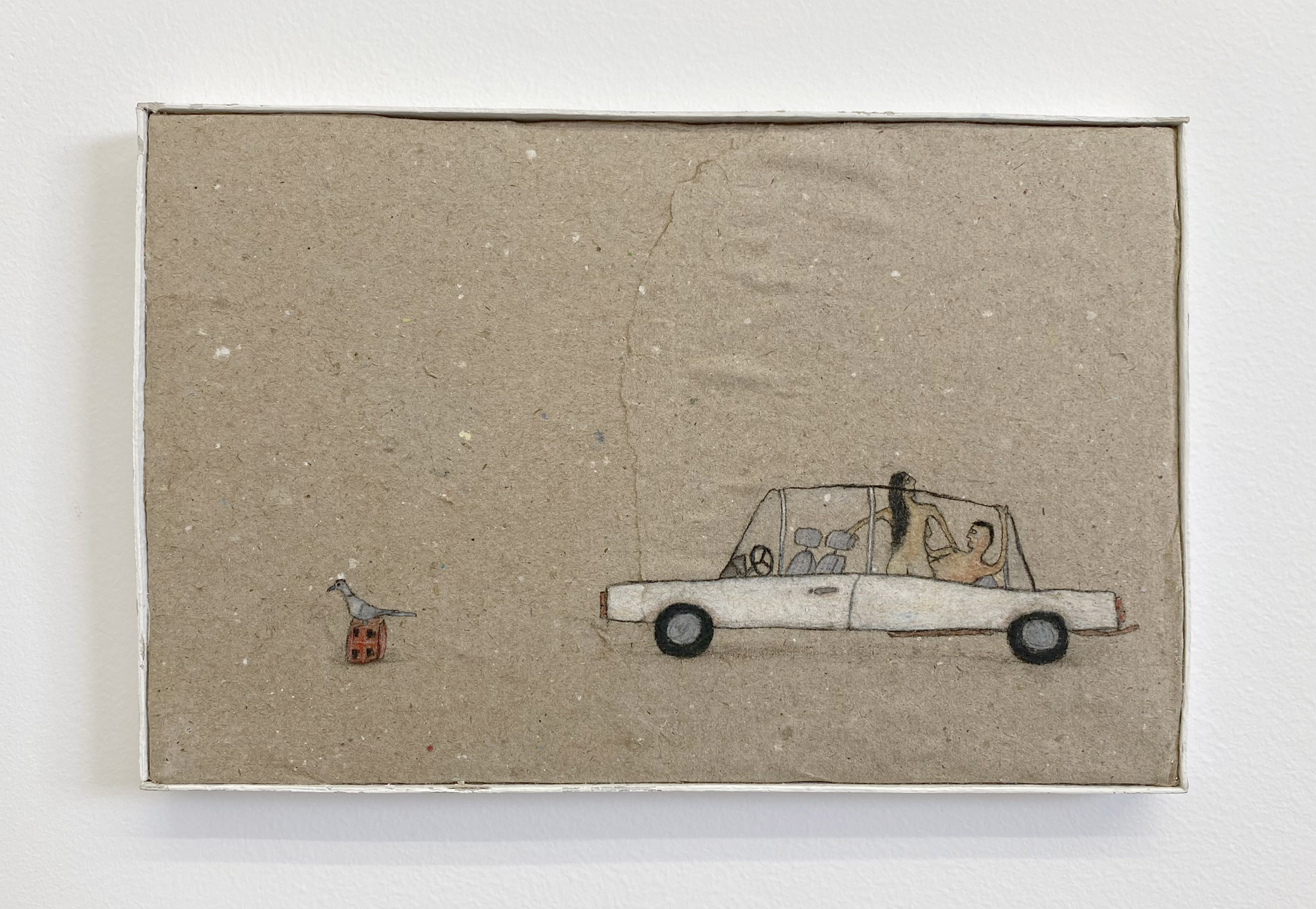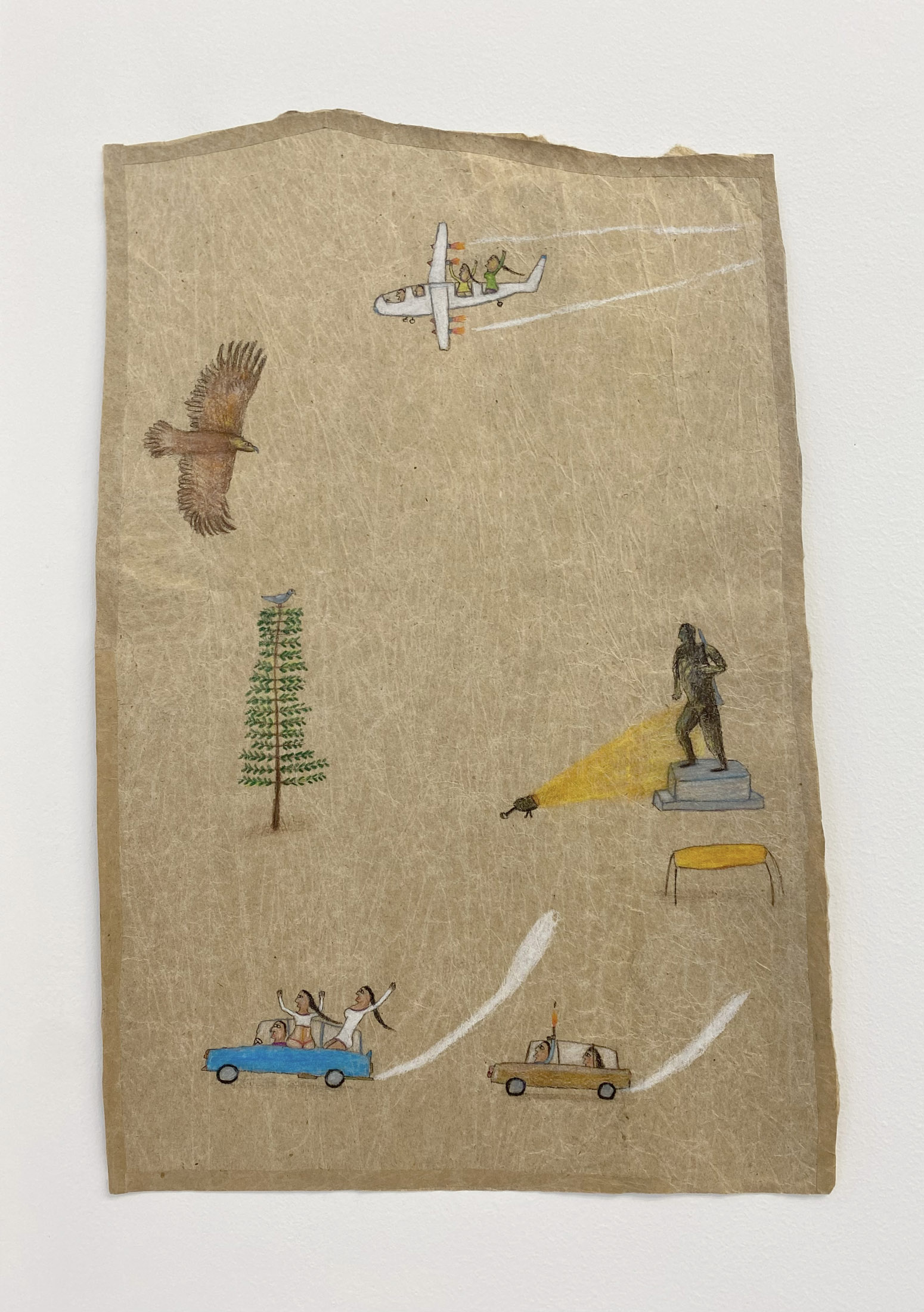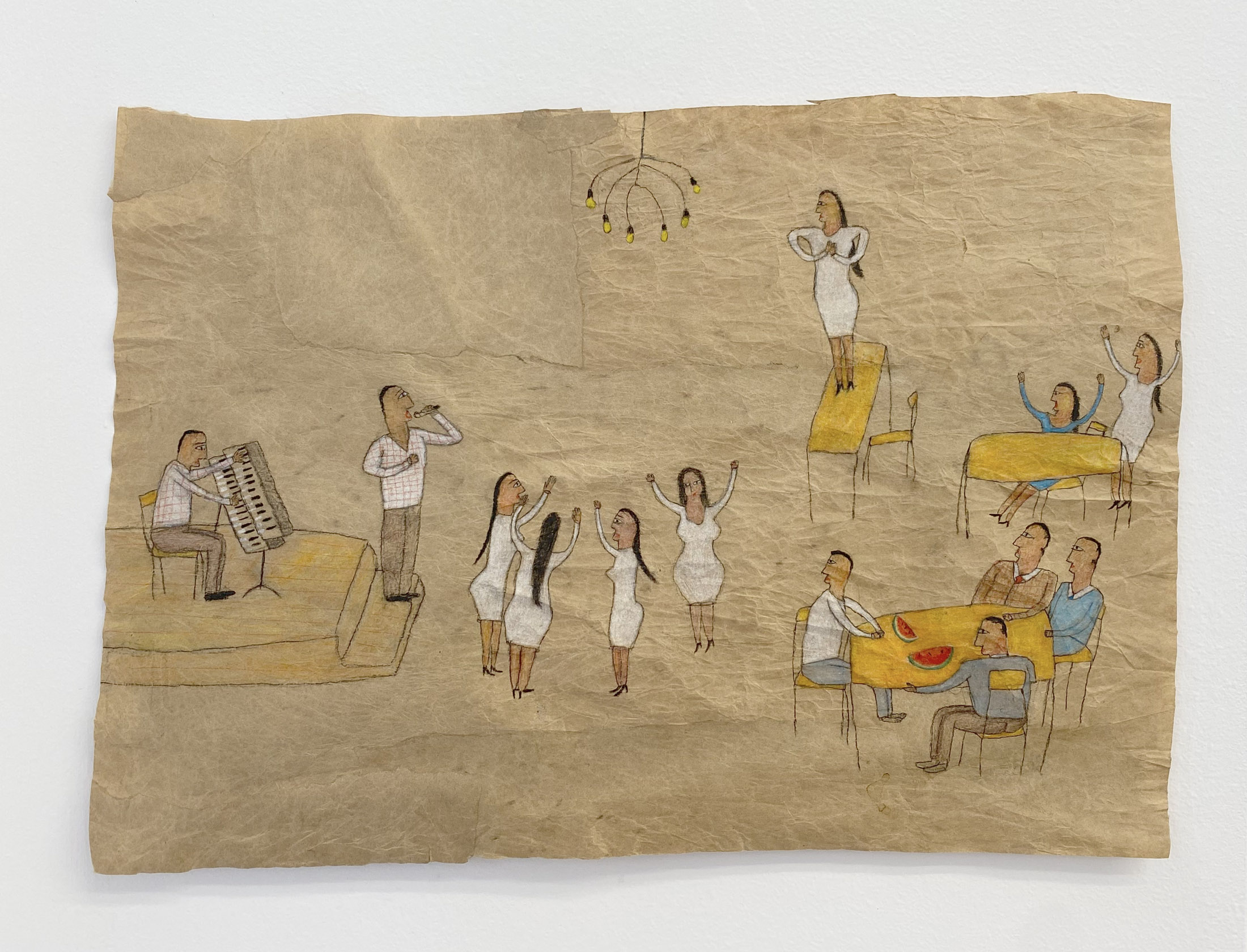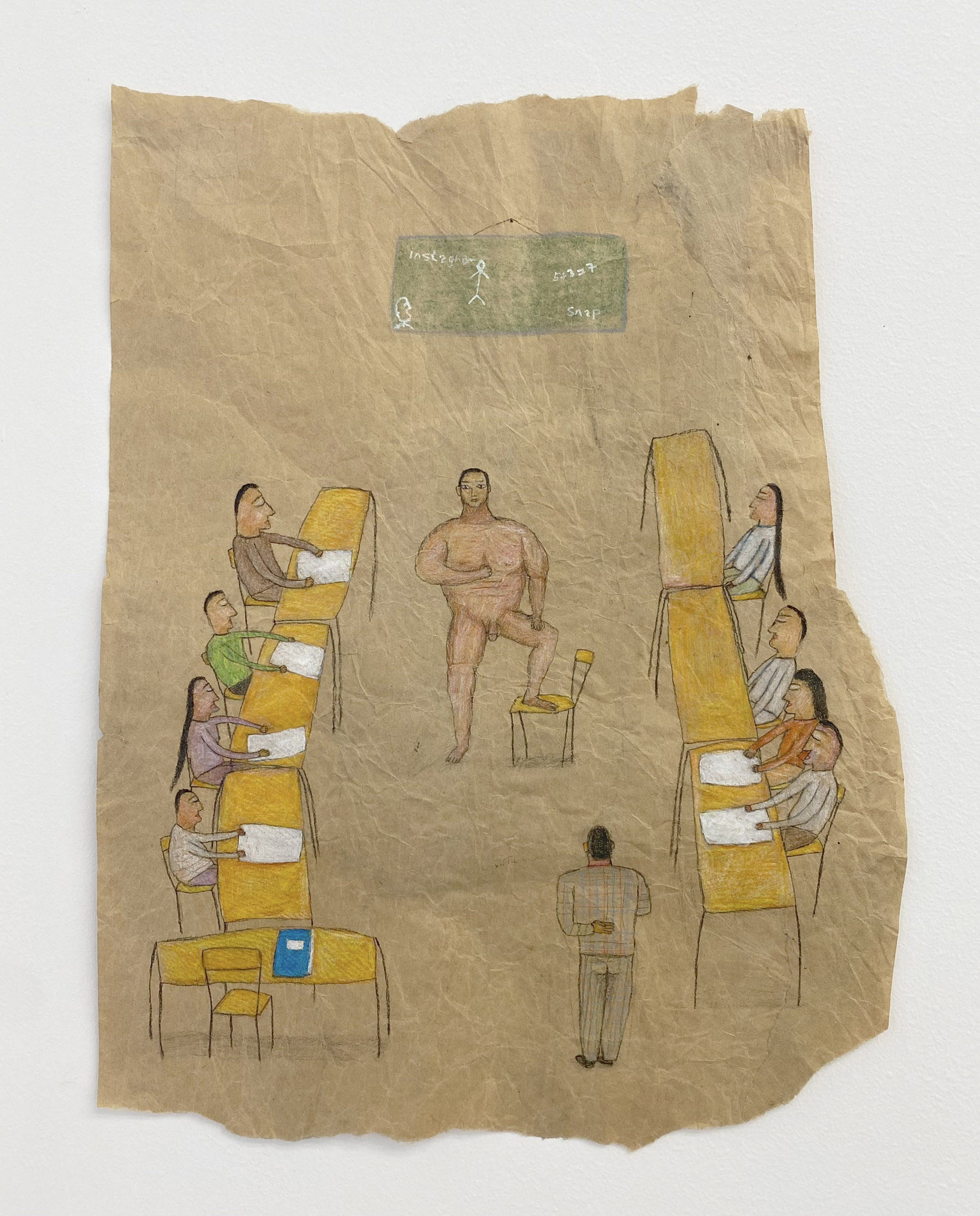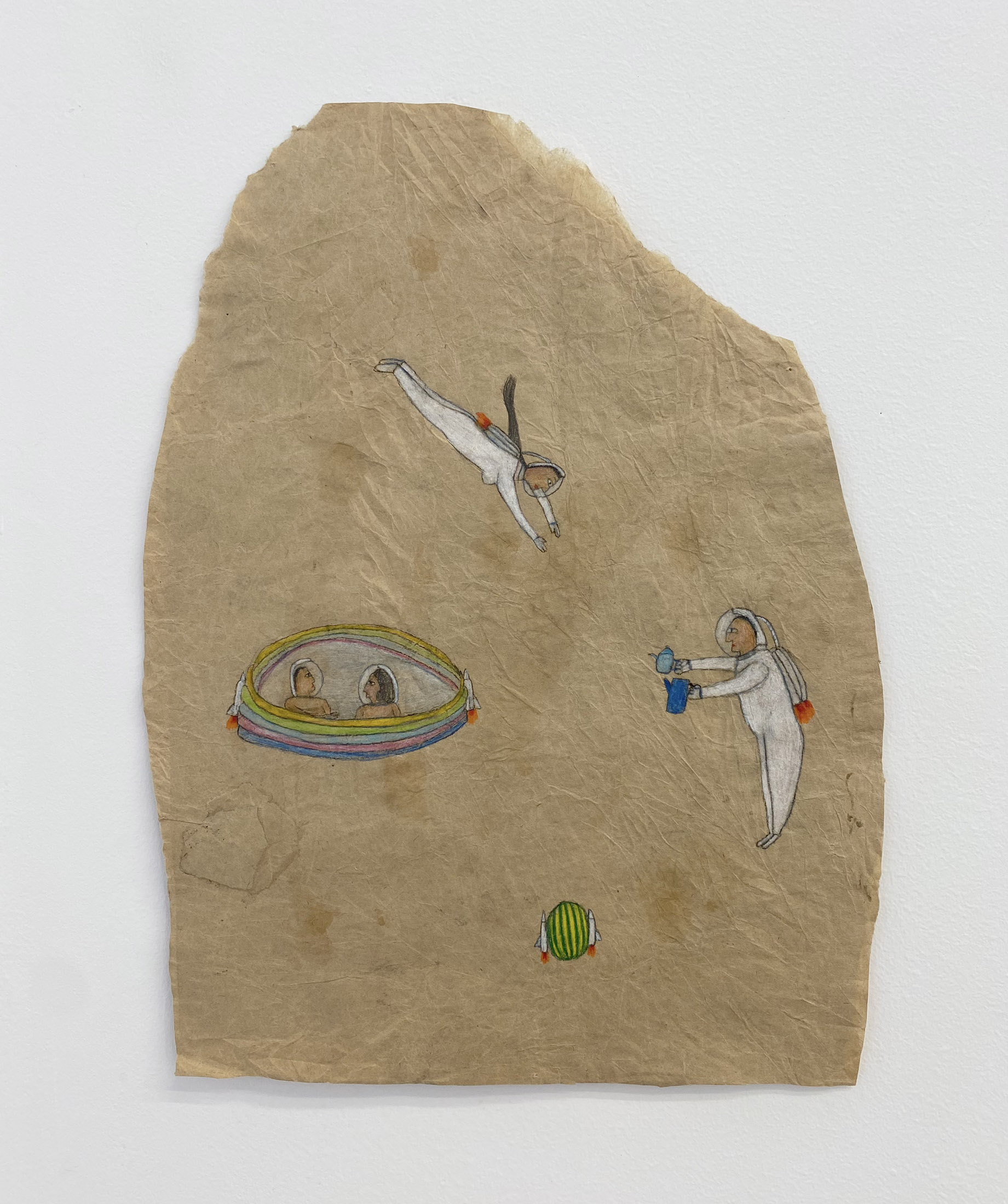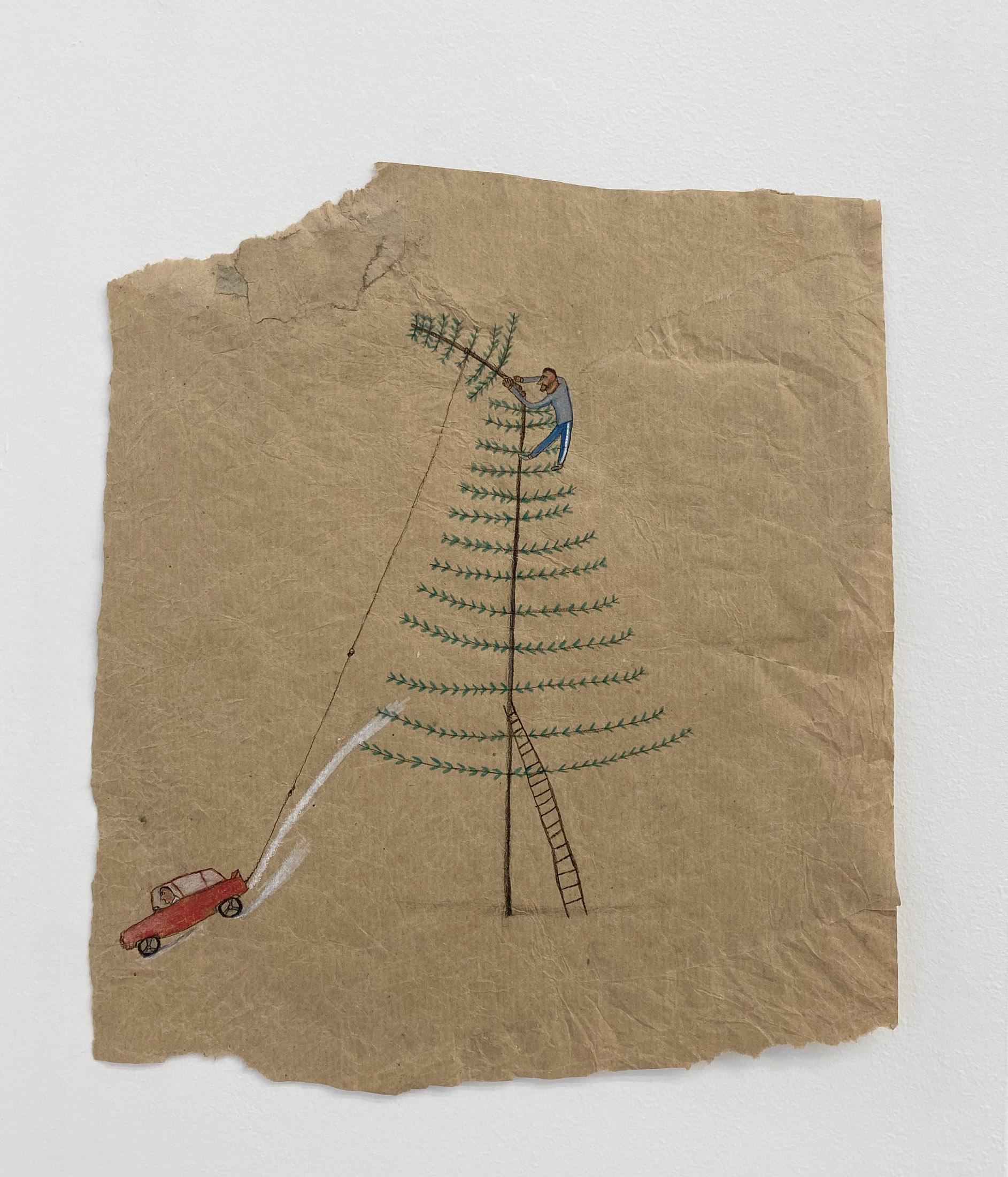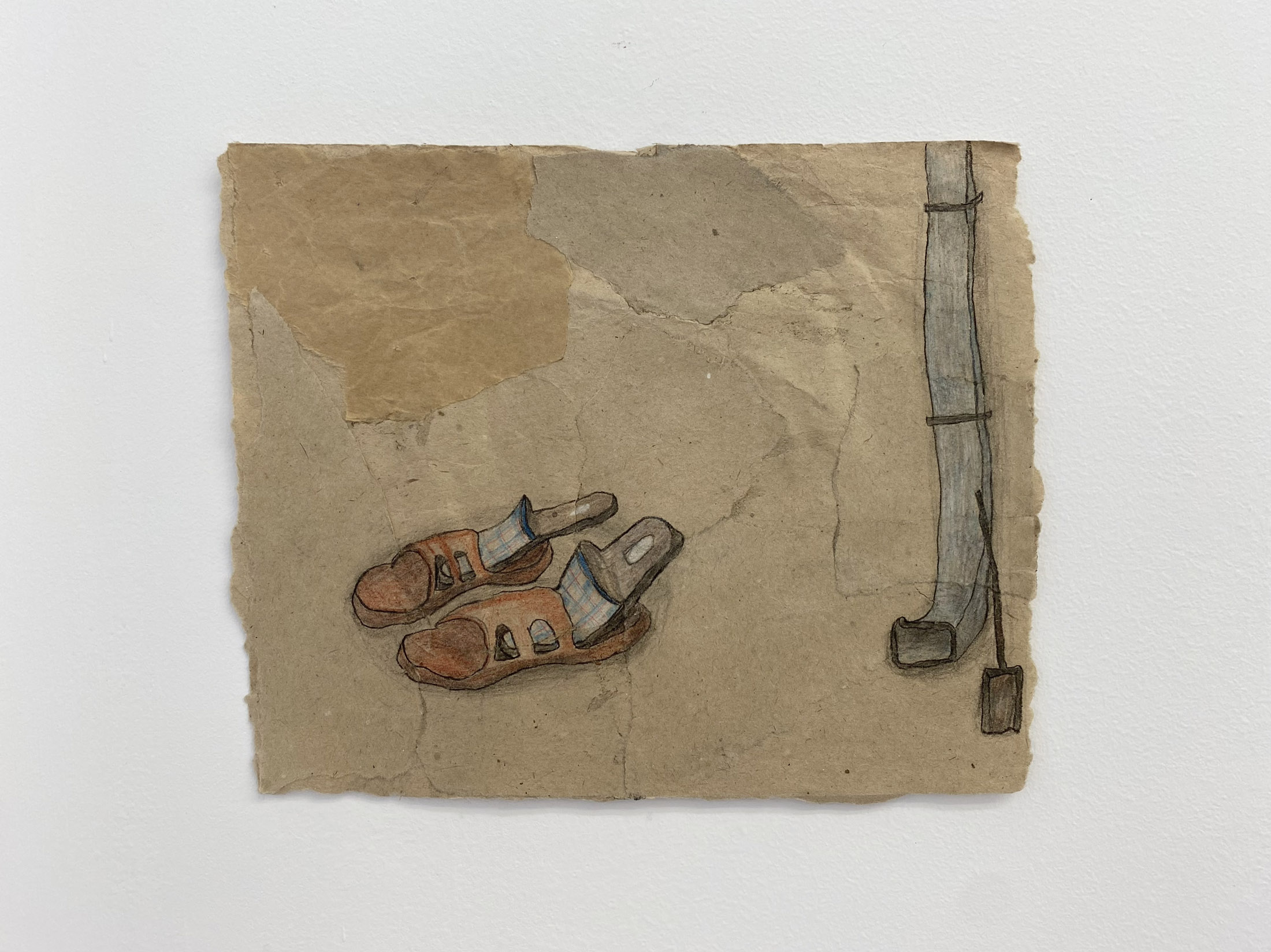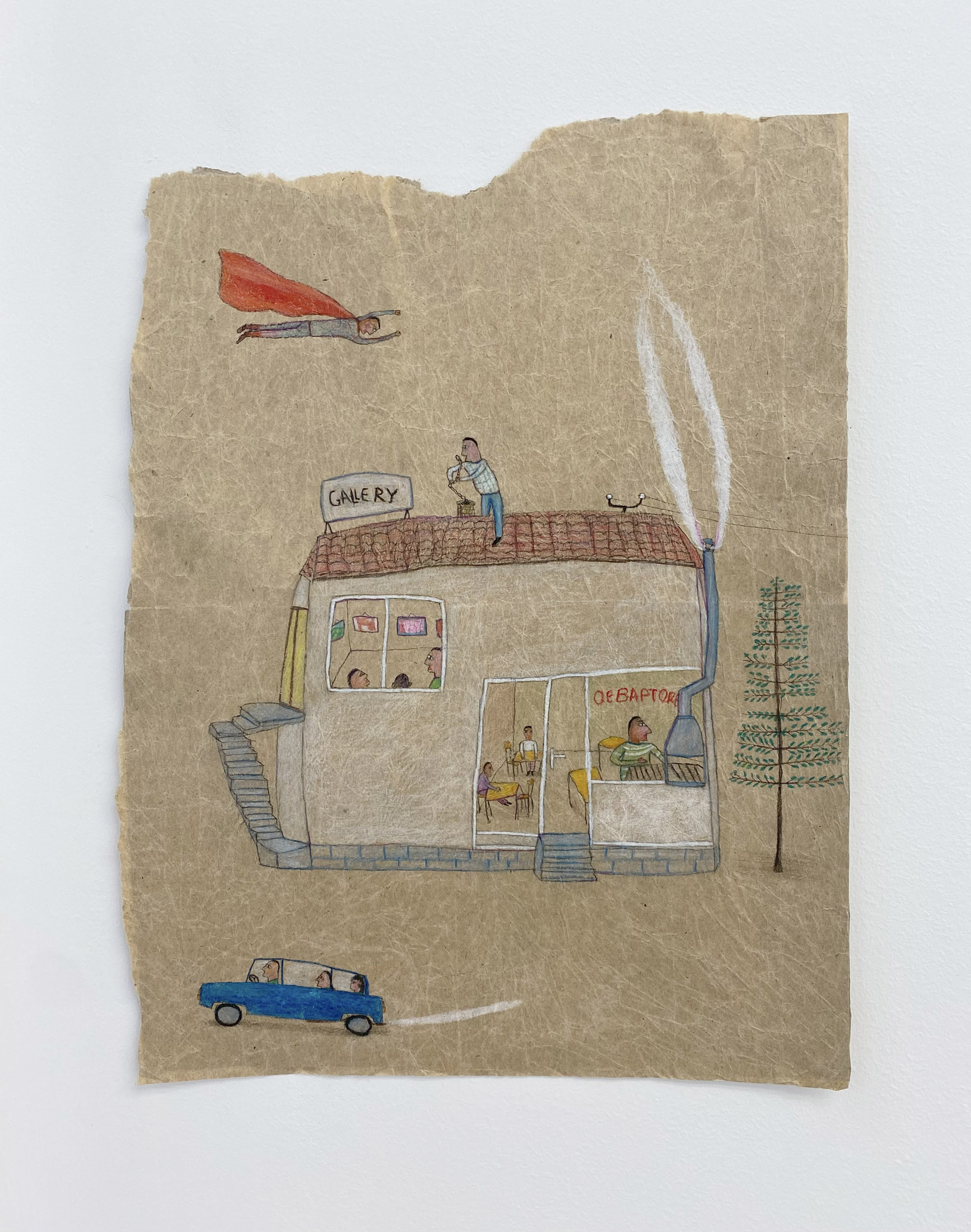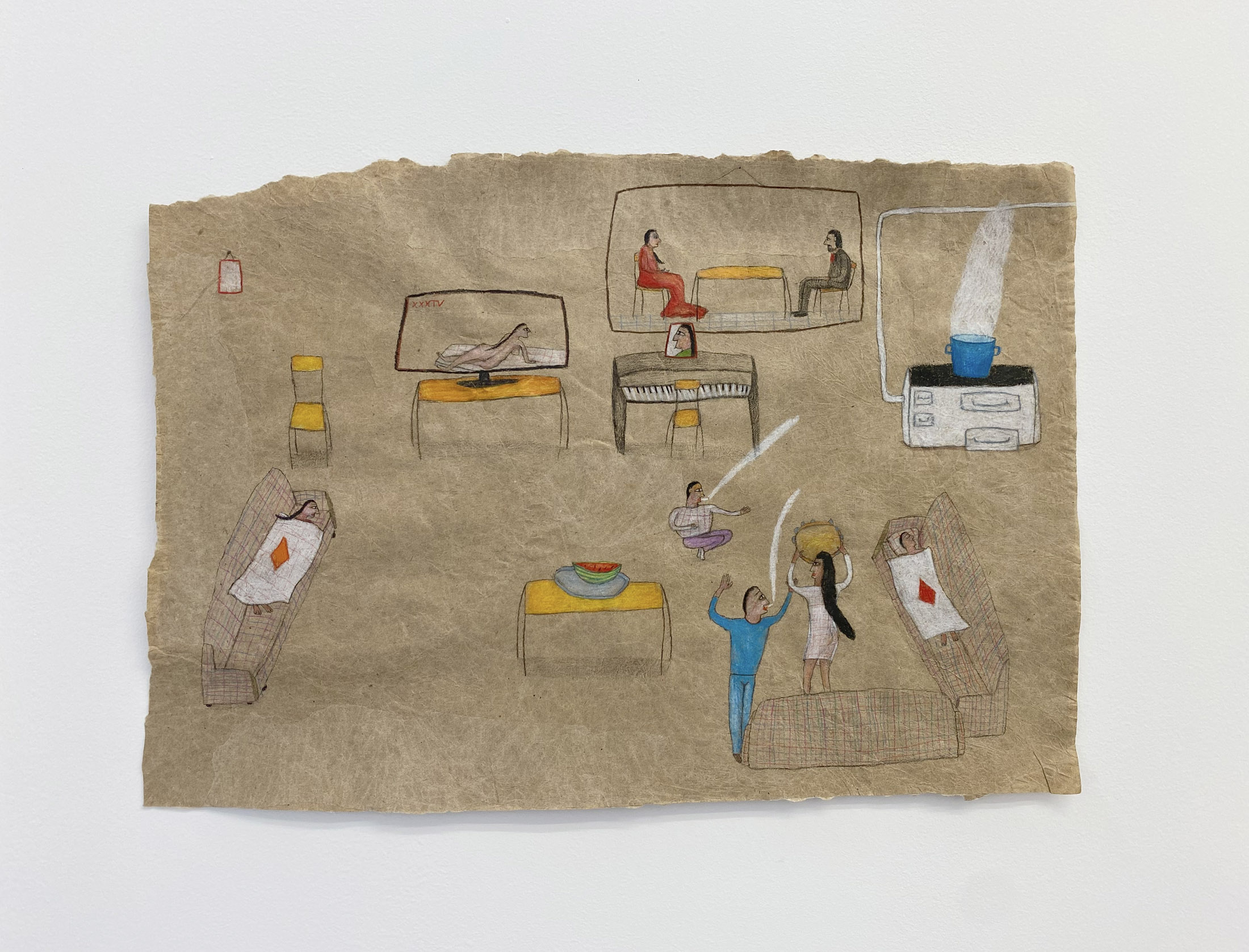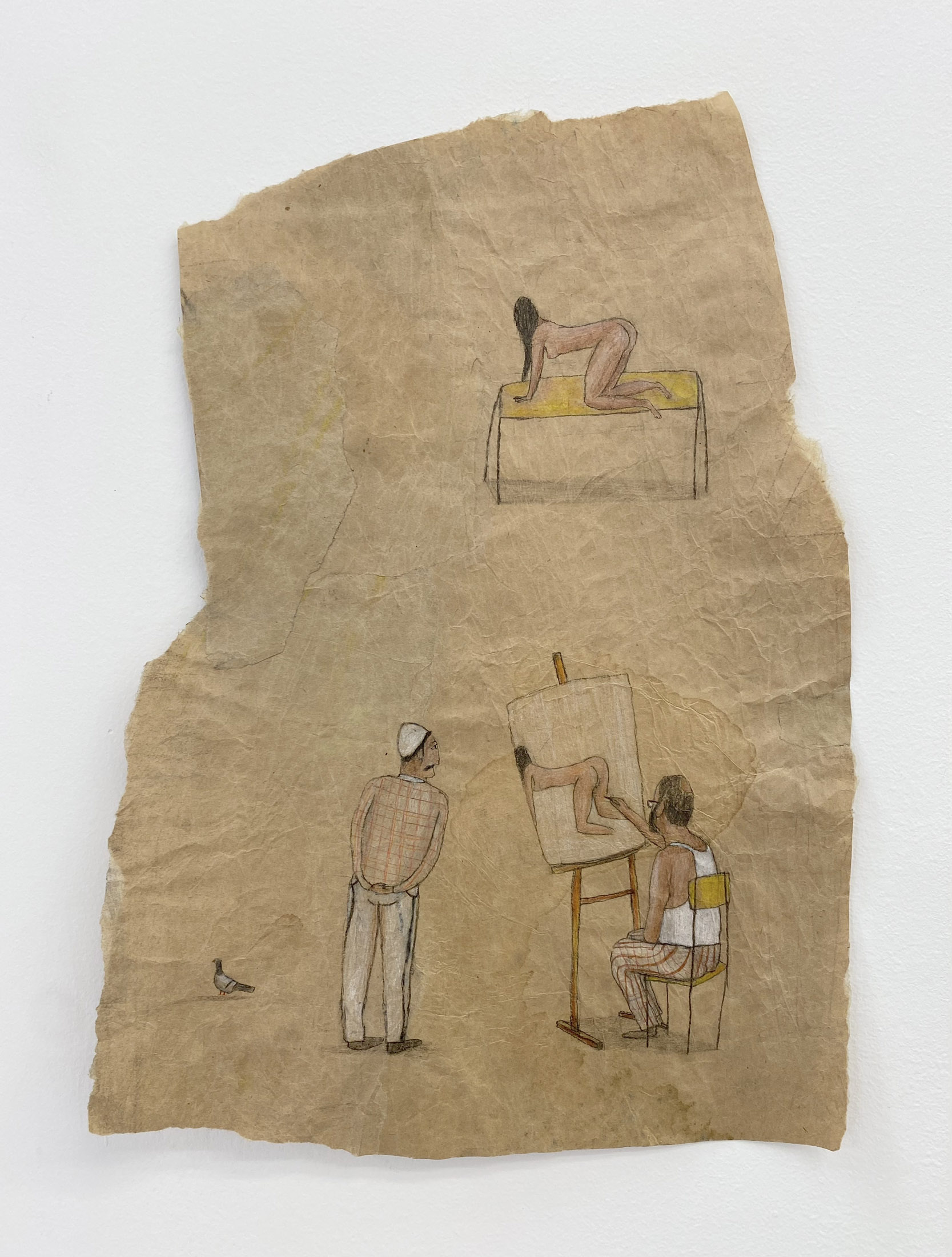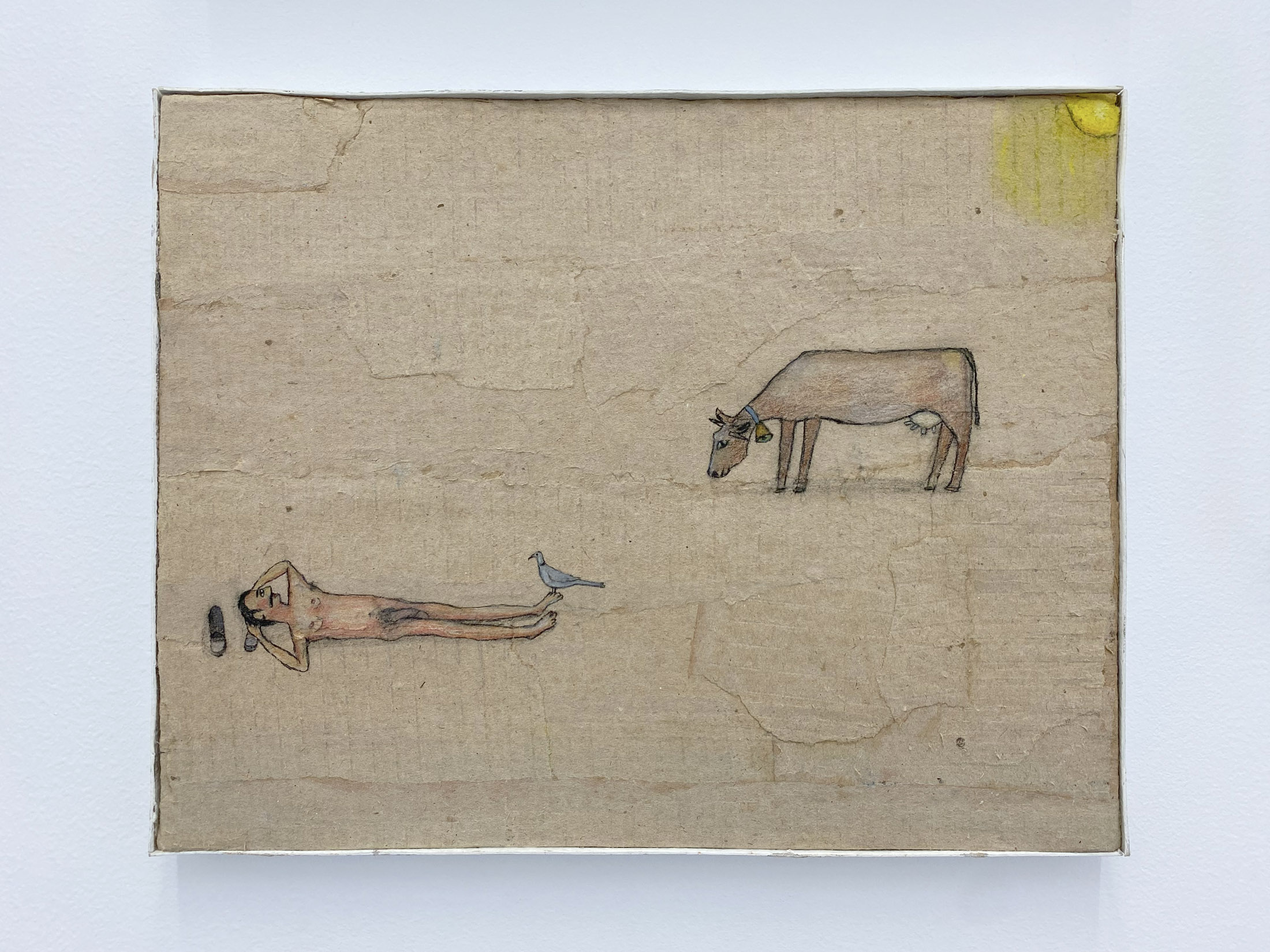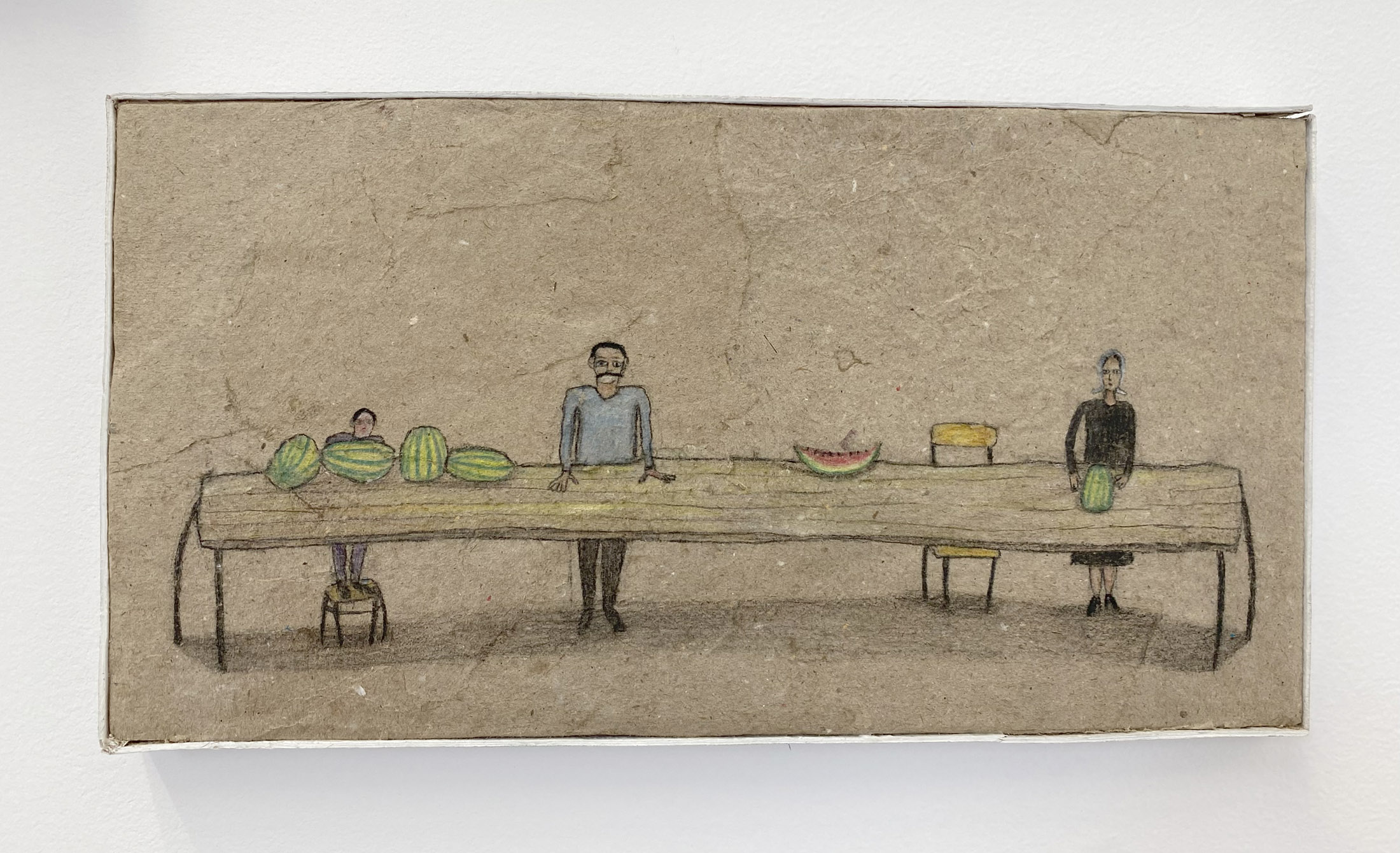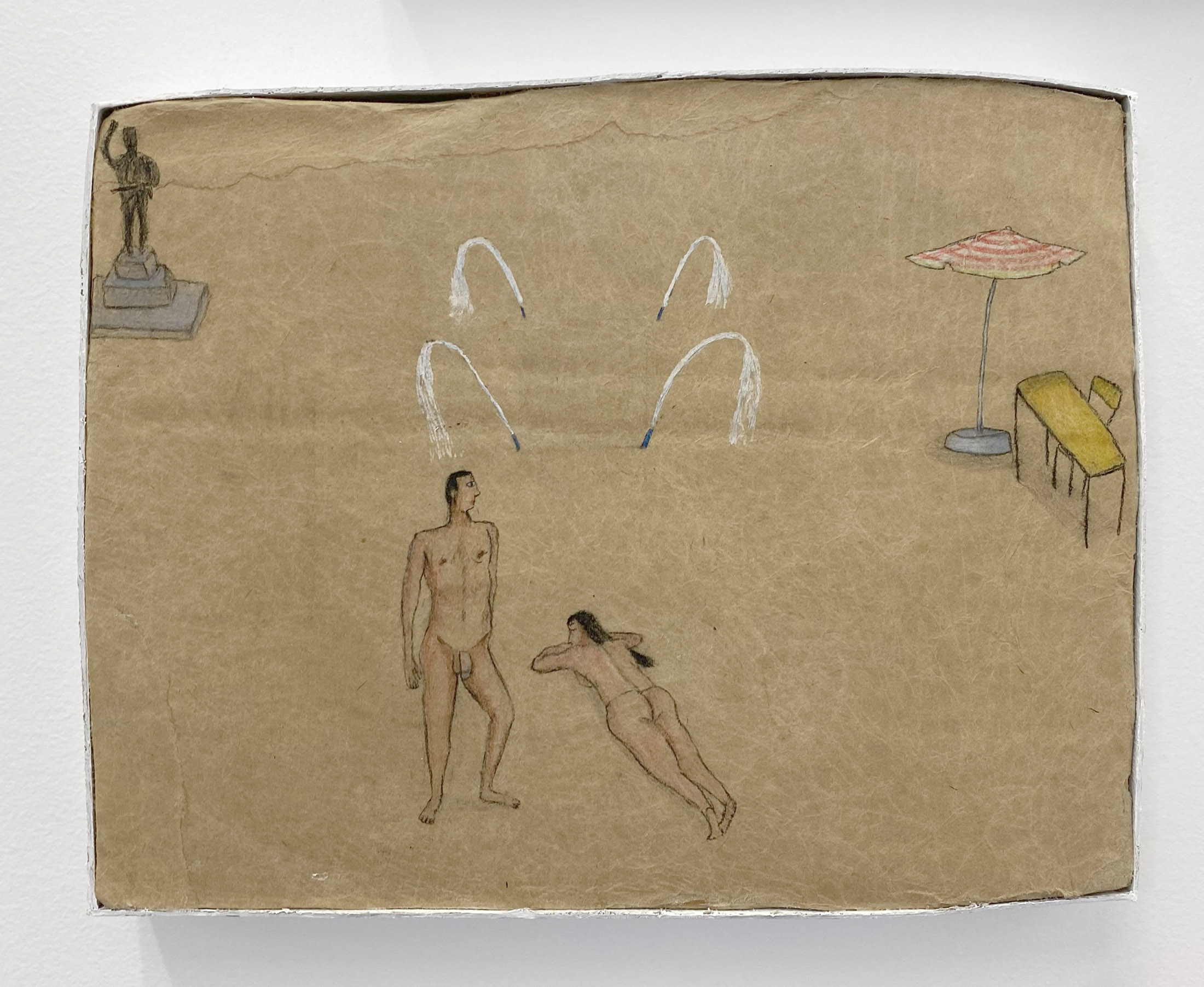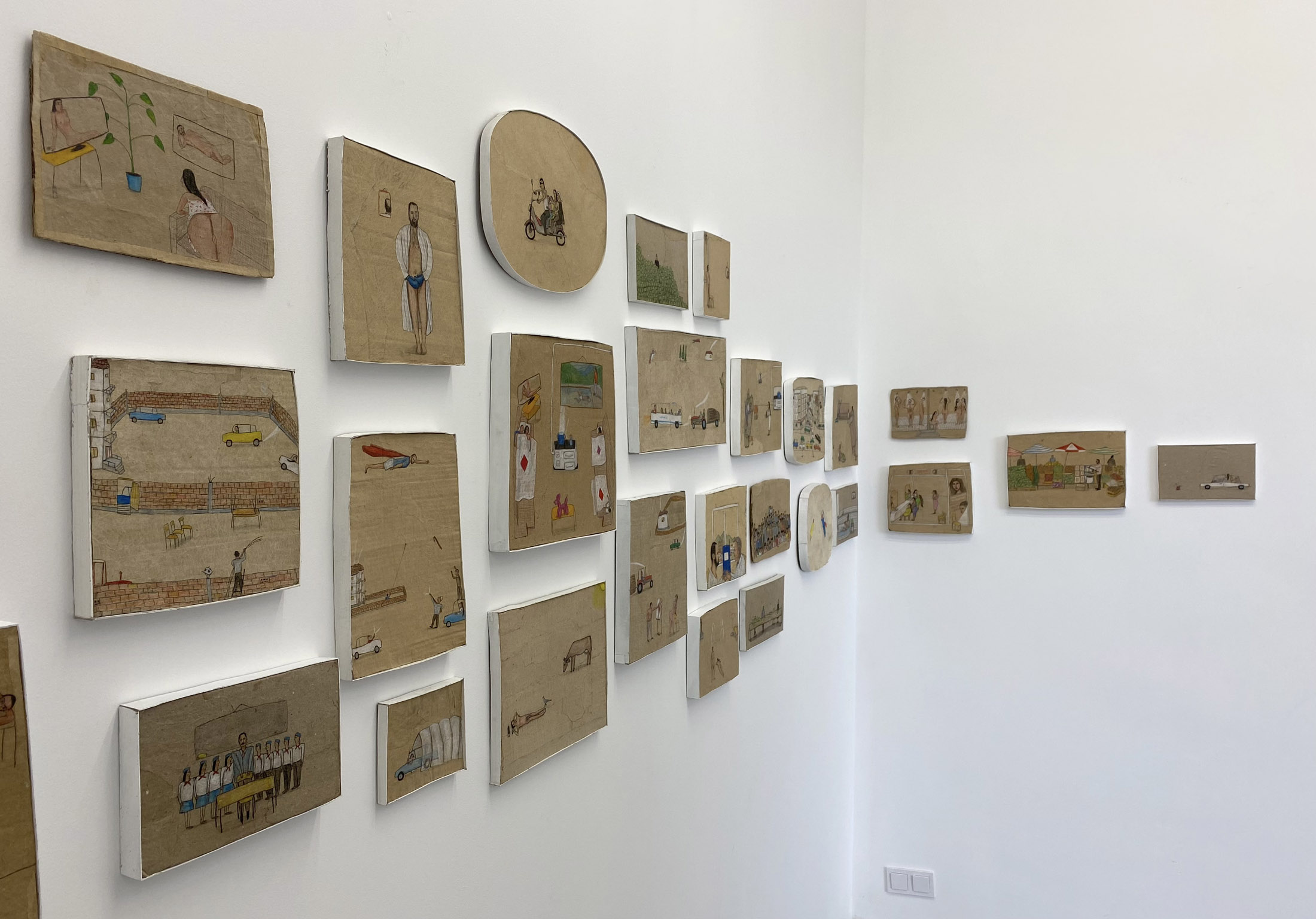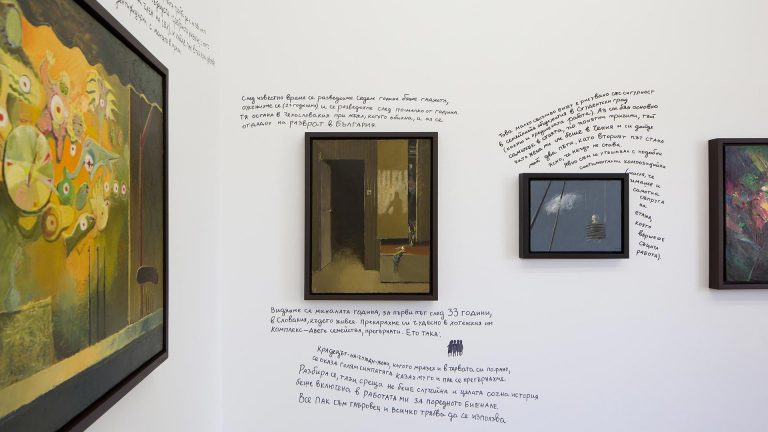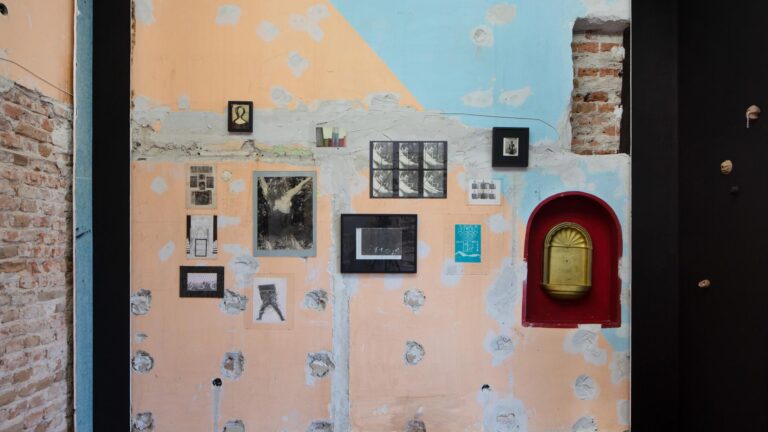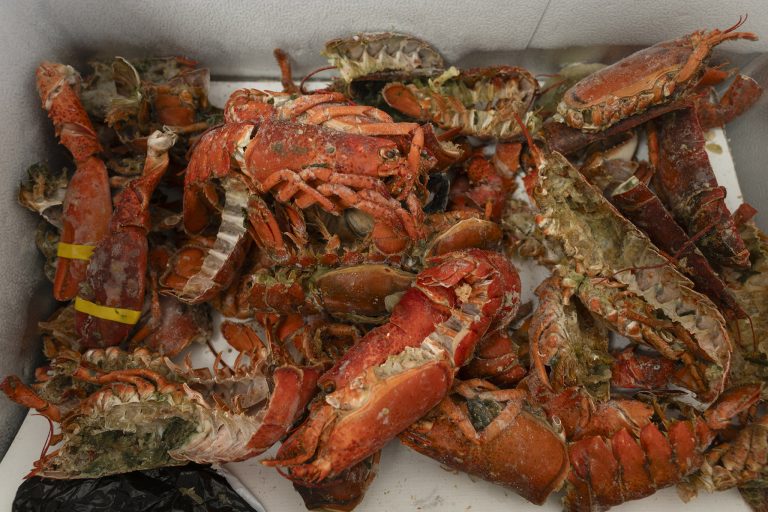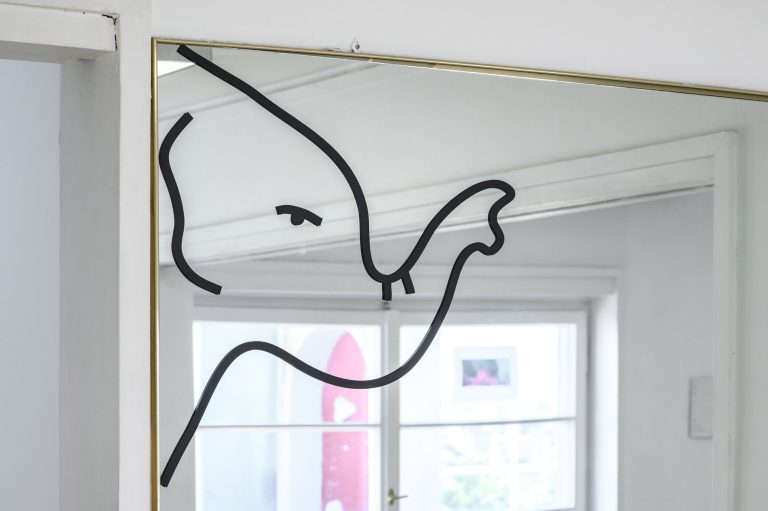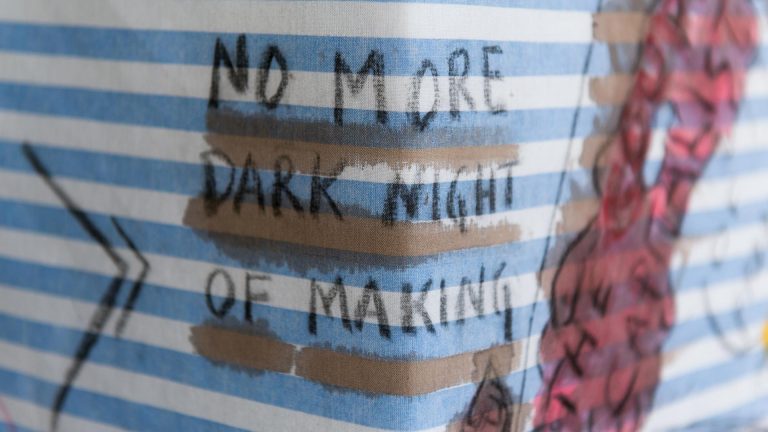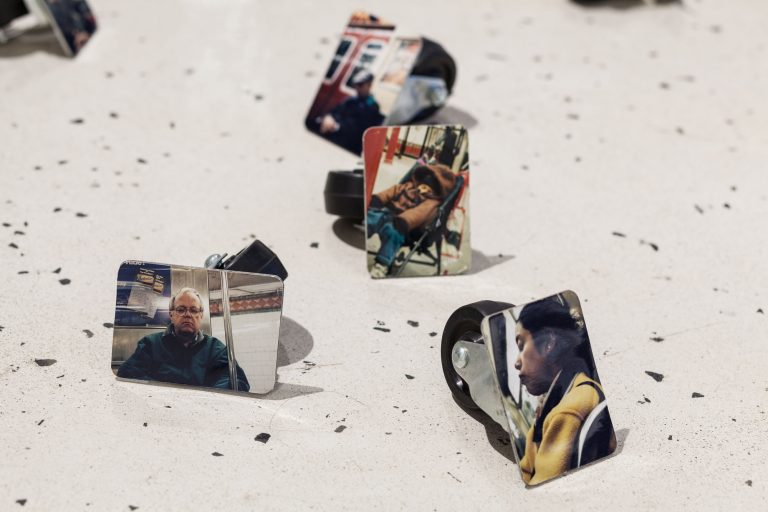Artist: Artan Hajrullahu
Exhibition title: A House Without Walls
Venue: Sarieva, Plovidv, Bulgaria
Date: September 1 – November 30, 2023
Photography: all images copyright and courtesy of the artist and Sarieva, Plovidv
Sarieva / Gallery is pleased to present the first solo show in Bulgaria of Kosovar artist Artan Hajrullahu. The exhibition will open on September 1st in the presence of the author. Before the opening the audience will have the opportunity to join an artist talk with Hajrullahu who will discuss his work. The discussion will be held in the neighboring space for encounters with the art scene – Кабинет* (ex-artnewscafe).
Artan Hajrullahu was born in 1979 in the city of Gjilan, Kosovo, where he lives with his family to this day. He works across the media of painting and drawing. His artworks are deeply humanistic, representing idyllic scenes of local life in Kosovo augmented by the thoughts and fantasies of the author. They are at once documentary, nostalgic, naive, ironic, provocative, simple, kitsch, traditional and contemporary. They depict the typical Balkan objectivity and aesthetics of the past – modest furniture, wood-burning stoves, handmade blankets, lace tablecloths and watermelons, combined with symbols of modernity – television sets, rockets, automobiles and machines. Co-existing with the objects are images of family and community members – spouses, parents, children, brothers, sisters, aunts, mothers-in-law, colleagues, classmates, etc. We see them in typical everyday situations – sleeping, eating, watching TV, shaving, lovemaking, studying, building, bathing. Although borrowing the topics from a specific geographical area, his paintings are universally accurate about the life of the Balkan diaspora all over the world, whose identity knows no borders. The self-deprecating portrait of the artist quite often appears among the personages of his works – he likewise paints, bathes or shaves – and along with it, the fantastic figures of astronauts, angels and flying entities sneak into this everyday environment.
In his drawings, Artan Hajrullahu quite often crosses the boundaries of certain traditional taboos, in order to contest conservative conceptions of beauty, nudity, lovemaking, the conventions of marriage, the division between the sexes, masculinity, human uncertainty and the right to choose in general. Provocations for which Hajrullahu has faced the backlash of the traditionally-minded.
Hajrullahu recreates a picture of the Balkans with its own intimate world, local life, dreams and relations, they way they are outside the city center and cities in general, the differing policies, the news, the meaning constructs and discourses that the mass media, social media and sometimes contemporary art carry and suggest. This sense of his own intimate world, which is unified and shared, also lends a specific lack of perspective to his drawings – they lack the outlines of walls of living spaces or any type of border whatsoever. Objects, people, events are maintained by relationships, by love, by unconditional acceptance and openness to change and to what is different. In order to support the idea of lack of limitations, conventions and spatiality, the author chooses to paint his paintings on cheap wrapping paper with its own relief and brownish color. It is traditionally used for the transportation of food products and materials to protect and preserve them from soiling. The artist locates it not in art supply stores, but everywhere around him. He draws with ordinary pencils and frames his works with self-made cardboard frames. All these artistic choices prompt us to perceive his work through the sense of poverty, the sense of transience and movement, documentariness, crisis, fragility, truthfulness and authenticity. Undoubtedly, he also takes us back to the period of the war between Kosovo and Serbia, when the author was forced to abandon his home along with all his fellow citizens, yet he did not stop painting. Although not directly political, Artan’s drawings are undeniably reminiscent of this difficult moment for the Balkan region that we are still confronted with.
With the exhibition A House Without Walls Sarieva Gallery presents a wide selection from among the author’s characteristic drawings on wrapping paper created in recent years. A portion of these artworks were shown in 2022 at the European Nomadic Biennial – Manifesta 14, curated by Catherine Nichols, as well as at Hajrullahu’s solo show curated by the famous Kosovar artist Sislej Xhafa and presented in ARKIV, The Institute of Contemporary Art in Pejë, Kosovo.
Artan Hajrullahu (b. 1979 Gjilan, Kosovo), studied painting at the Academy of Arts, University of Prishtina. Hajrullahu teaches painting at the Visual Arts High School in Gjilan.
His solo exhibitions include The Pensioner, National Museum of History, Tirana (2006); Free Journey, National Gallery of Kosovo, Prishtina (2010); Bajraktari, Tetris, Prishtina (2011); Nostalgia, Tulla Culture Center, Tirana (2015); Kashta e Kumtrit, Paper Gallery, Pristina (2020). In 2022 the artist Sislej Xhafa invited and curated his show at his The Institute of Contemporary Art, ARKIV in Peje, Kosovo.
The artist has participated in the European Nomadic Biennale, Manifesta 14, curated by Catherine Nichols (2022) and has exhibited in group shows such as The Manifest of Survival, Tulla-Culture Center, Tirana, Albania (2021); Selfie/sh/ME, Obalne Galeria, Piran, Slovenia (2019); The International Exhibition Muslim Mulliqi Prize, Kosovo (2018); Autostrada Biennale, Prizren, Kosovo (2017); Center Sodobnih Umetnosti, Celje, Slovenia (2016); Tale of Childhood, Collectif Denface, Rouen, France (2015); UNERASABLE, Lumbardhi Cinema-Prizren (2015); This Is Not a Palm Tree, Neurotitan Gallery, Berlin, Germany (2015); Post-transitional Relevance: a Mix of Several Dinner Parties, National Gallery of Macedonia Mala Stanica (2014); The International Biennial of Drawing, Prishtina (2010).
He was awarded with the Artists of Tomorrow award in 2013 and it gave Hajrullahu the opportunity to participate in the International Studio and Curator Program – ISCP in New York. In 2018 he was honoured with the Muslim Mulliqi Award – NGK.
His work is part of private and state collections such as the ones of Museum of Contemporary Art of Kosovo State Fund, Ministry of Youth Culture and Sports of Kosovo, National Museum of Contemporary Art Athens, EMST.

